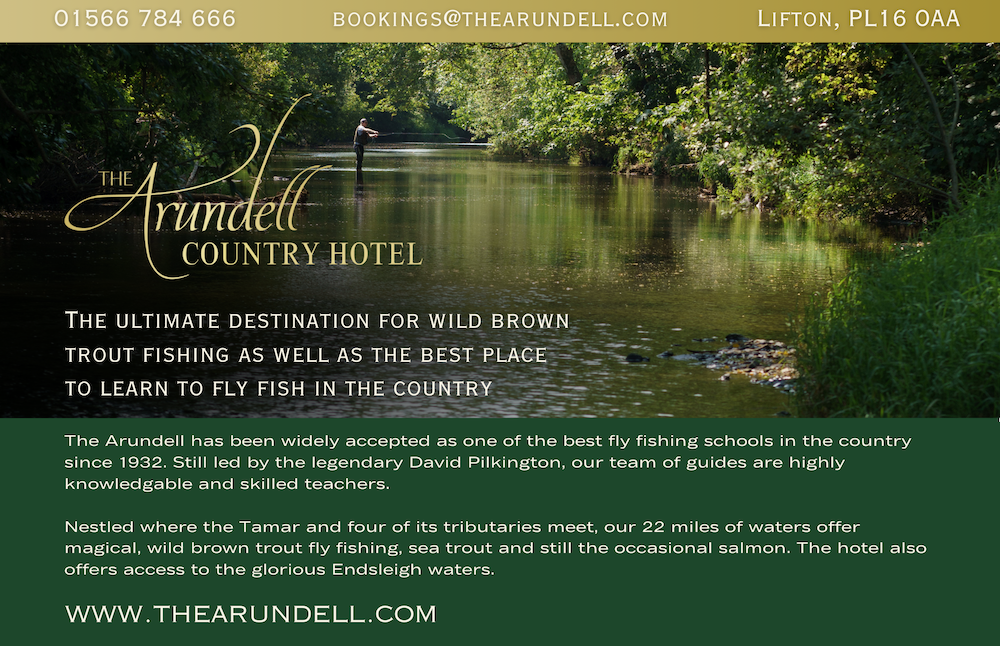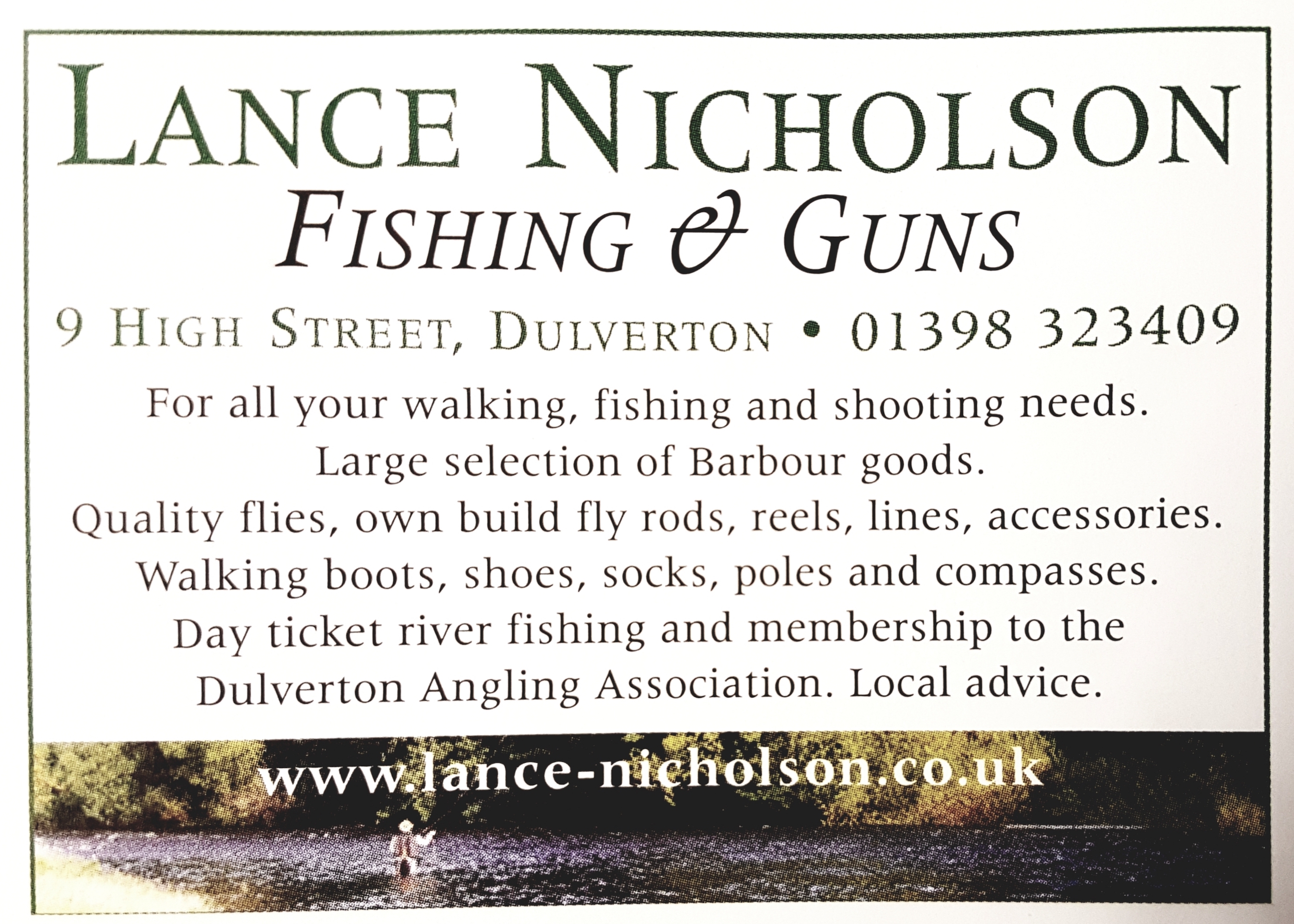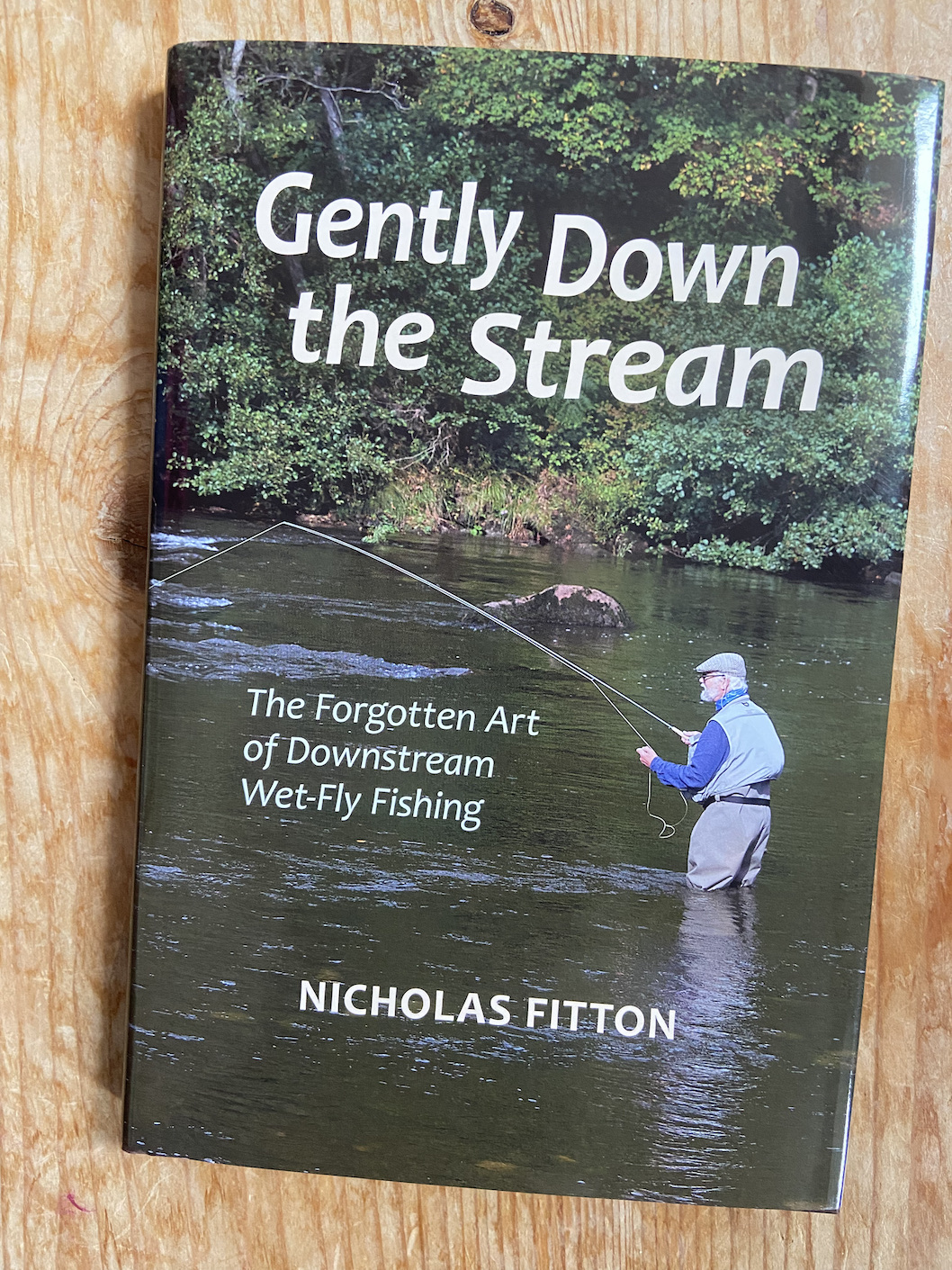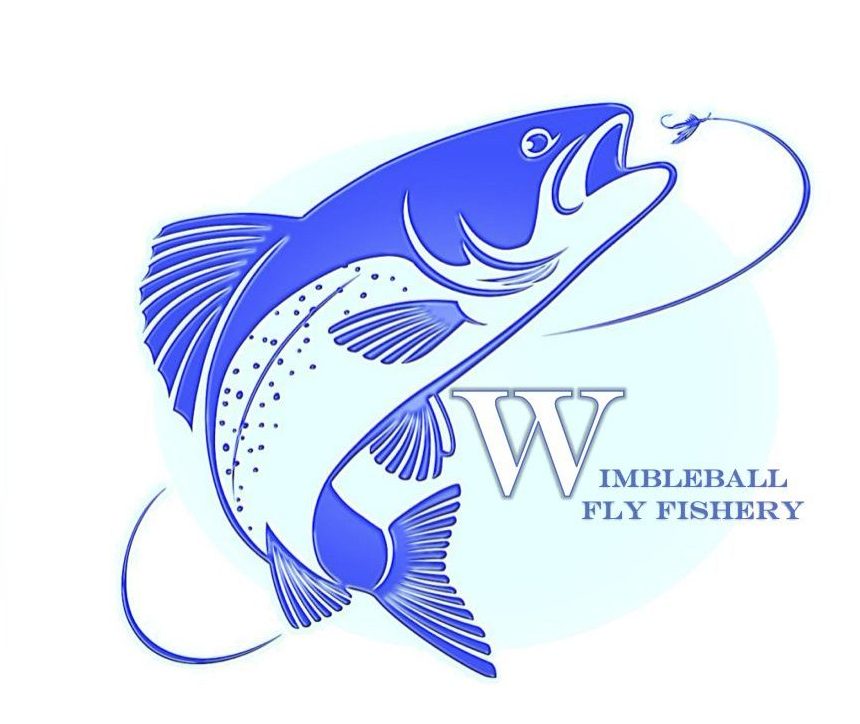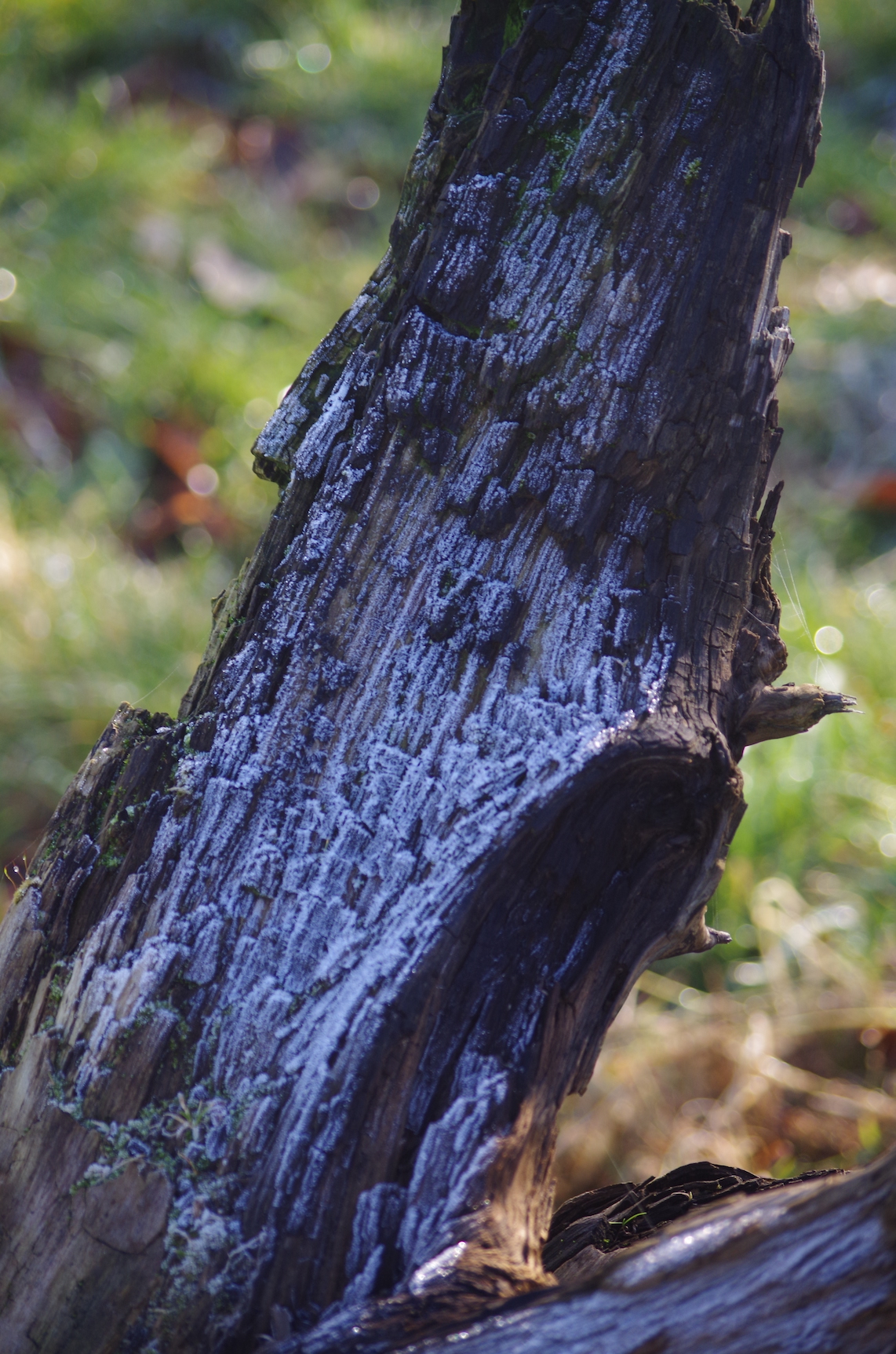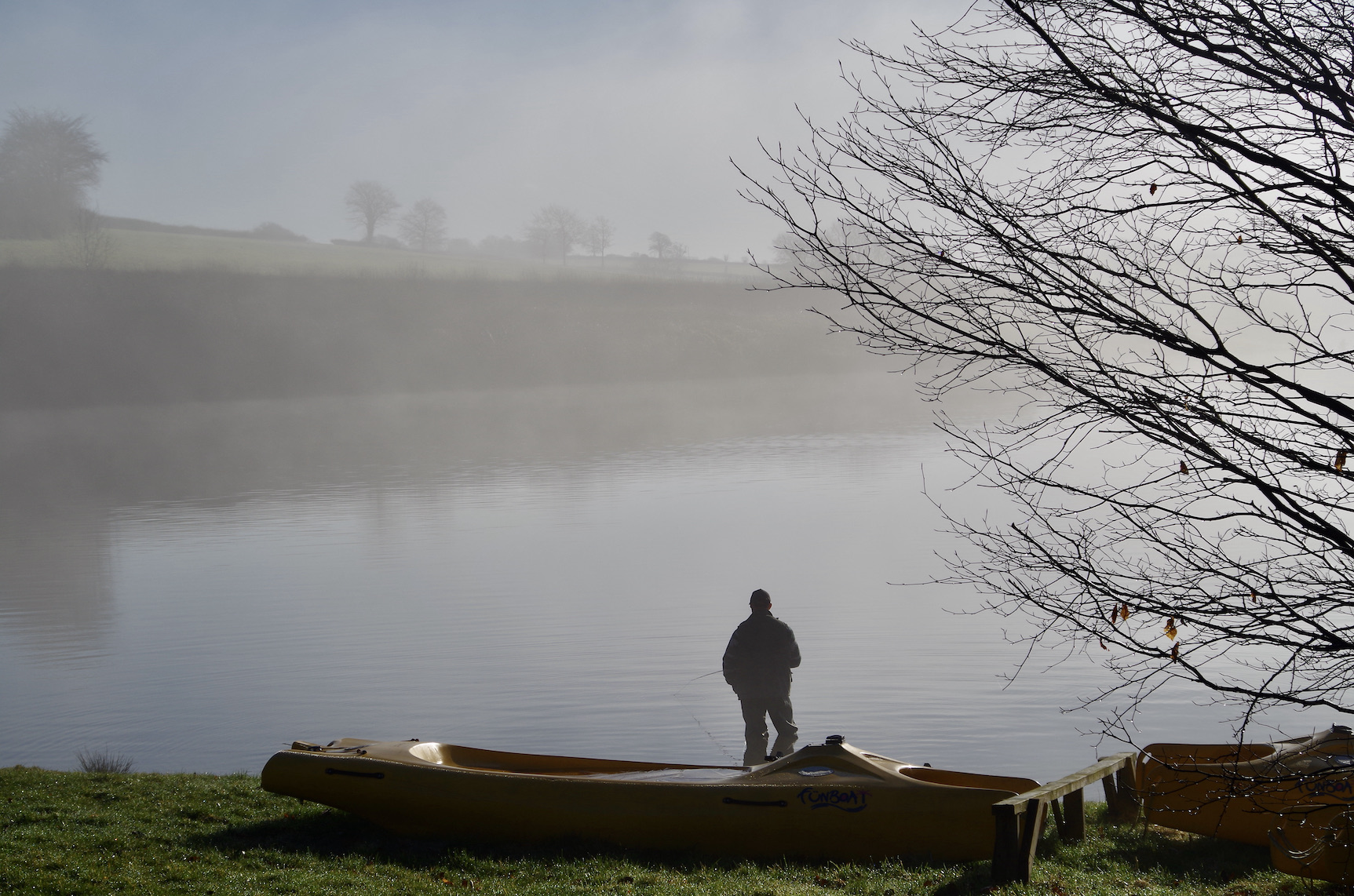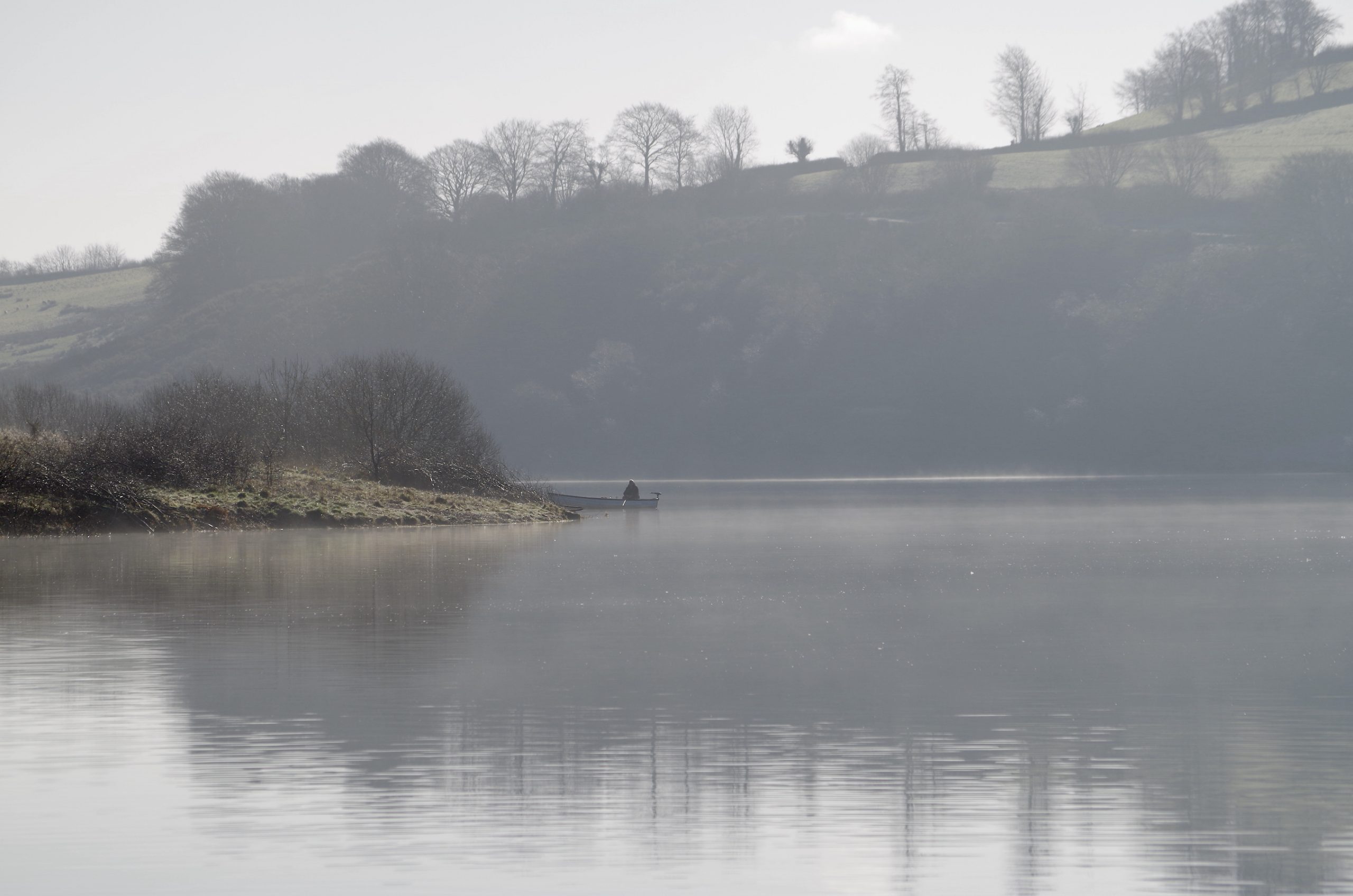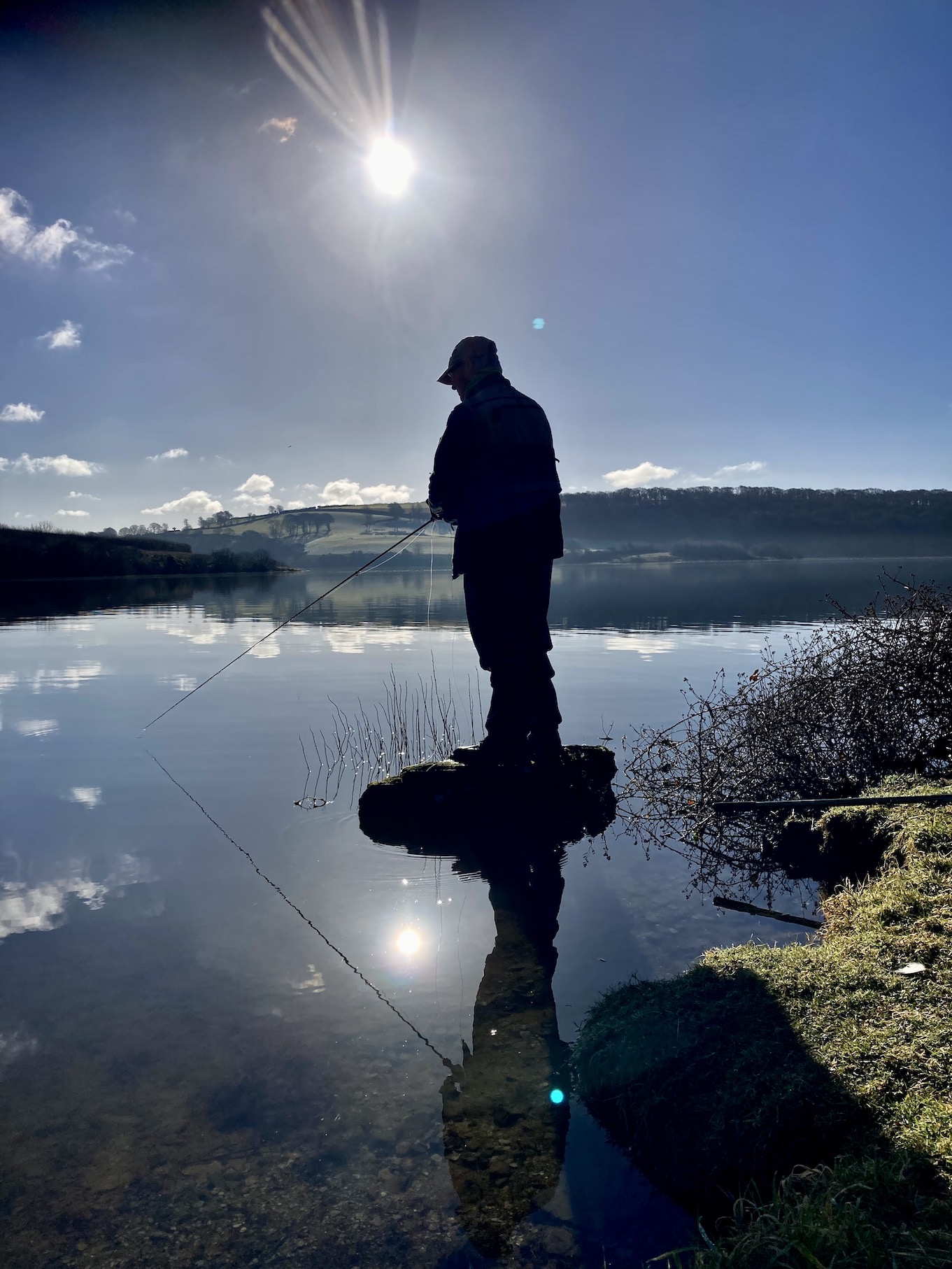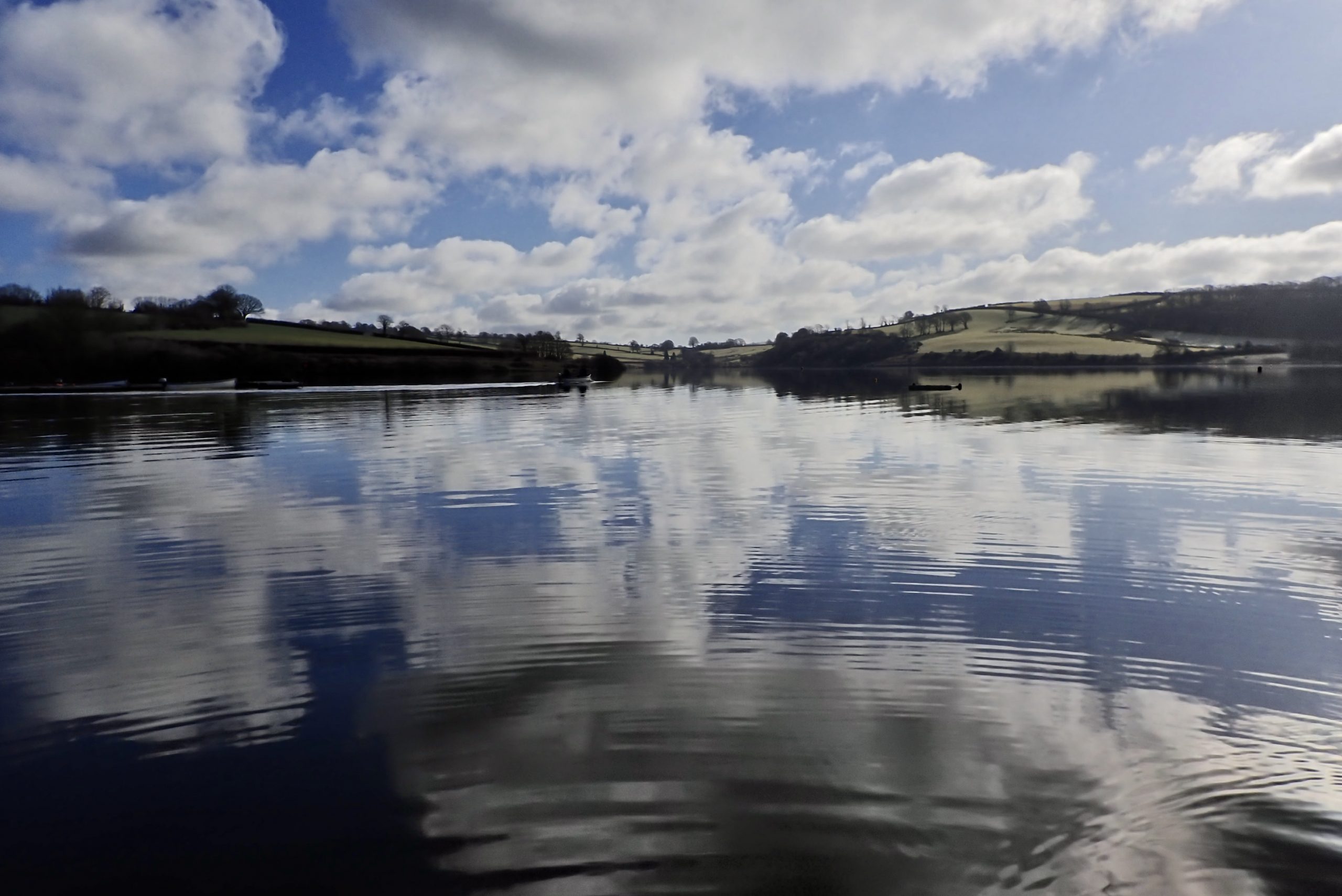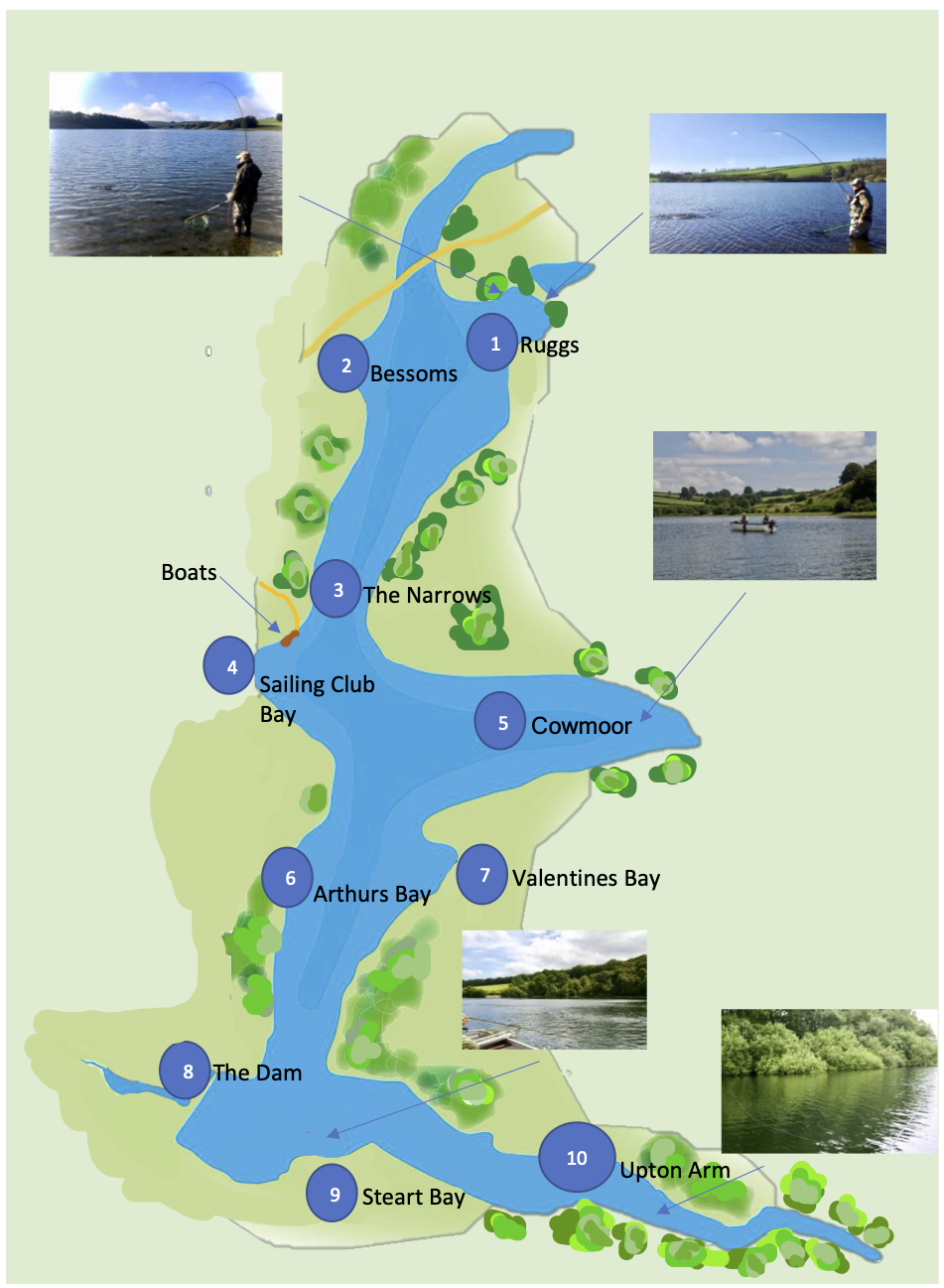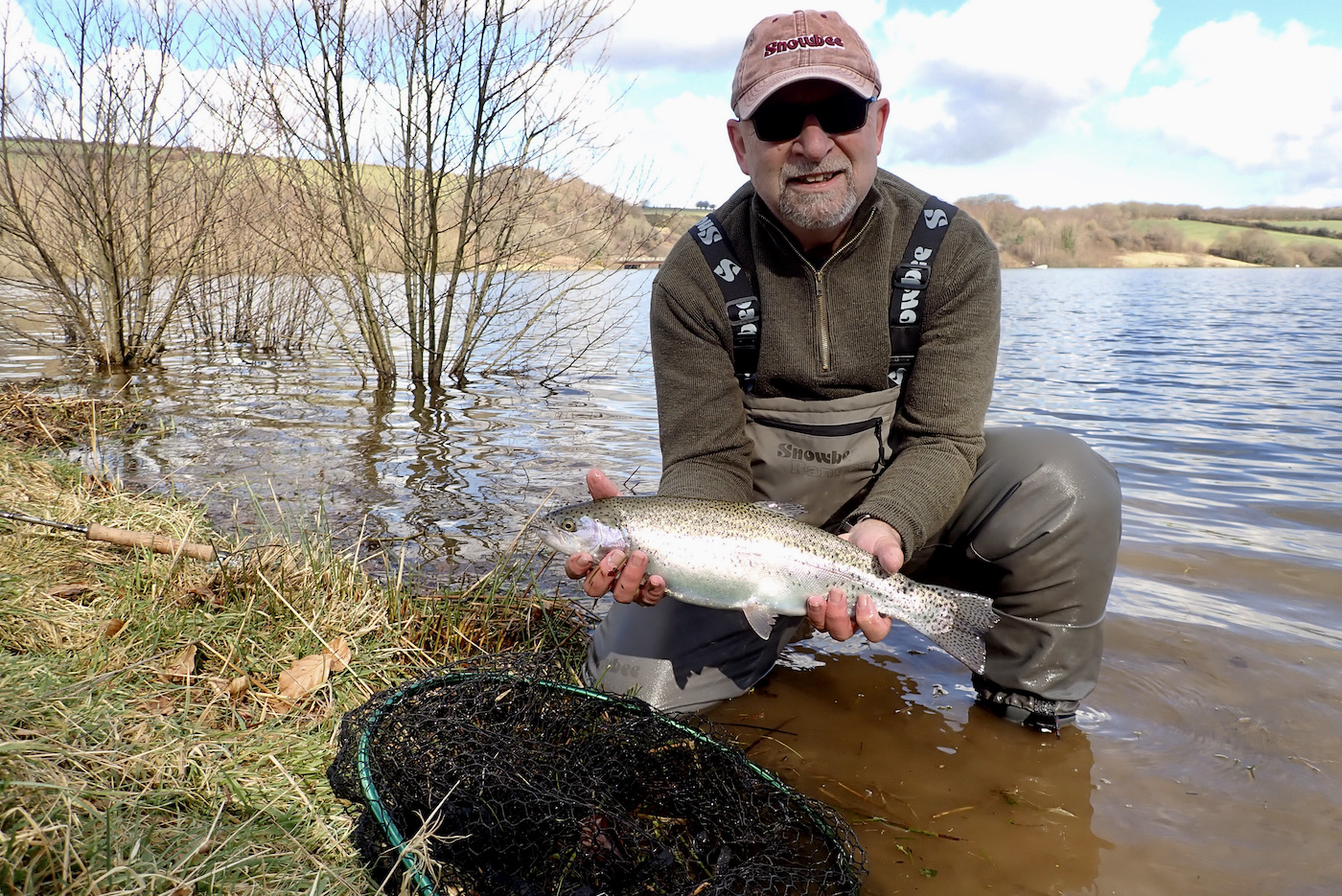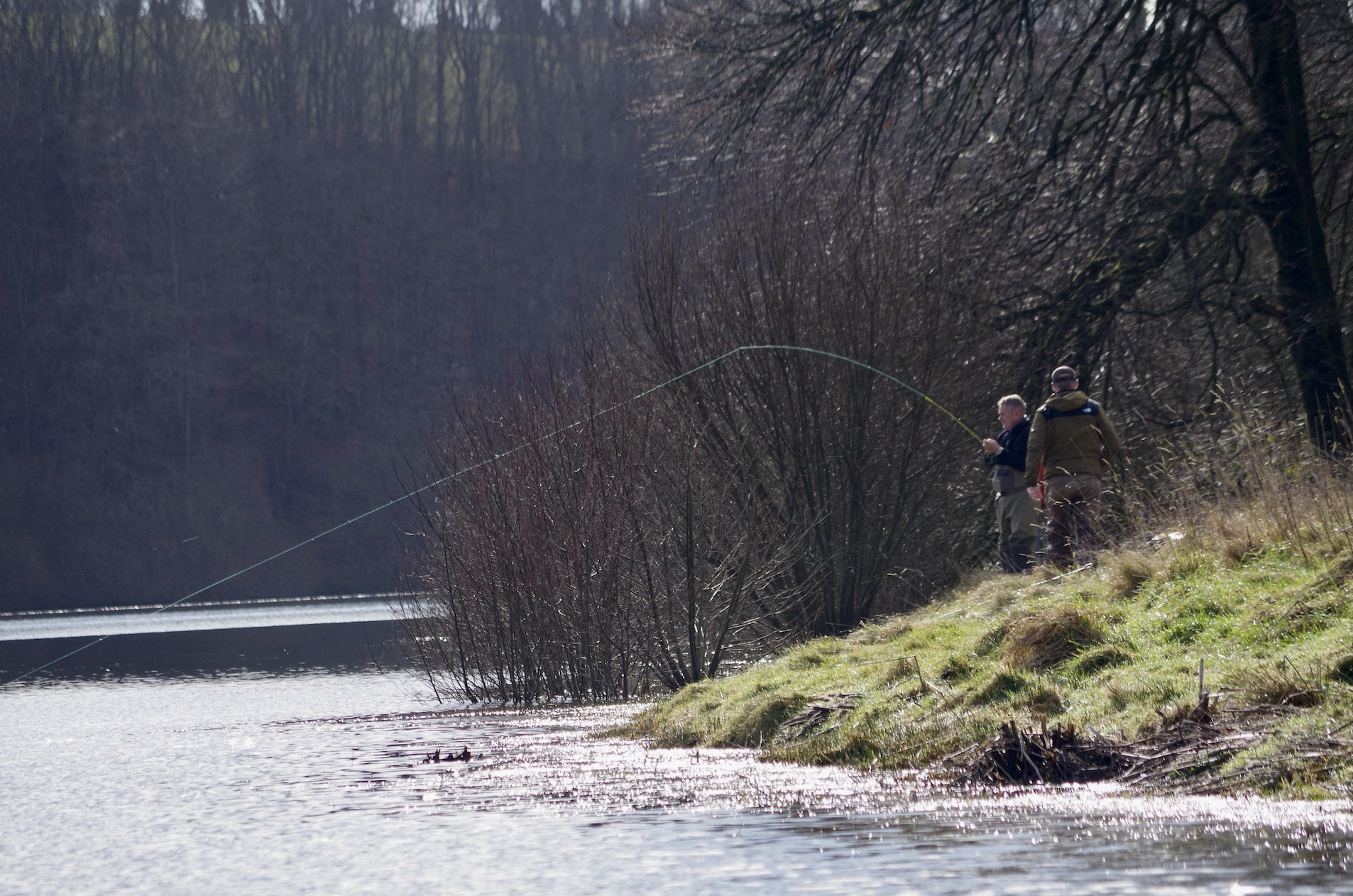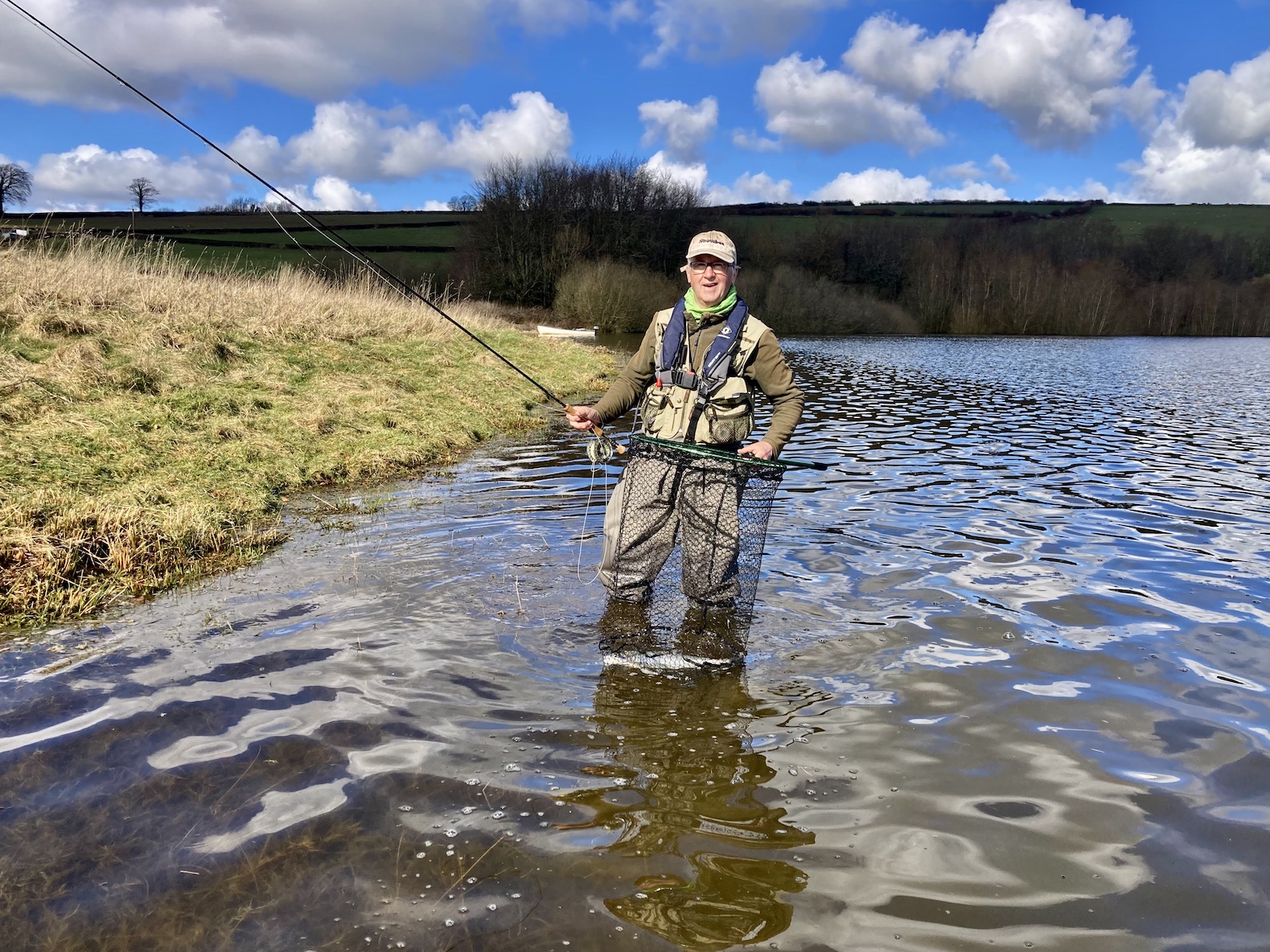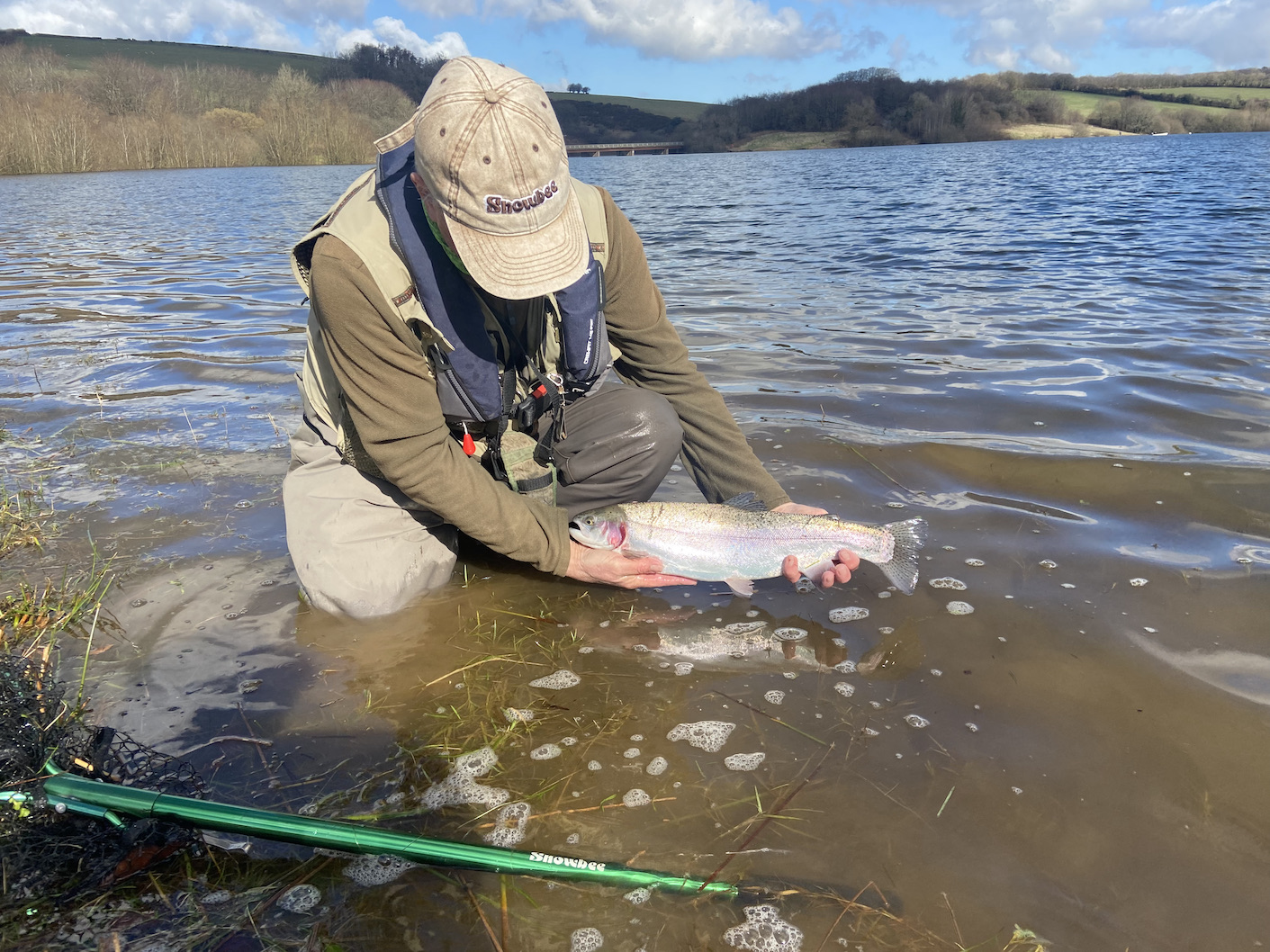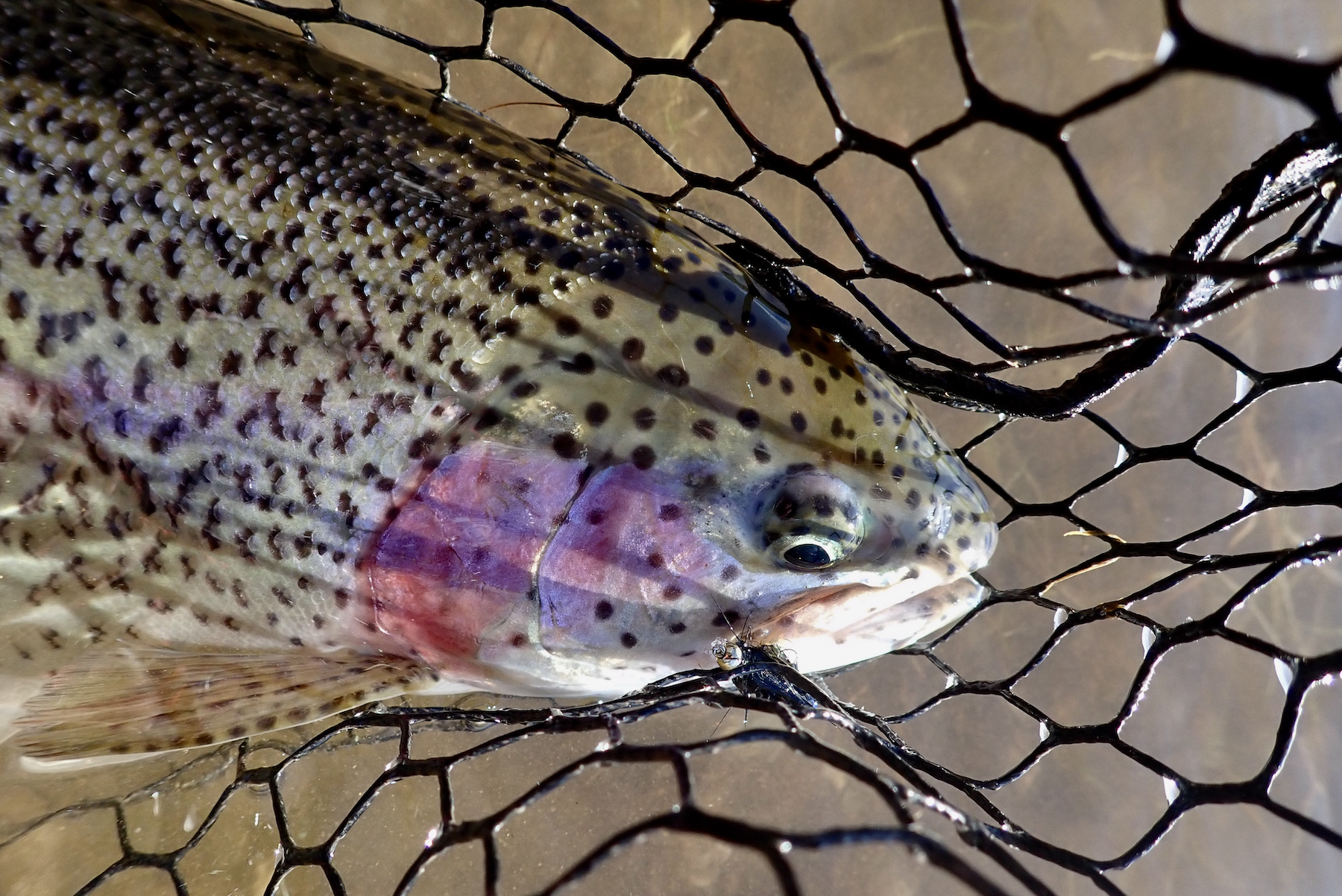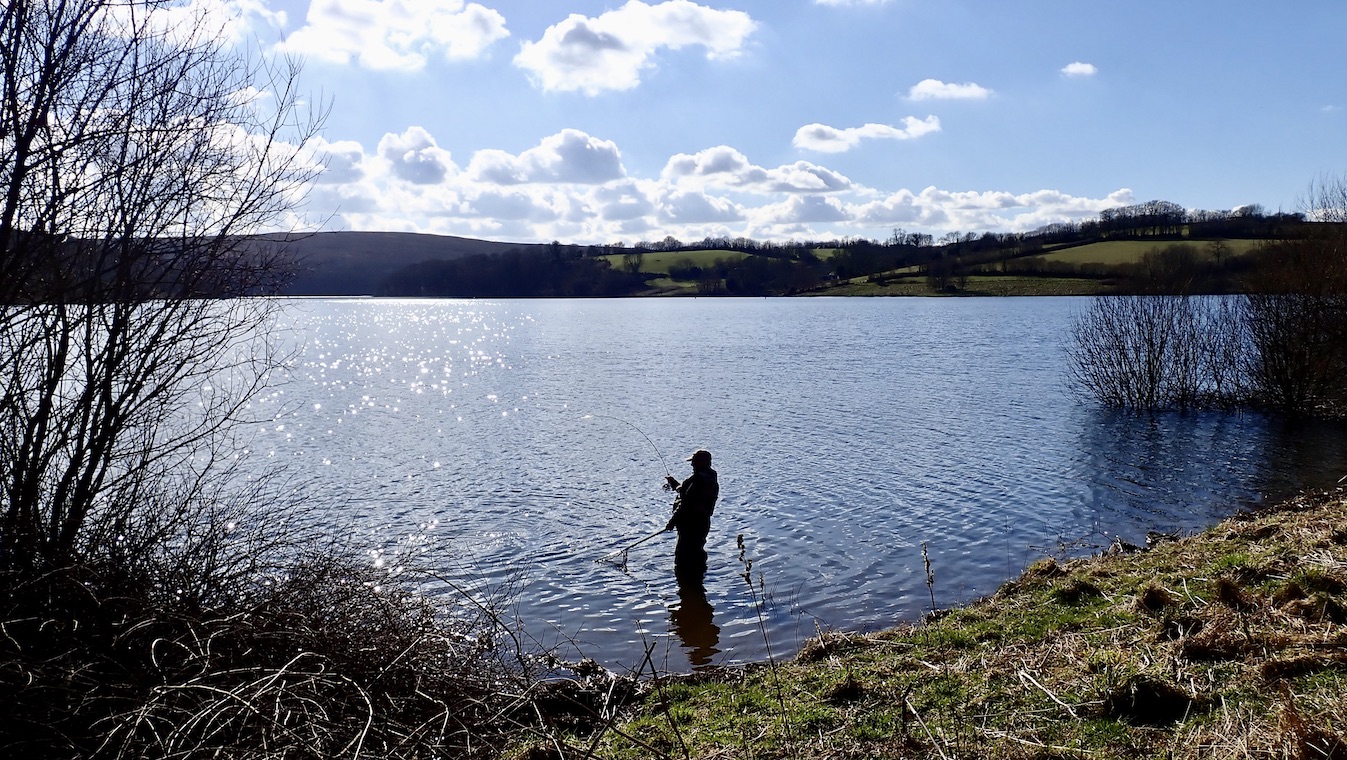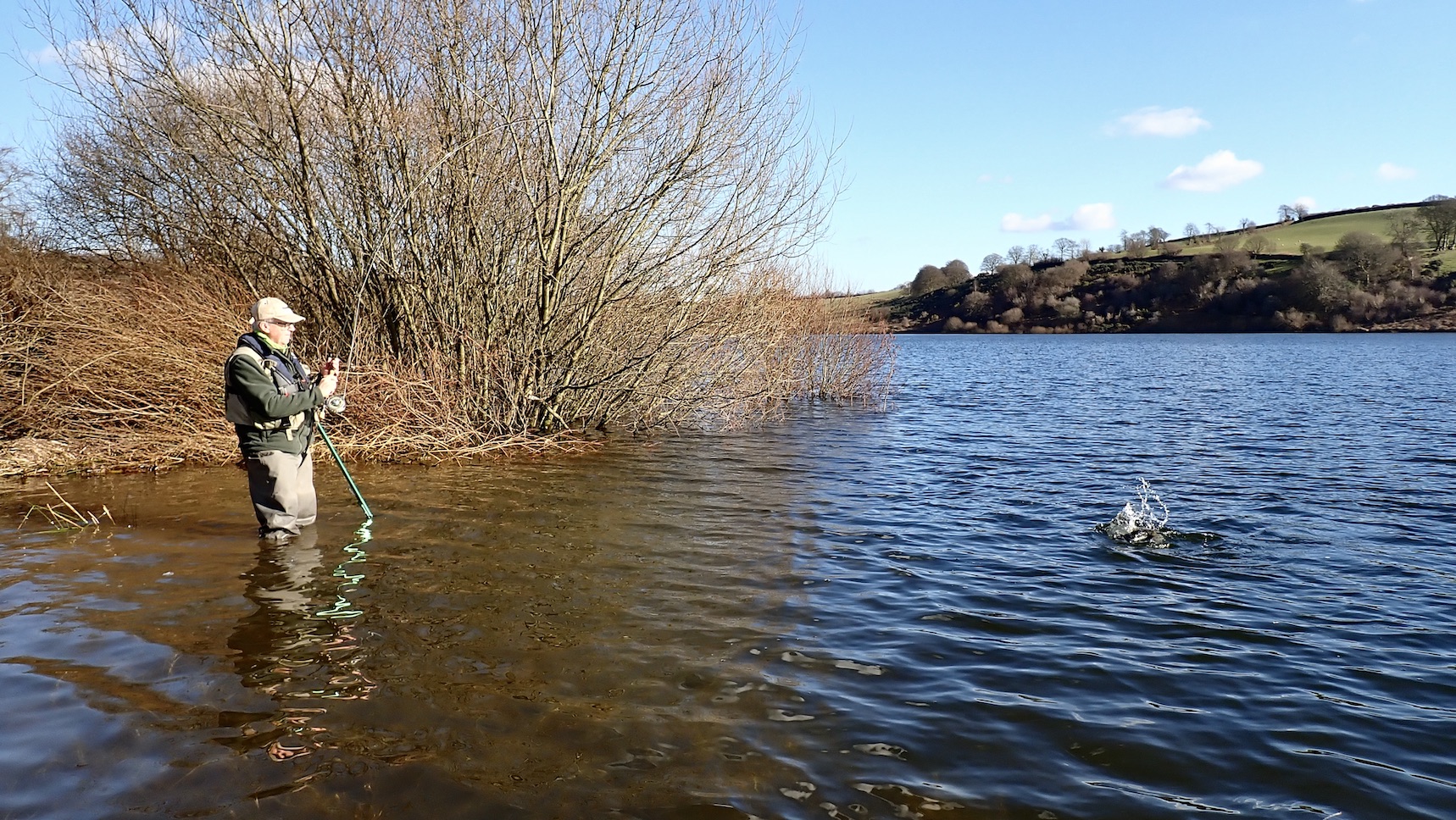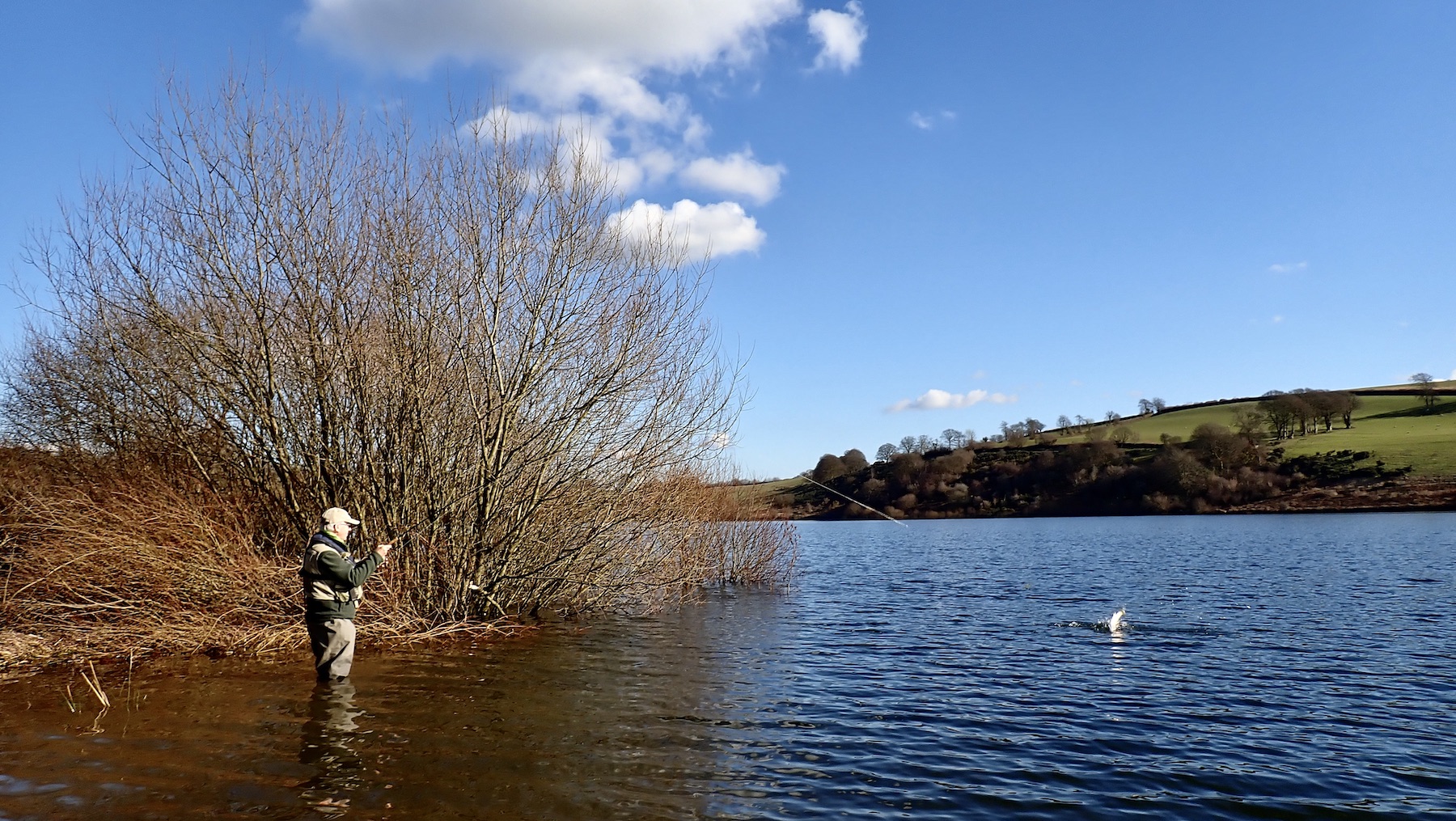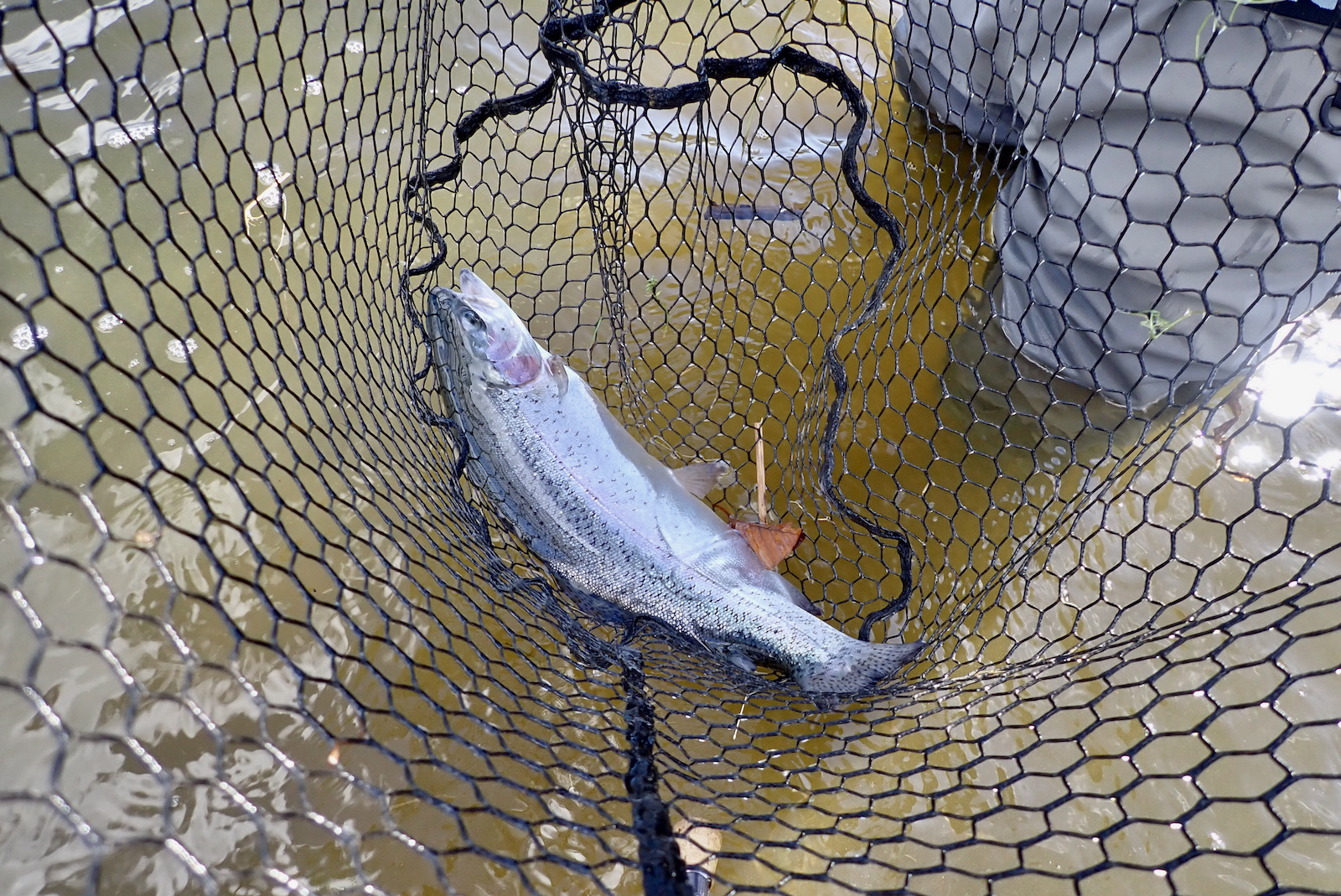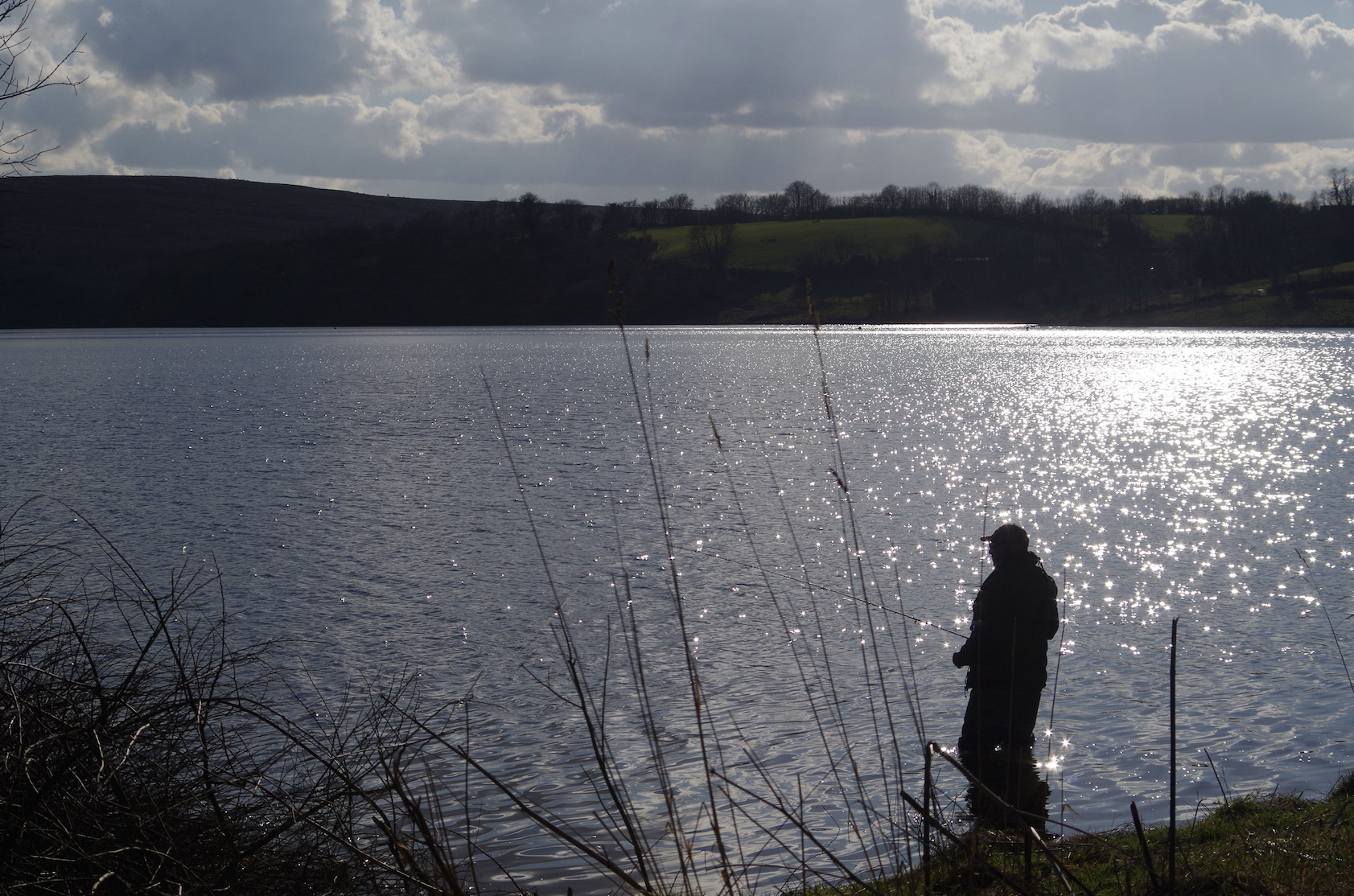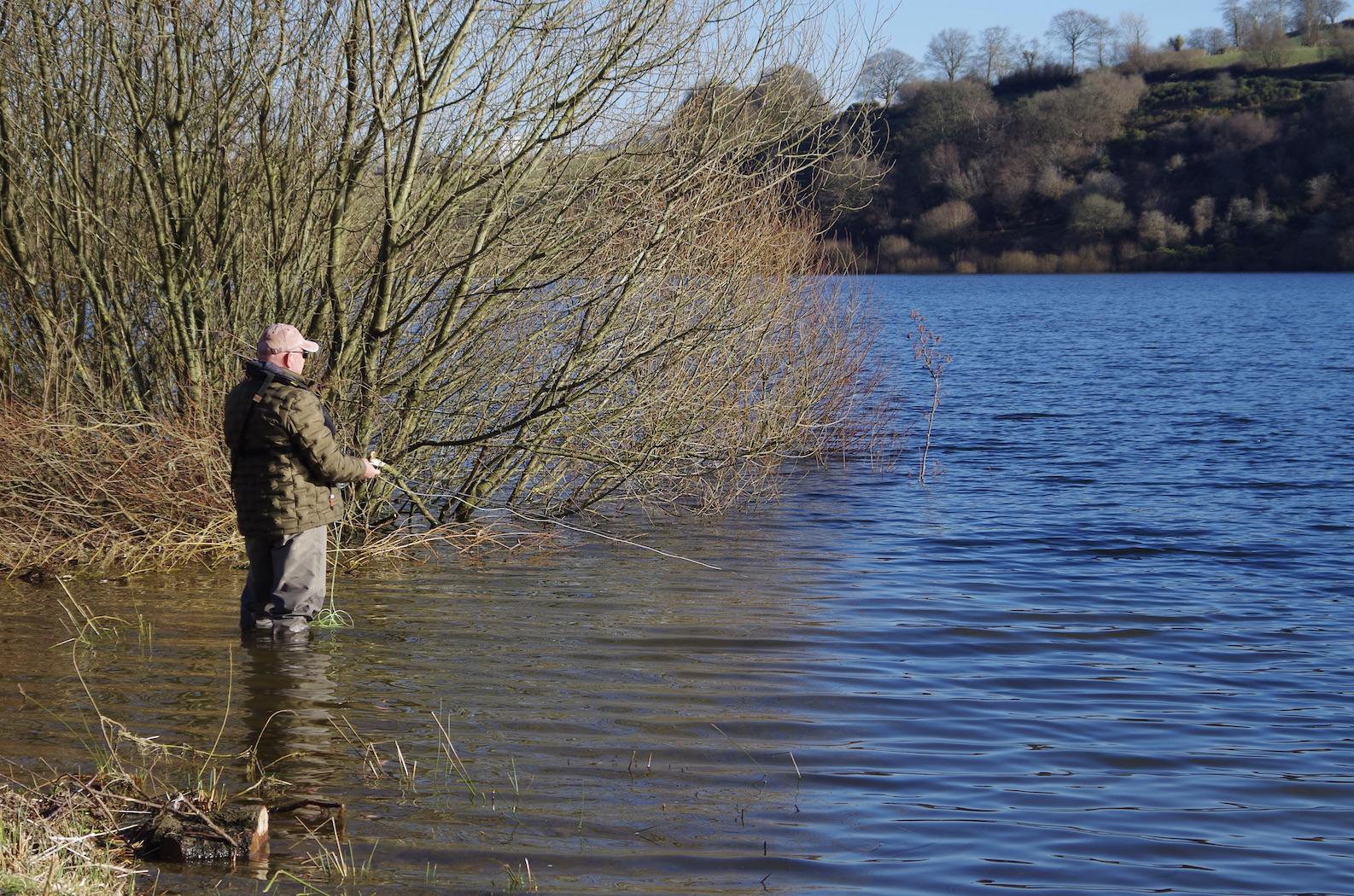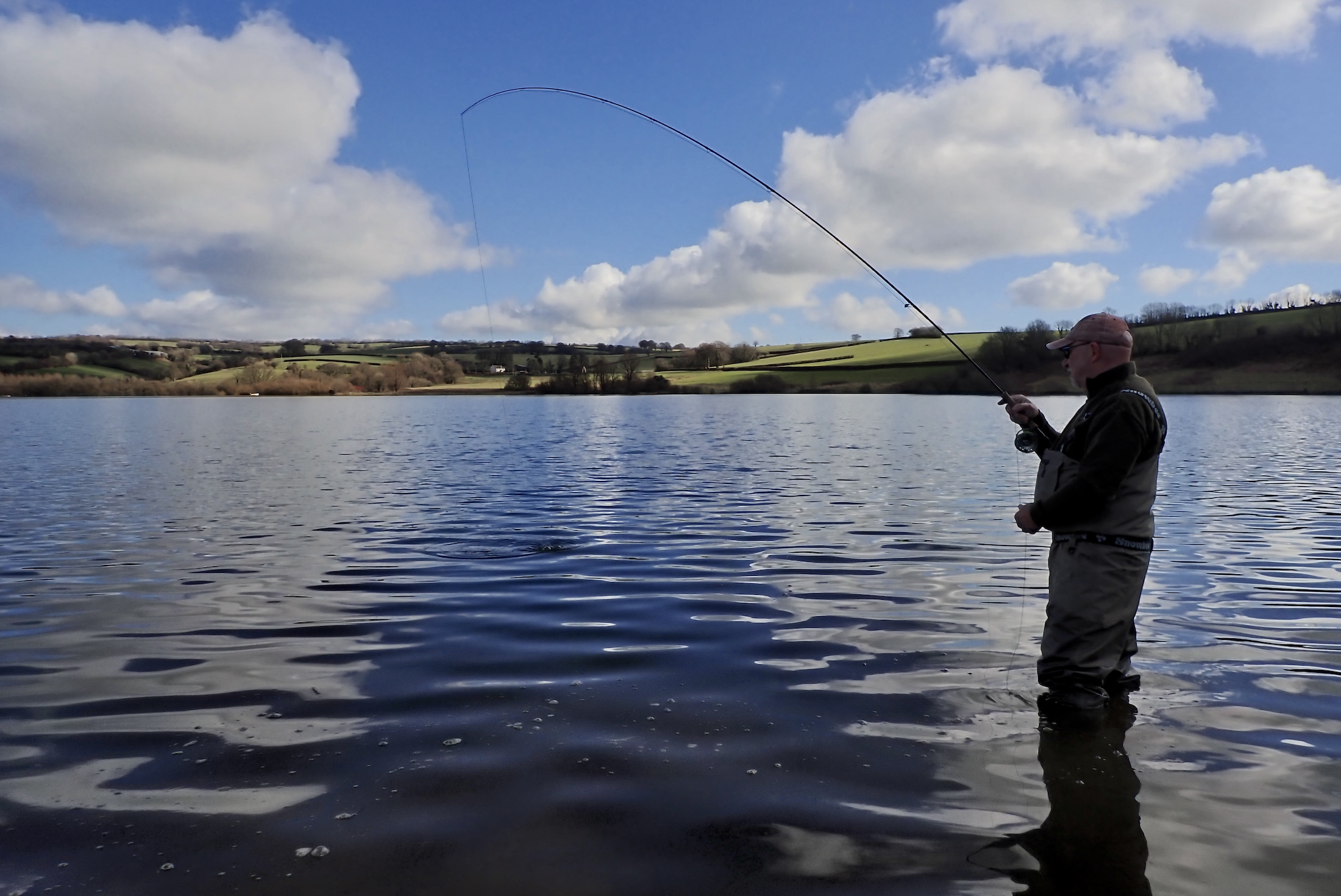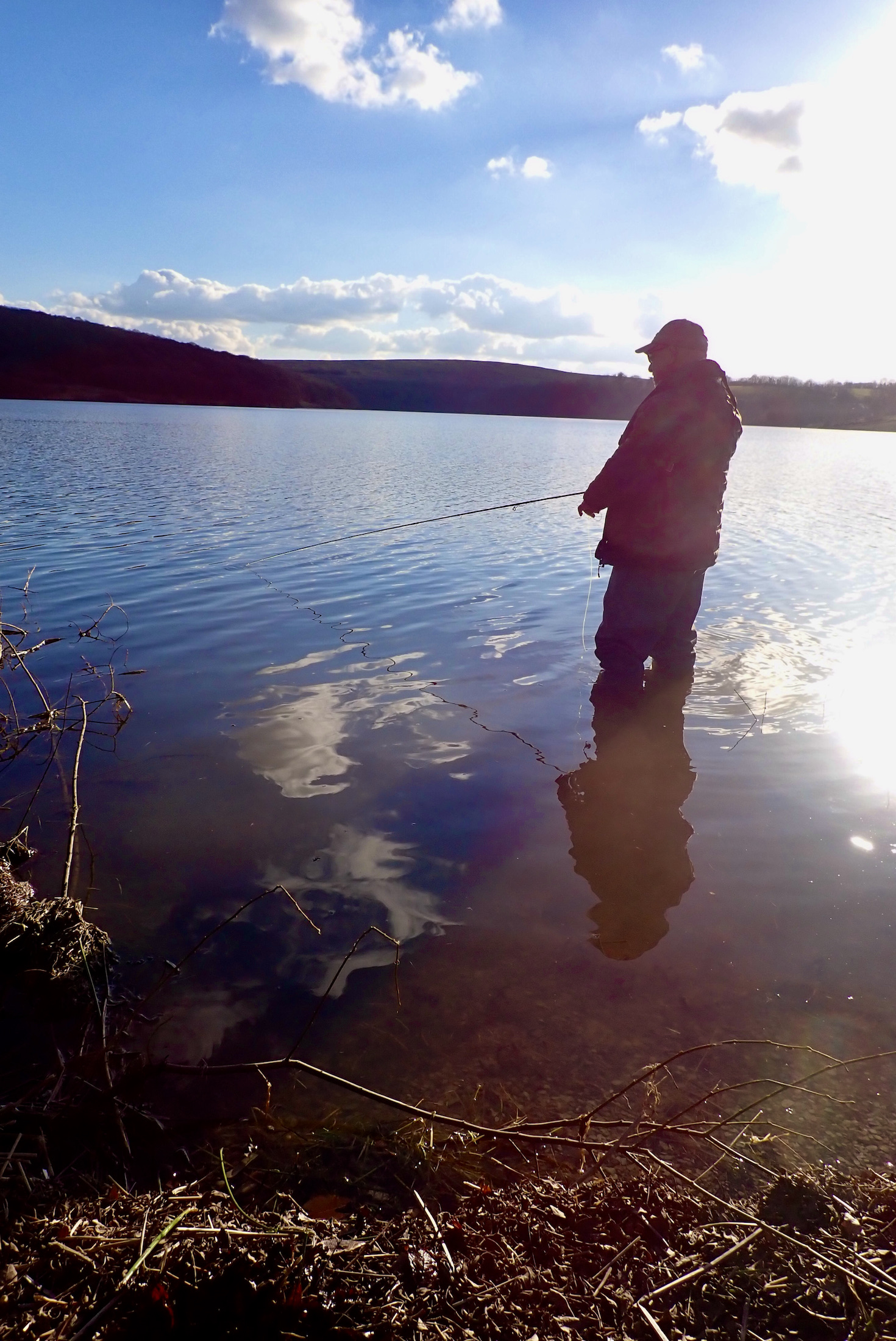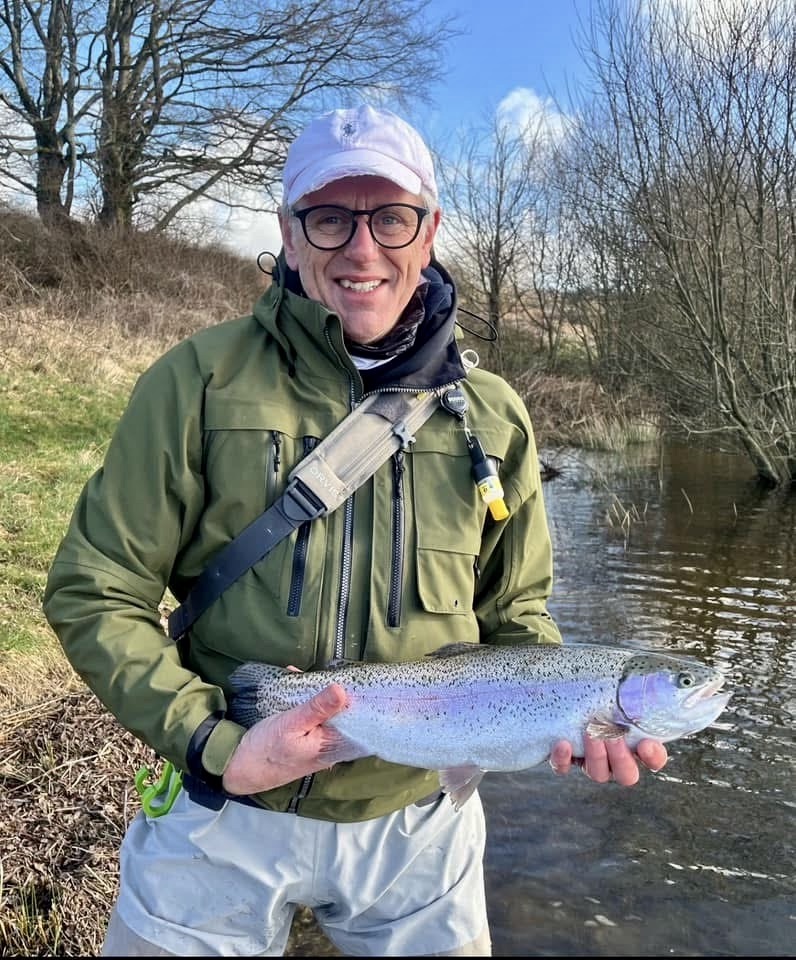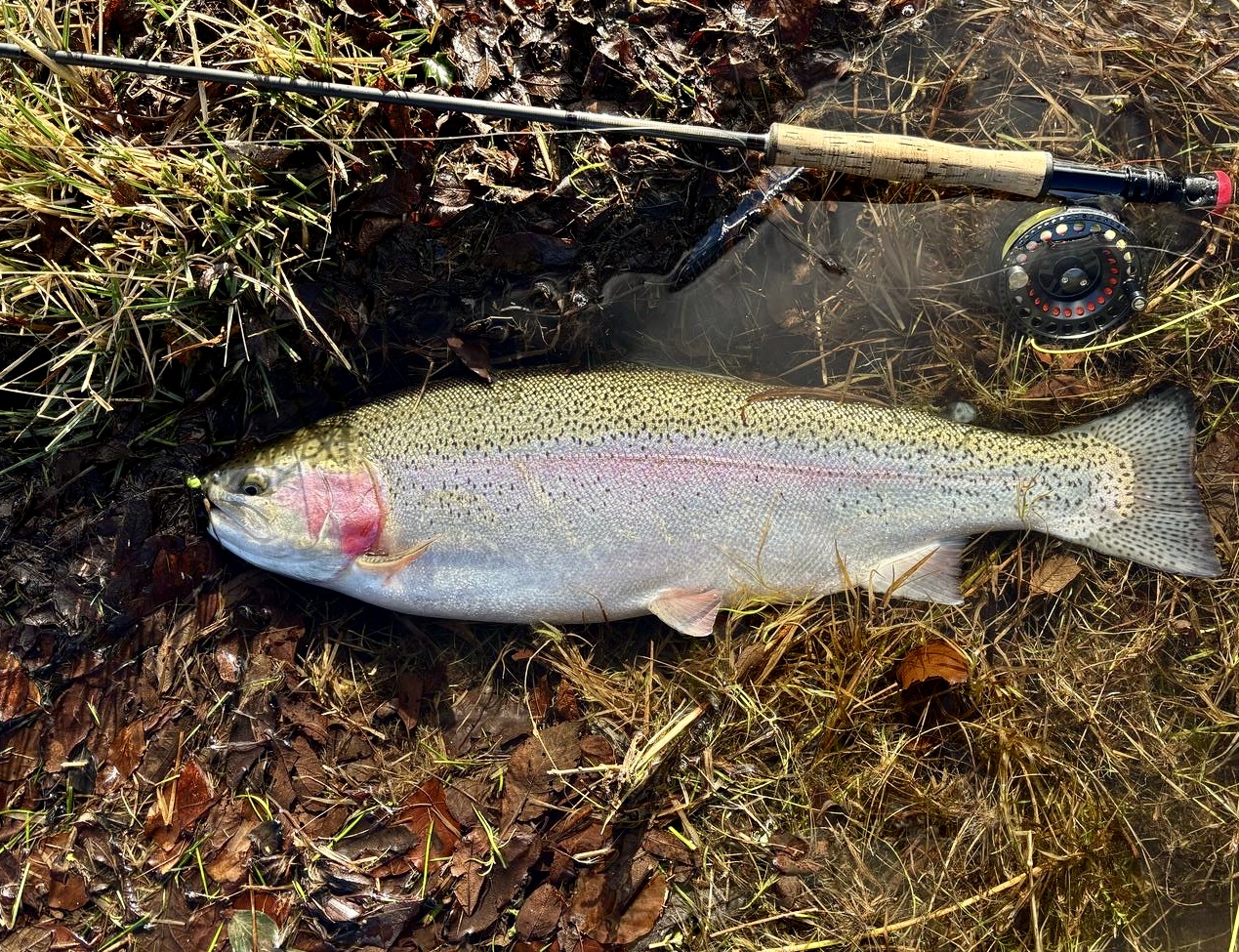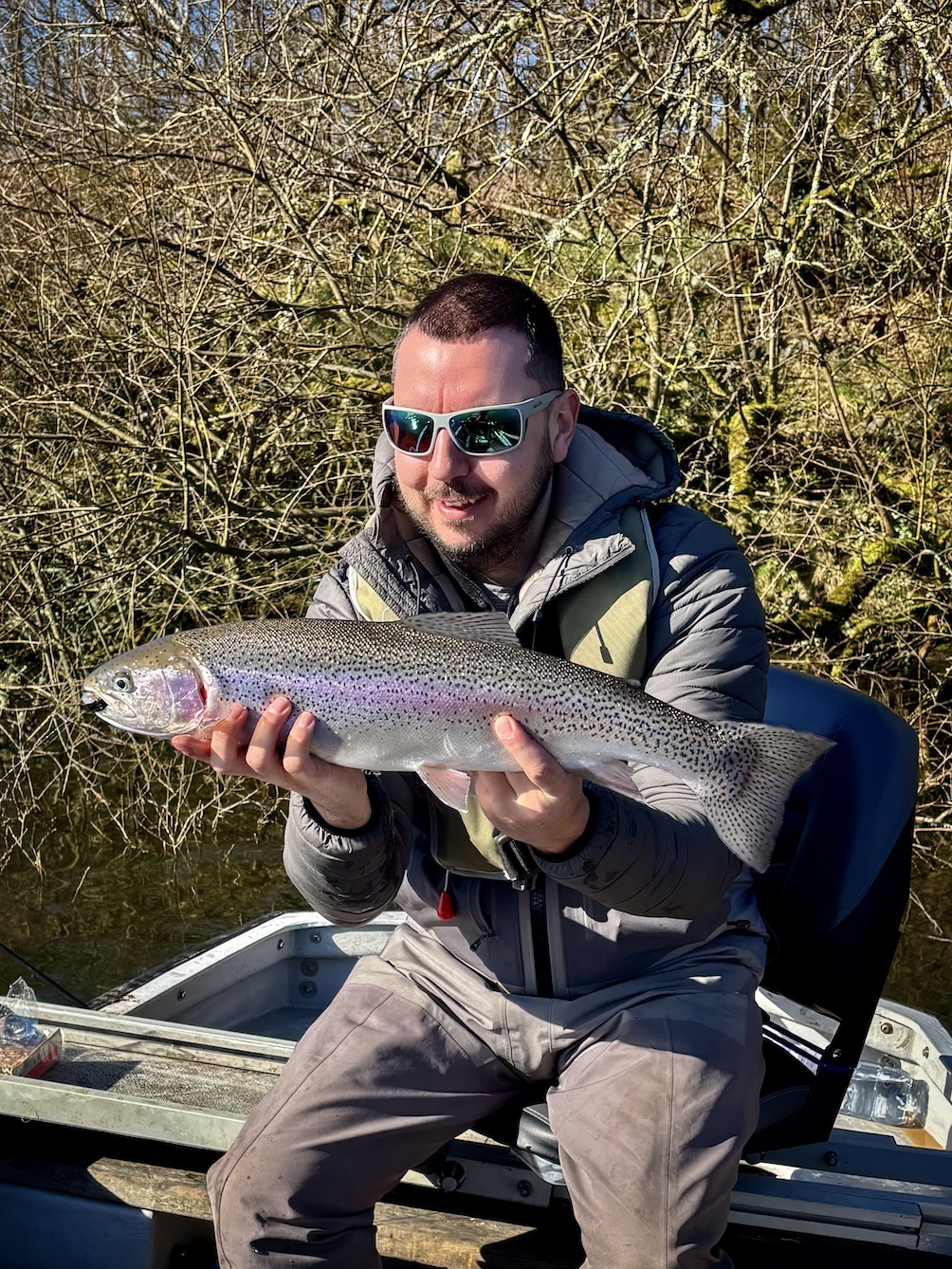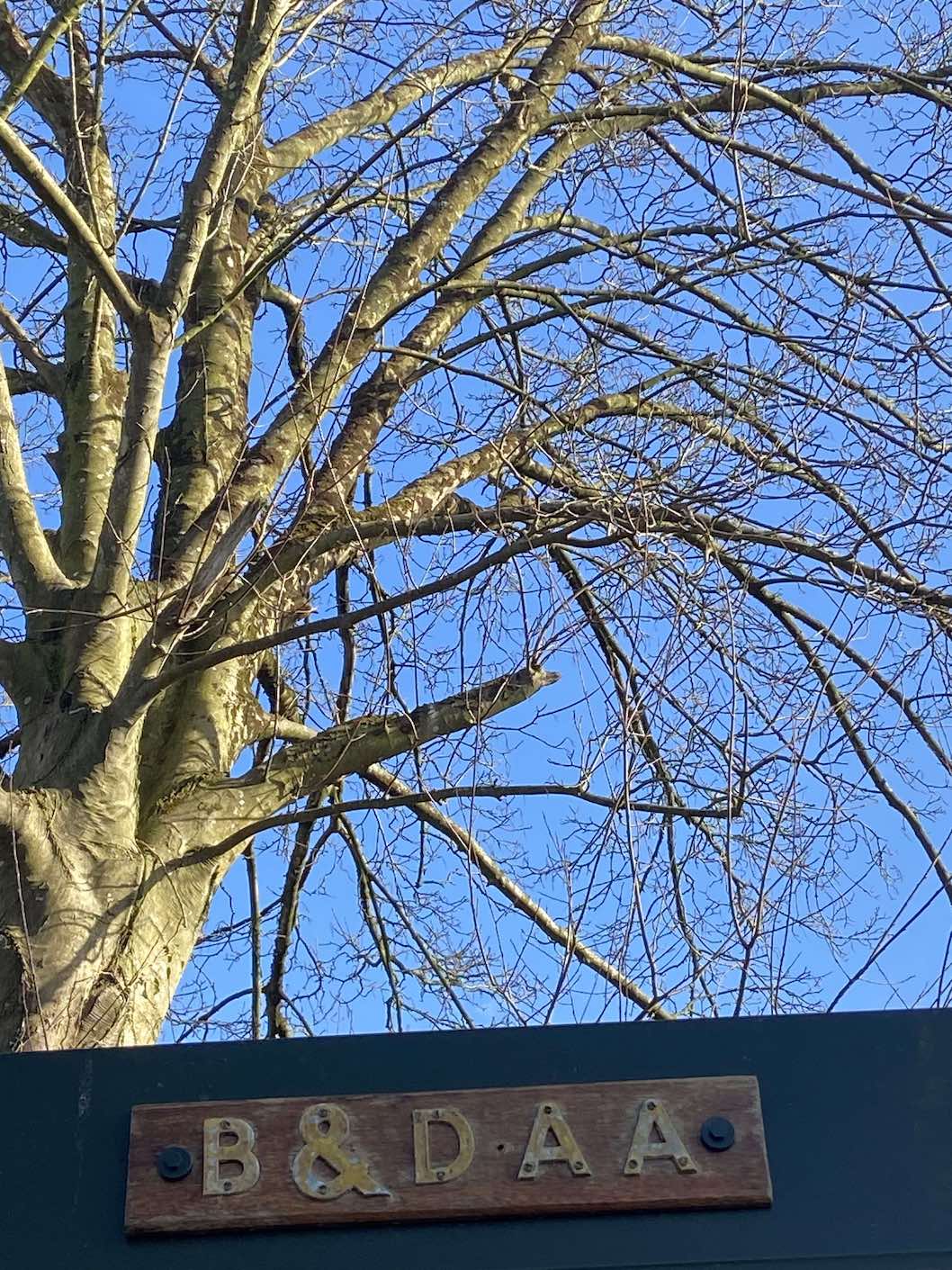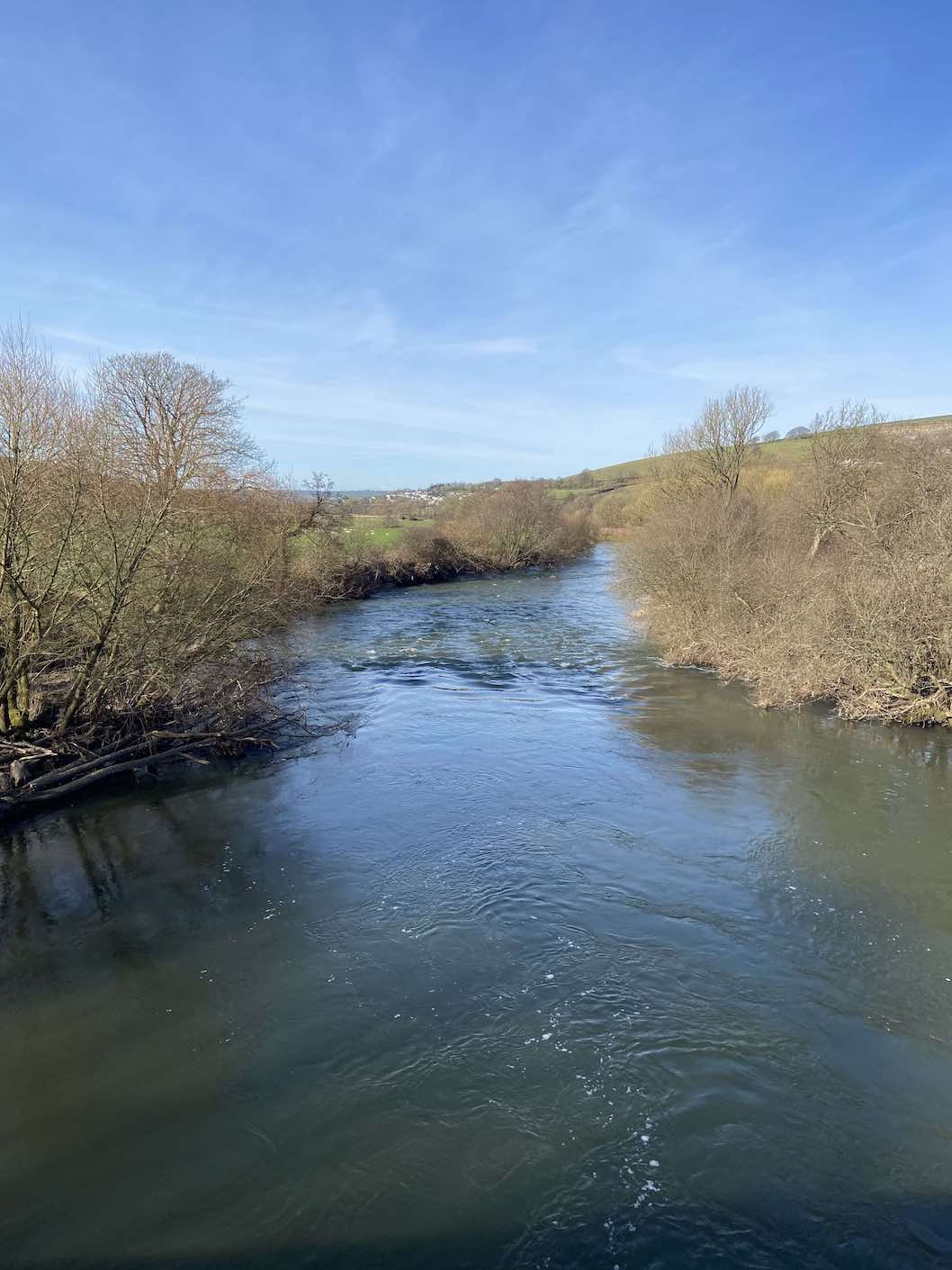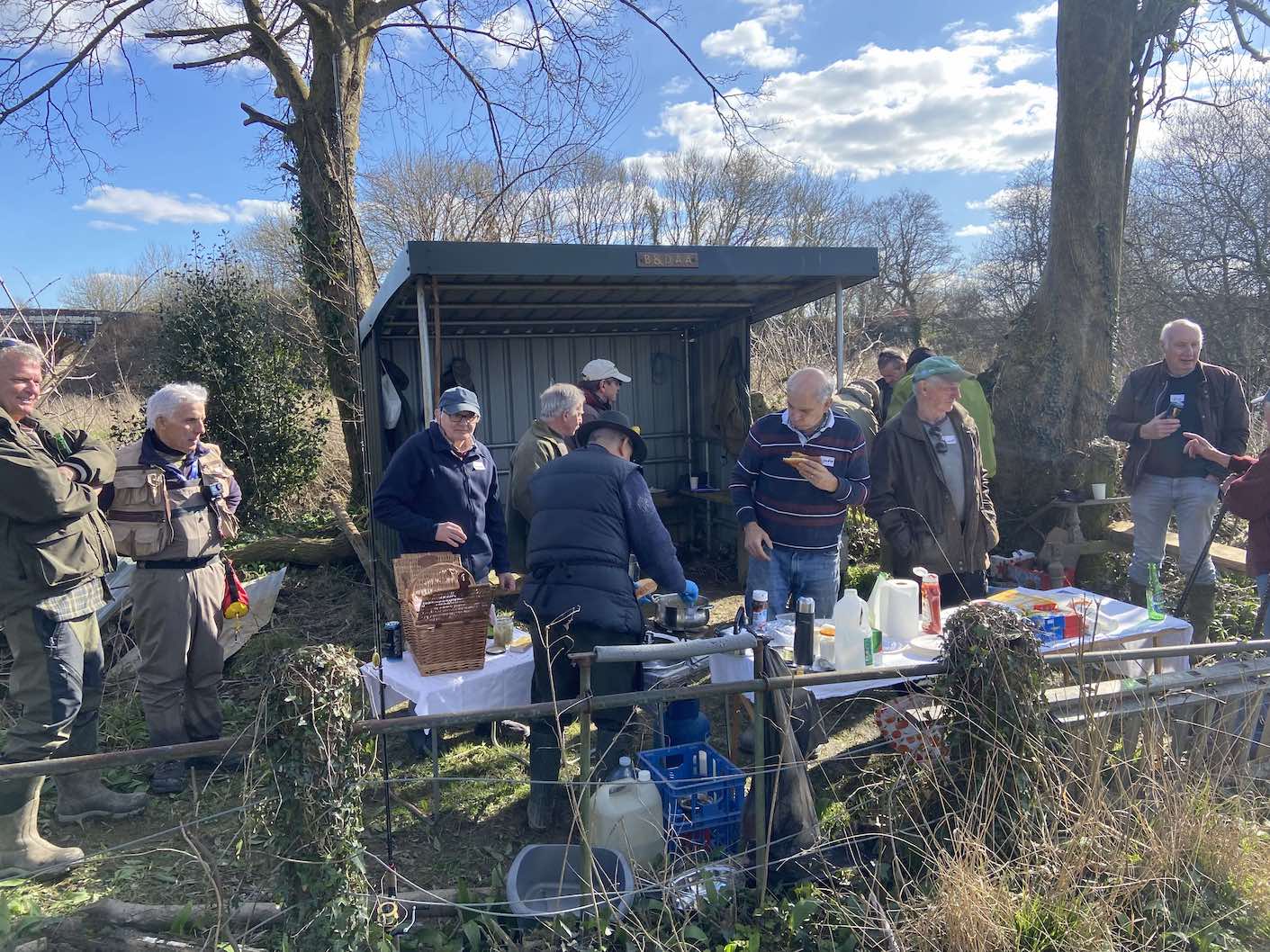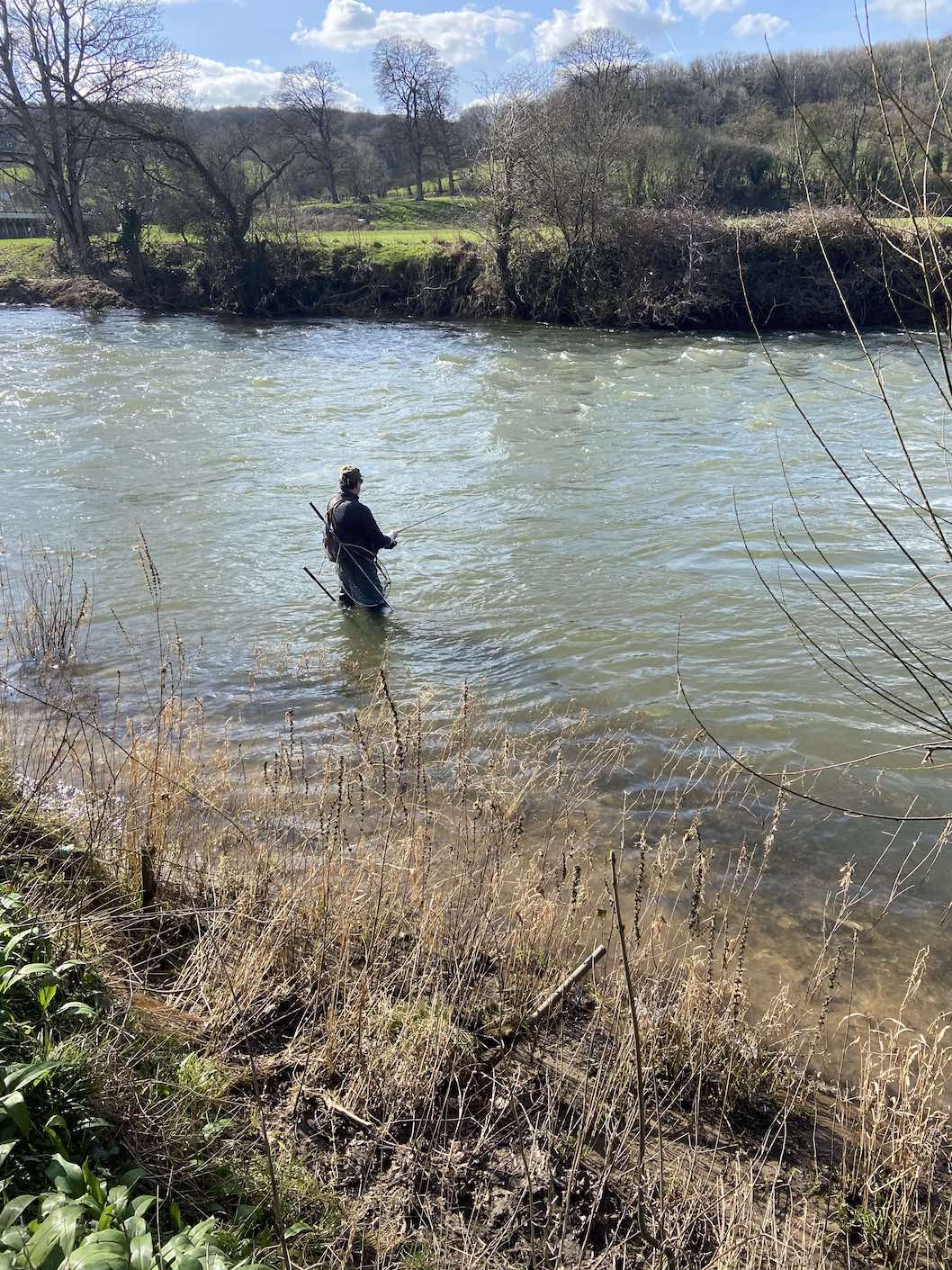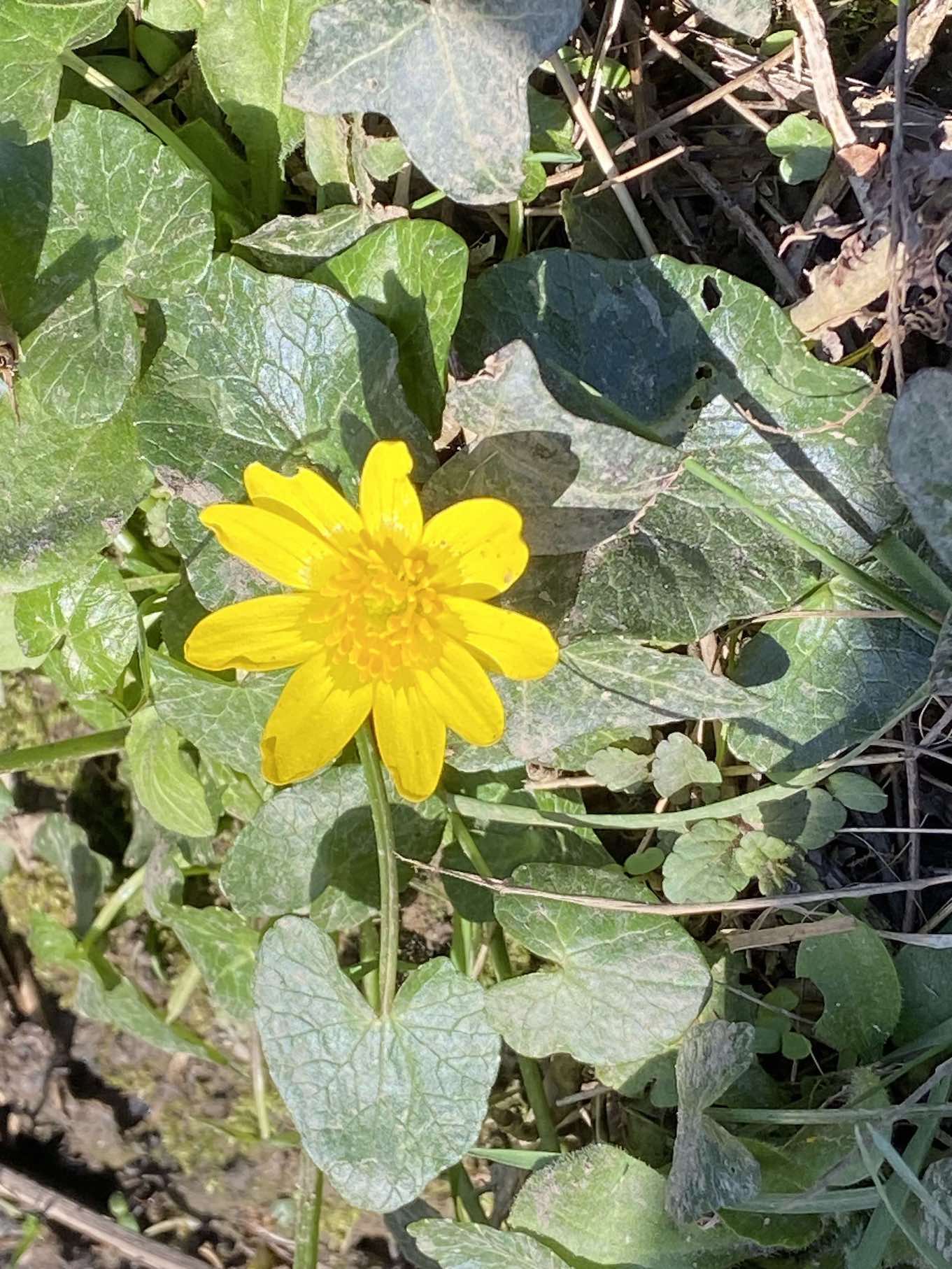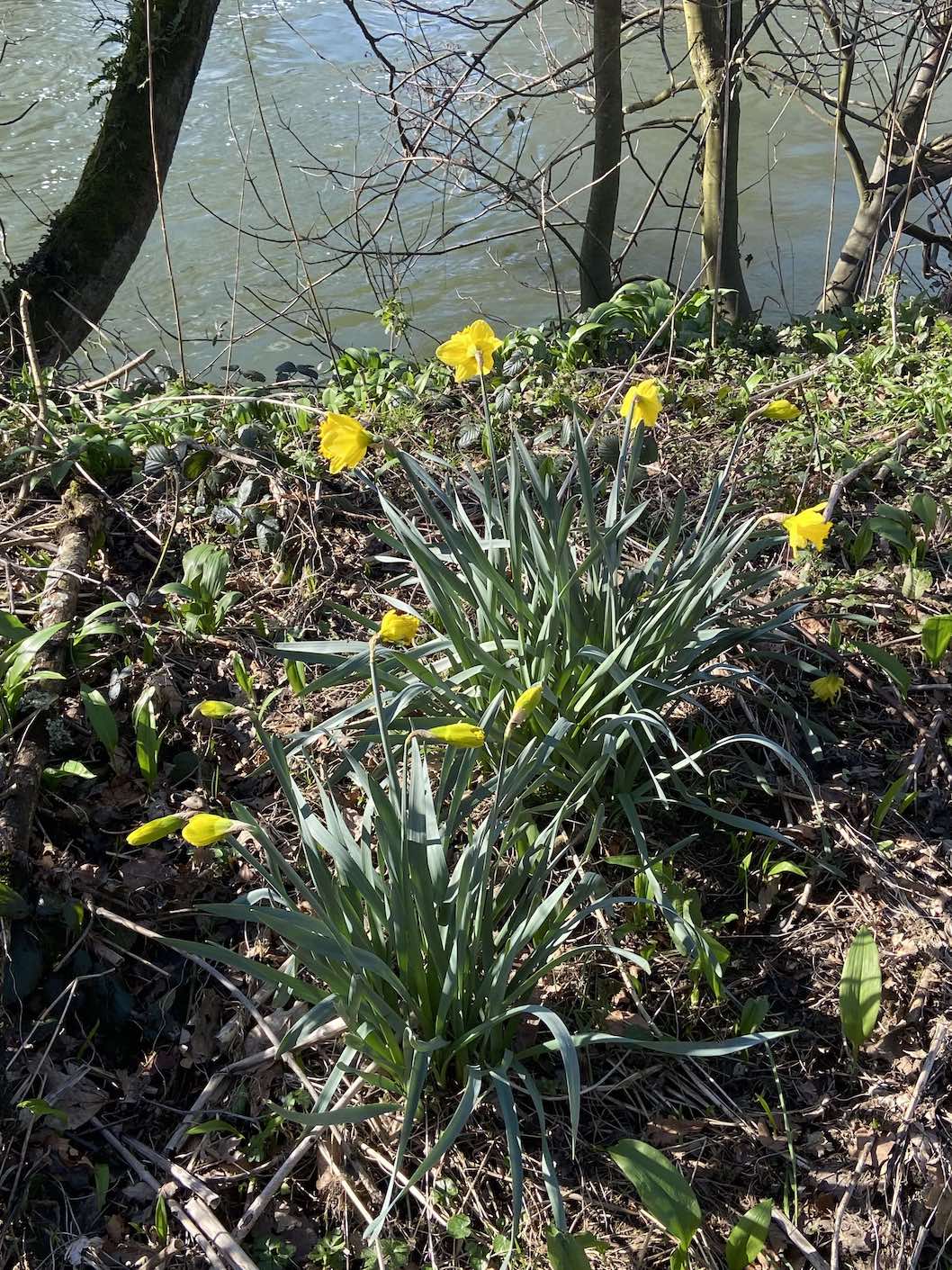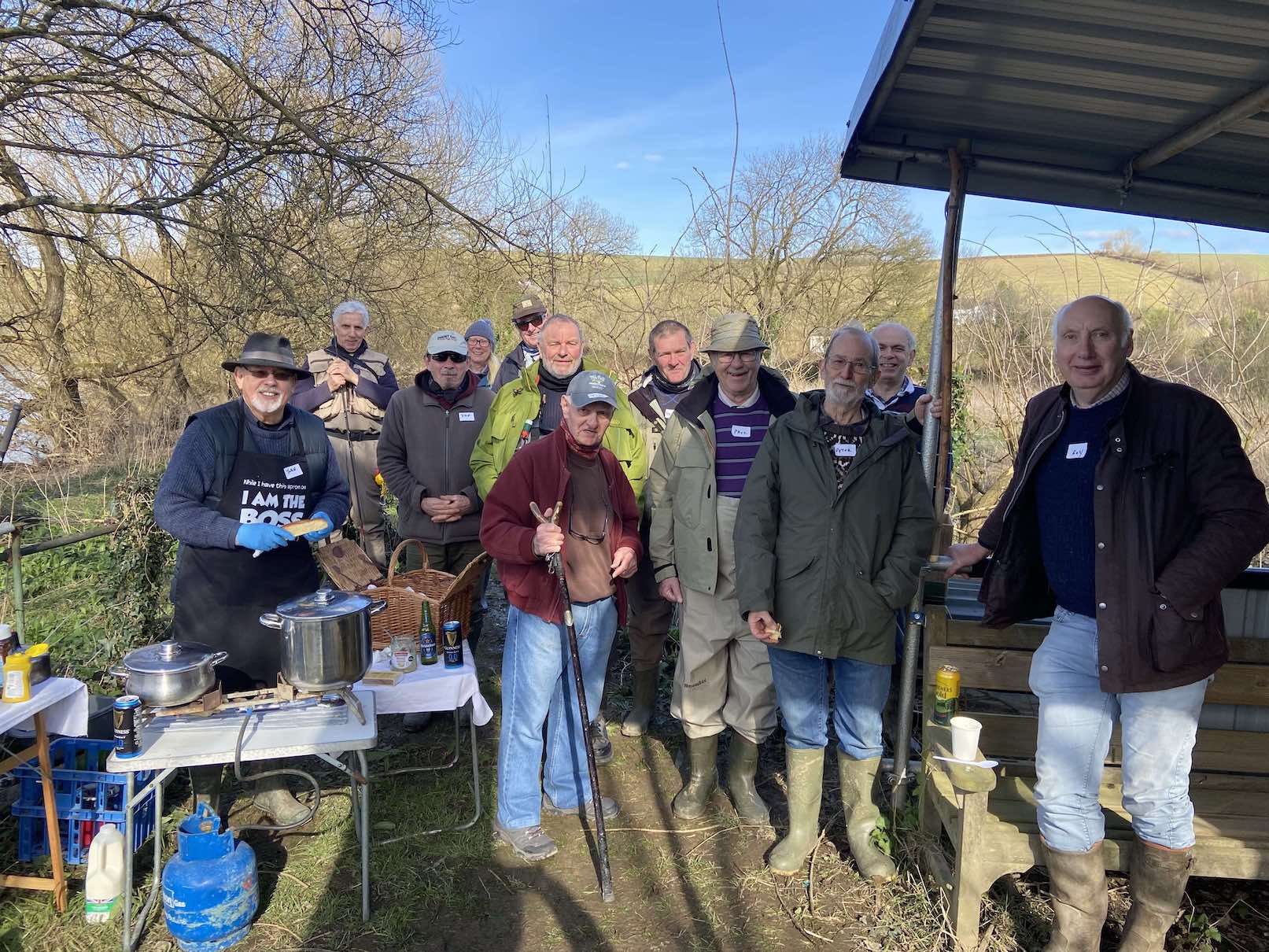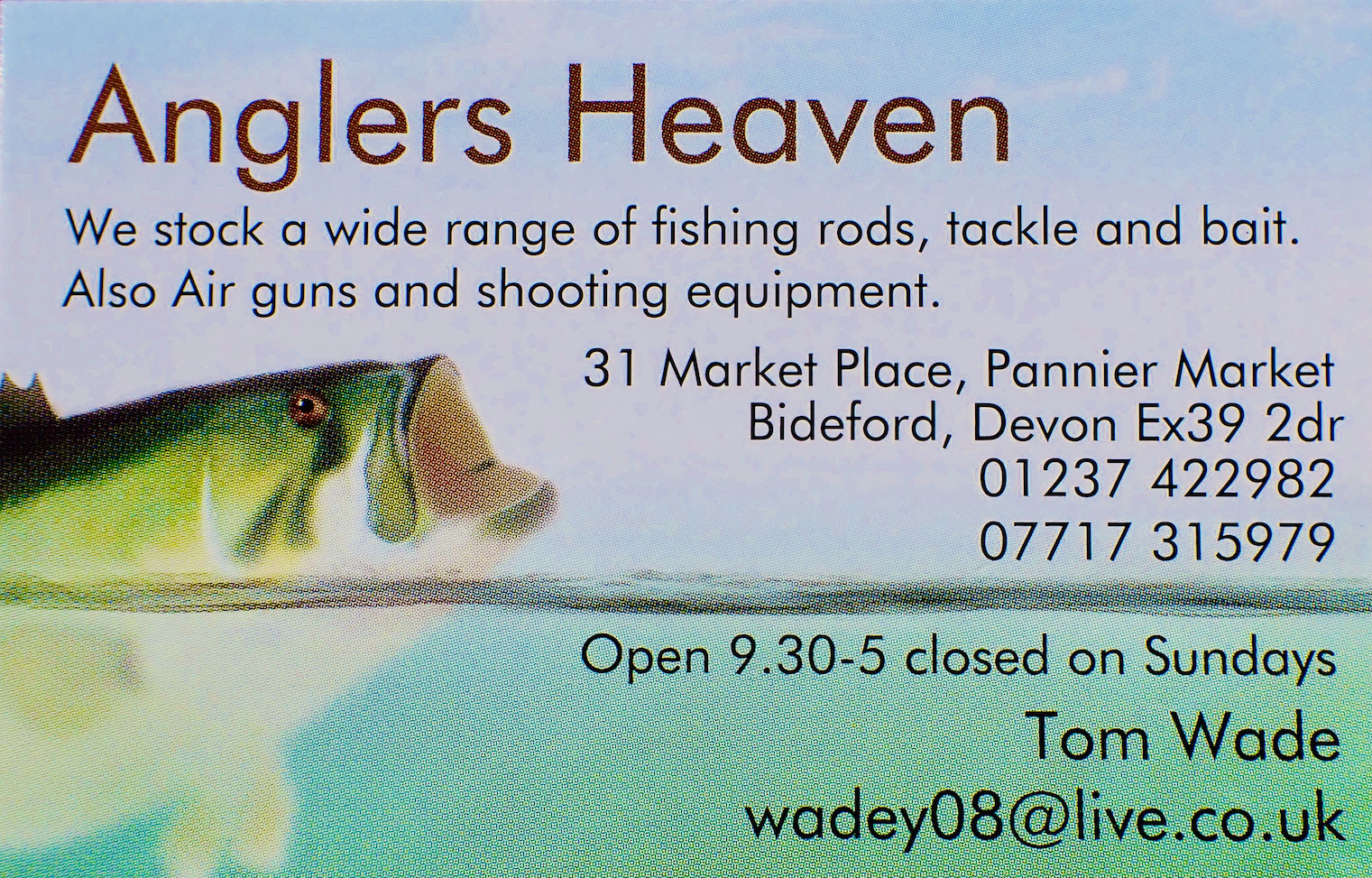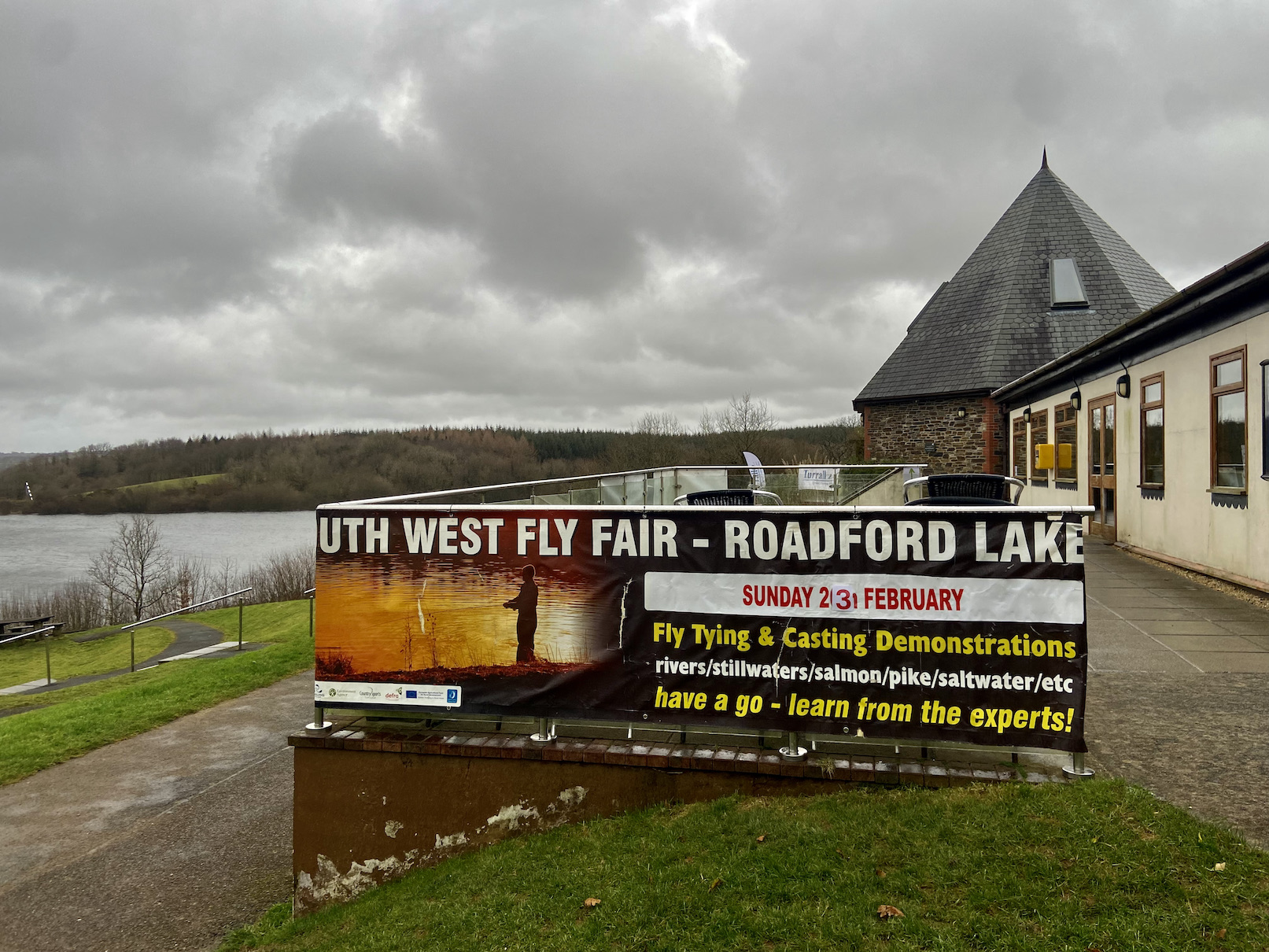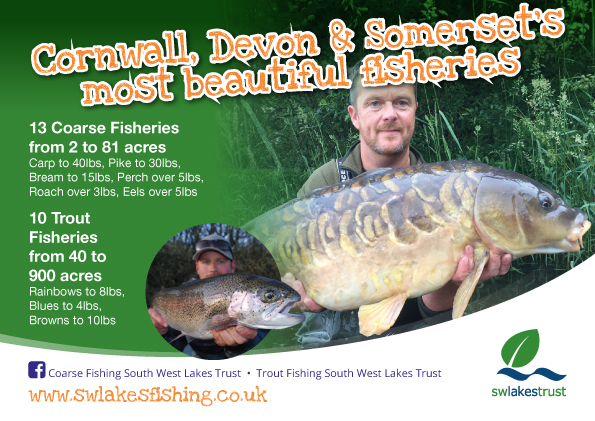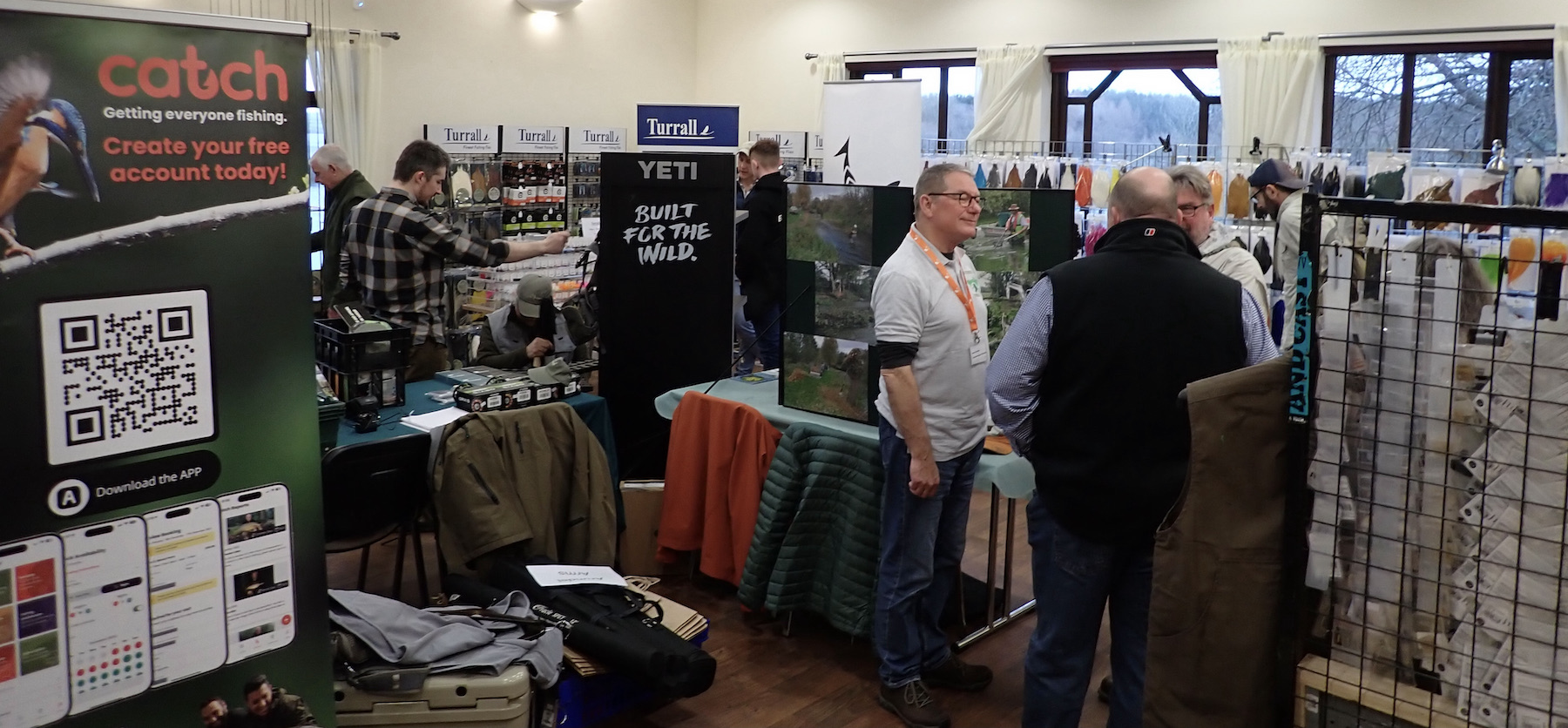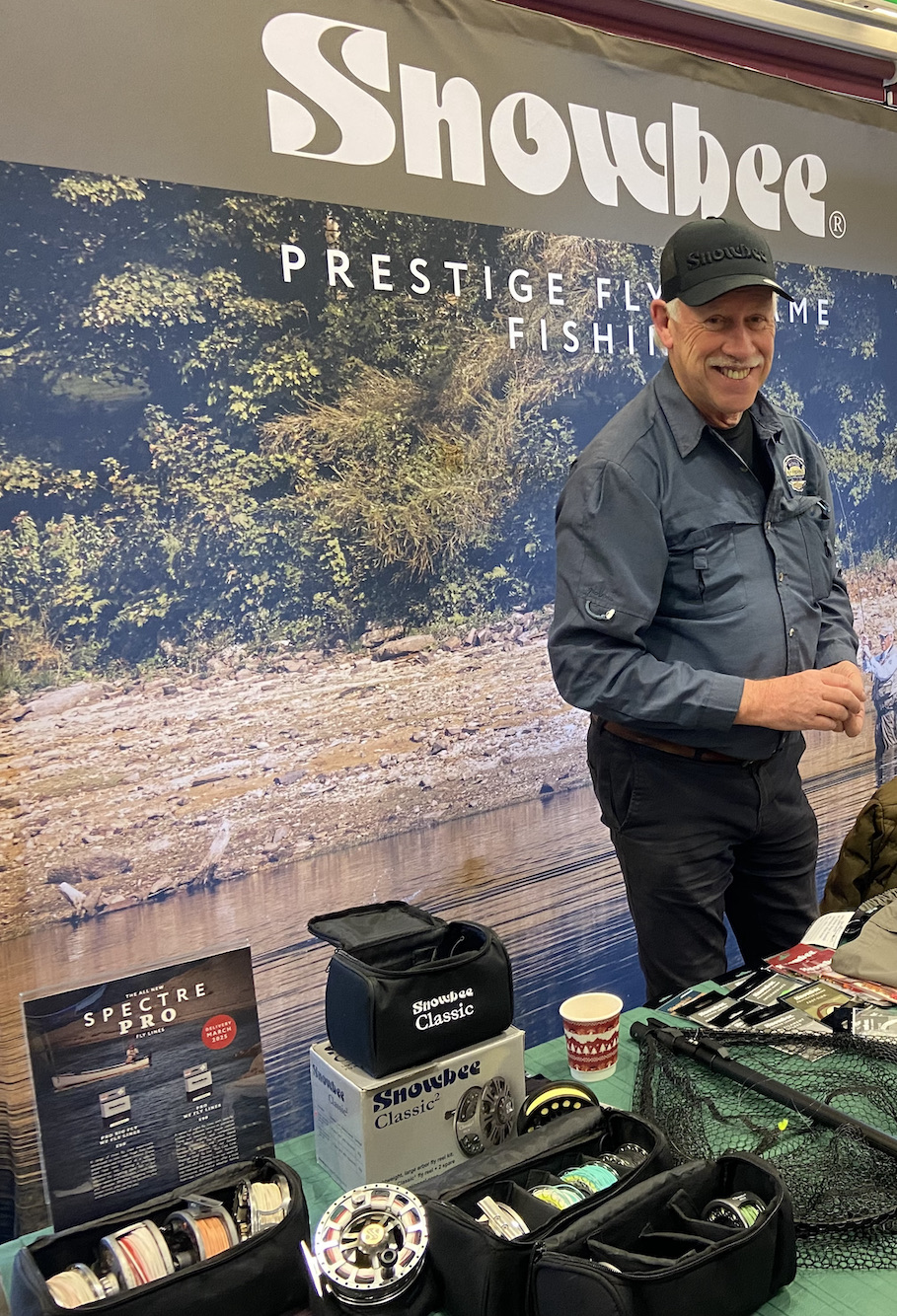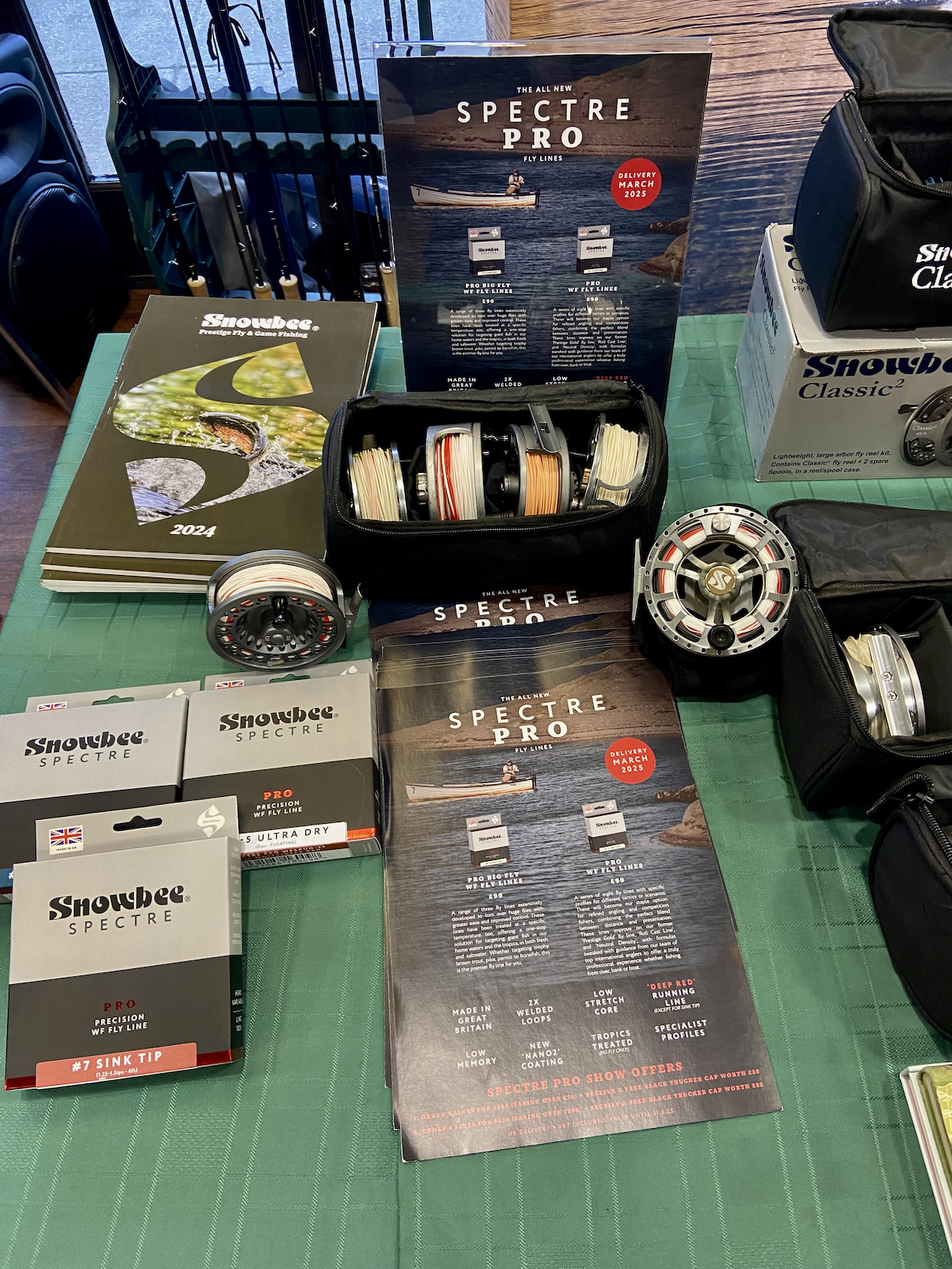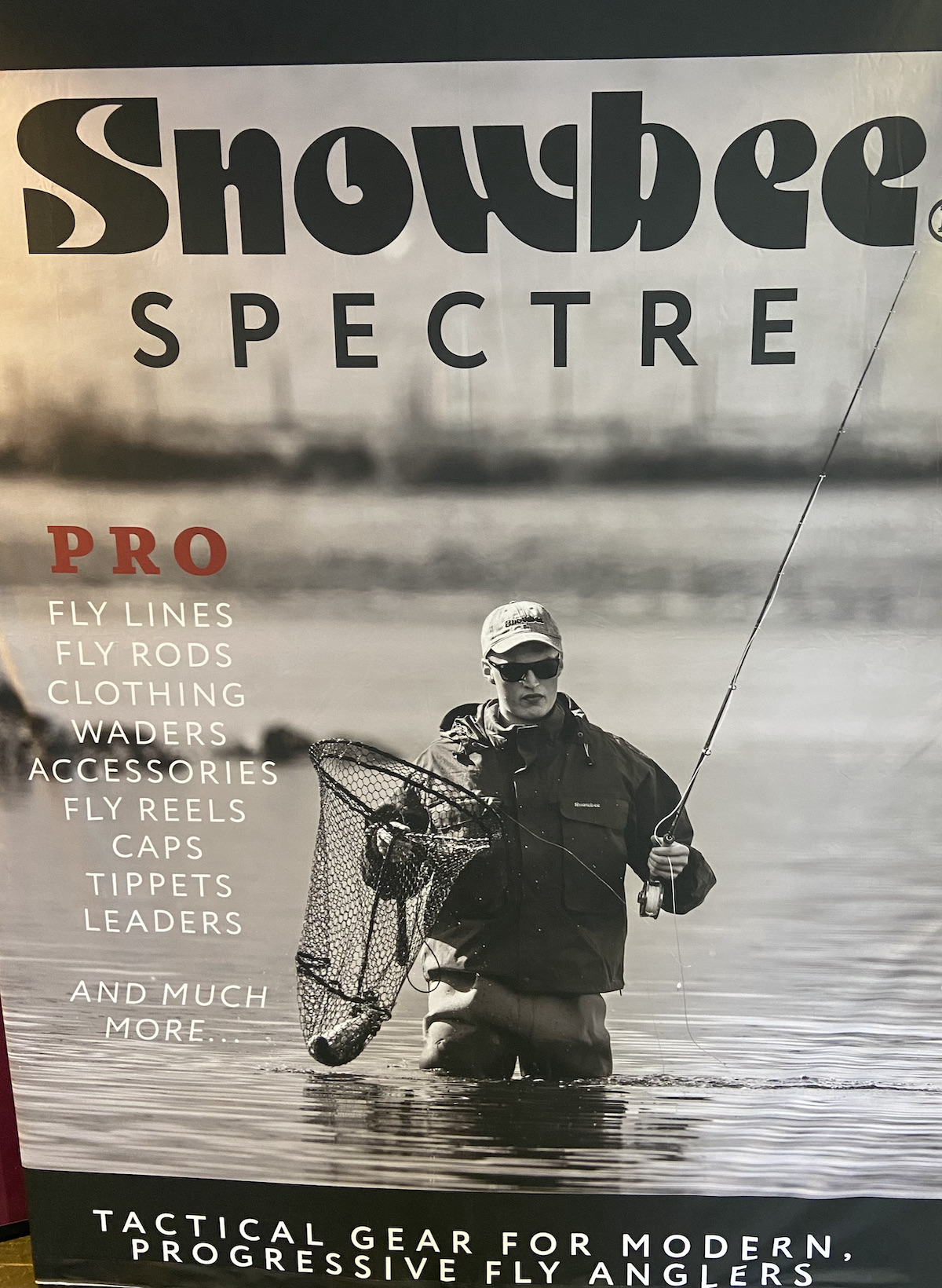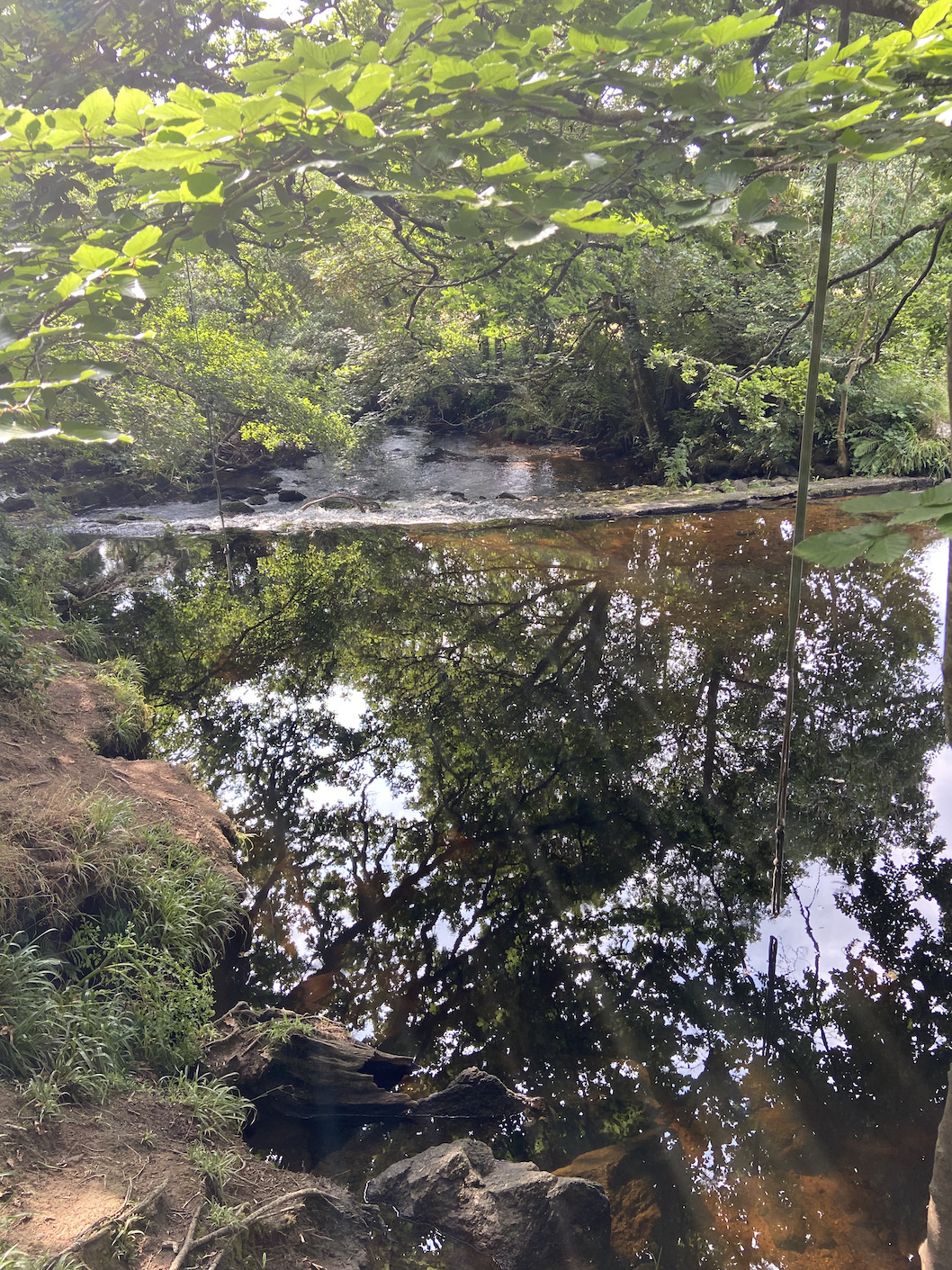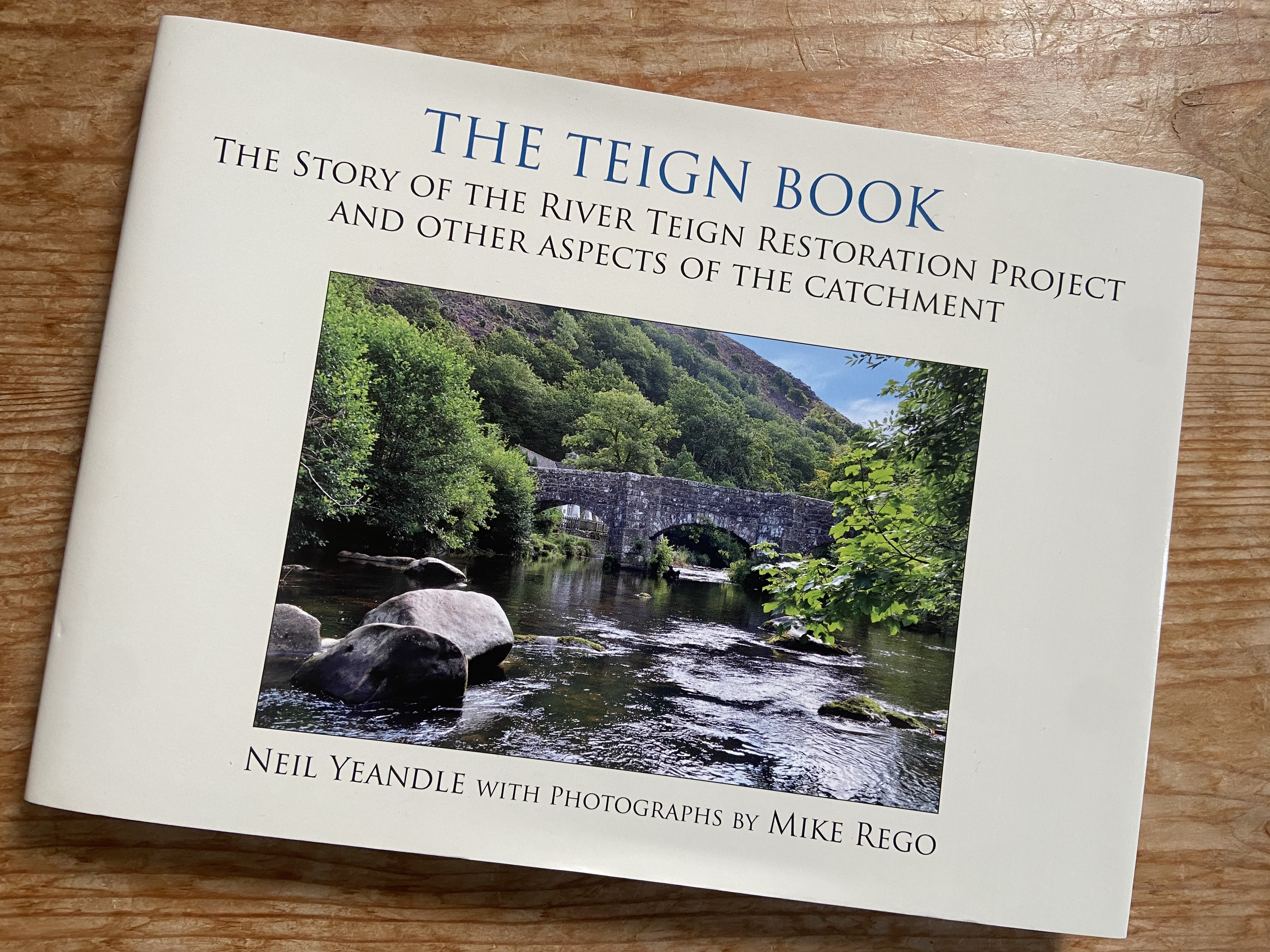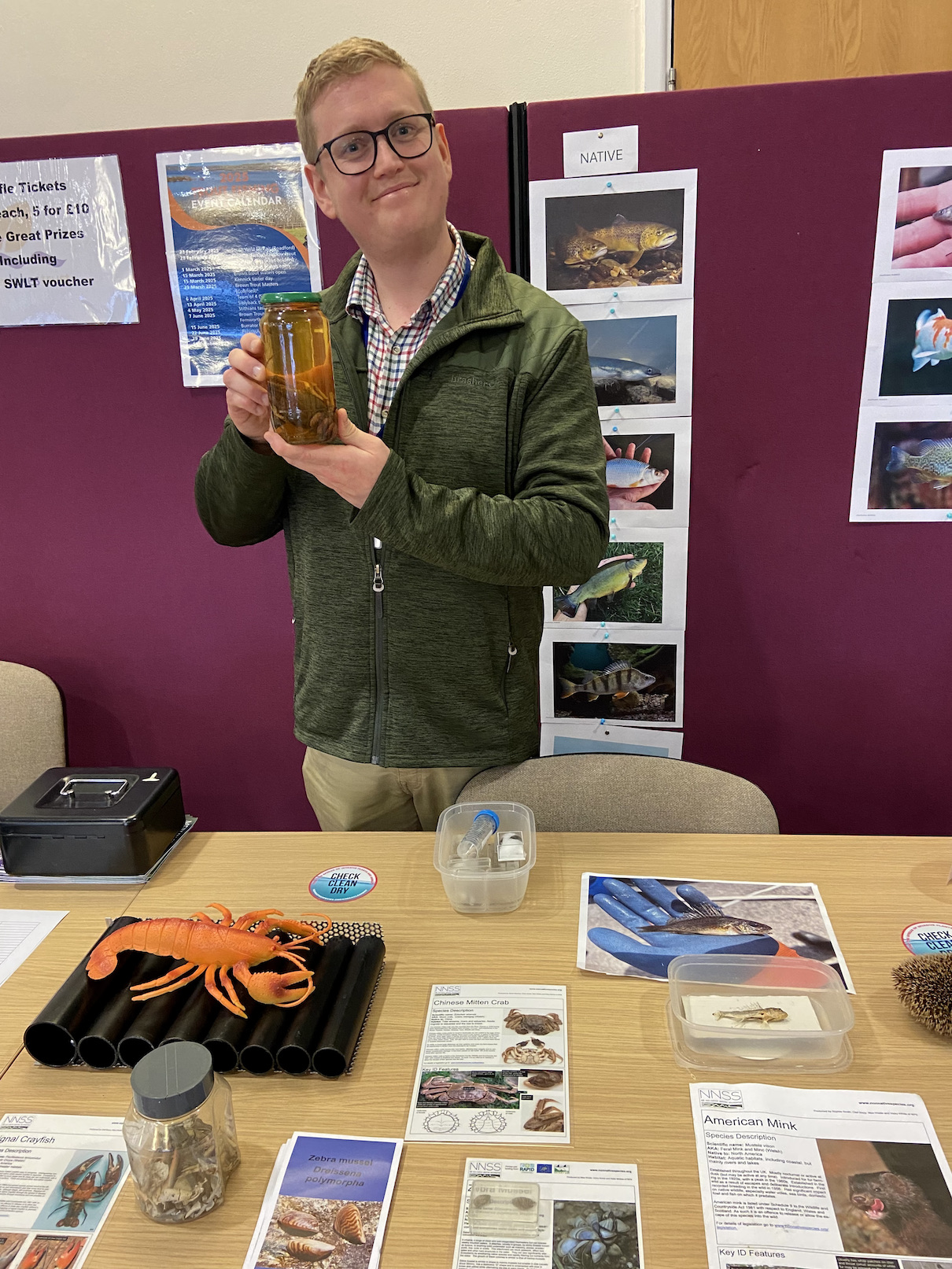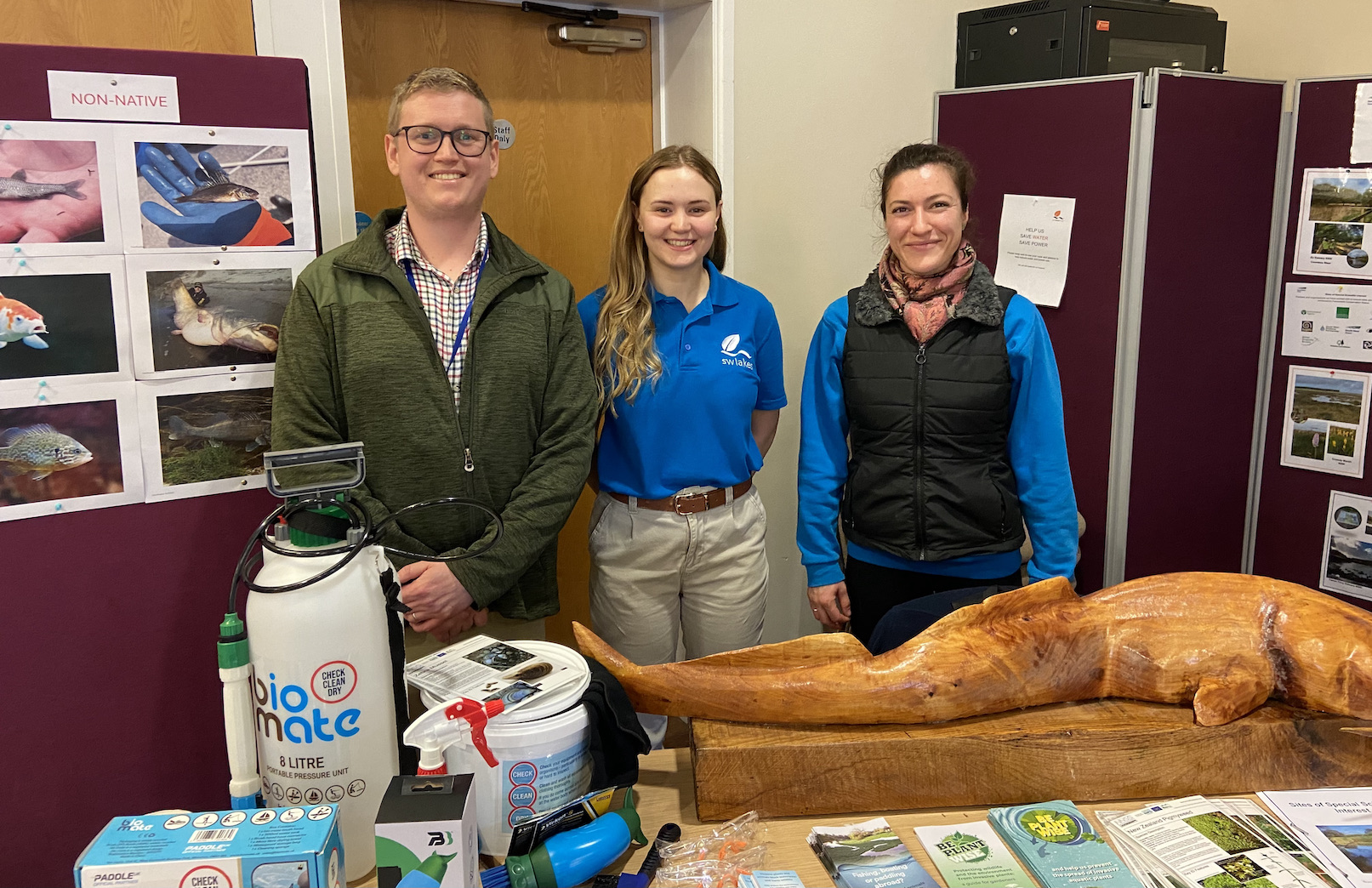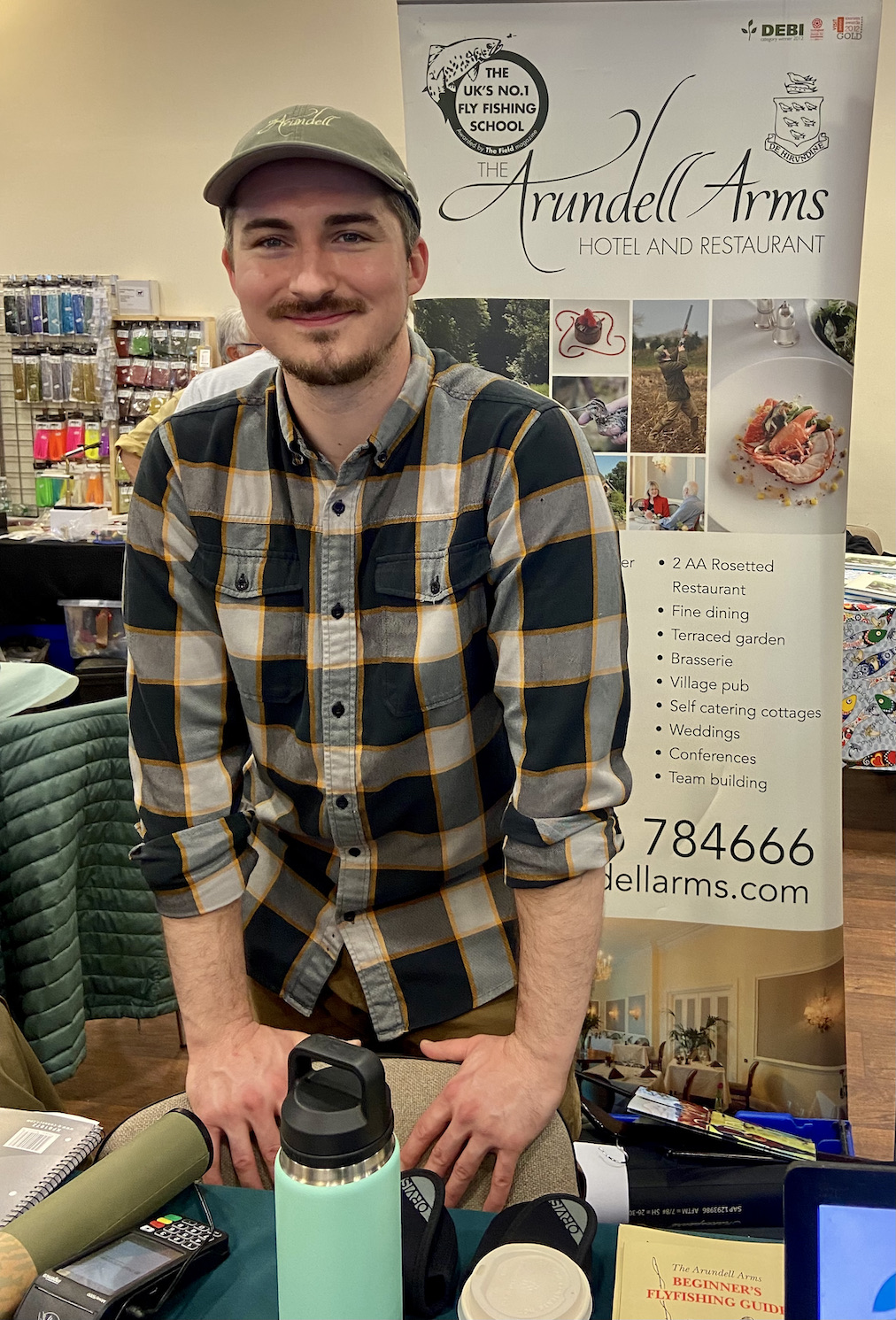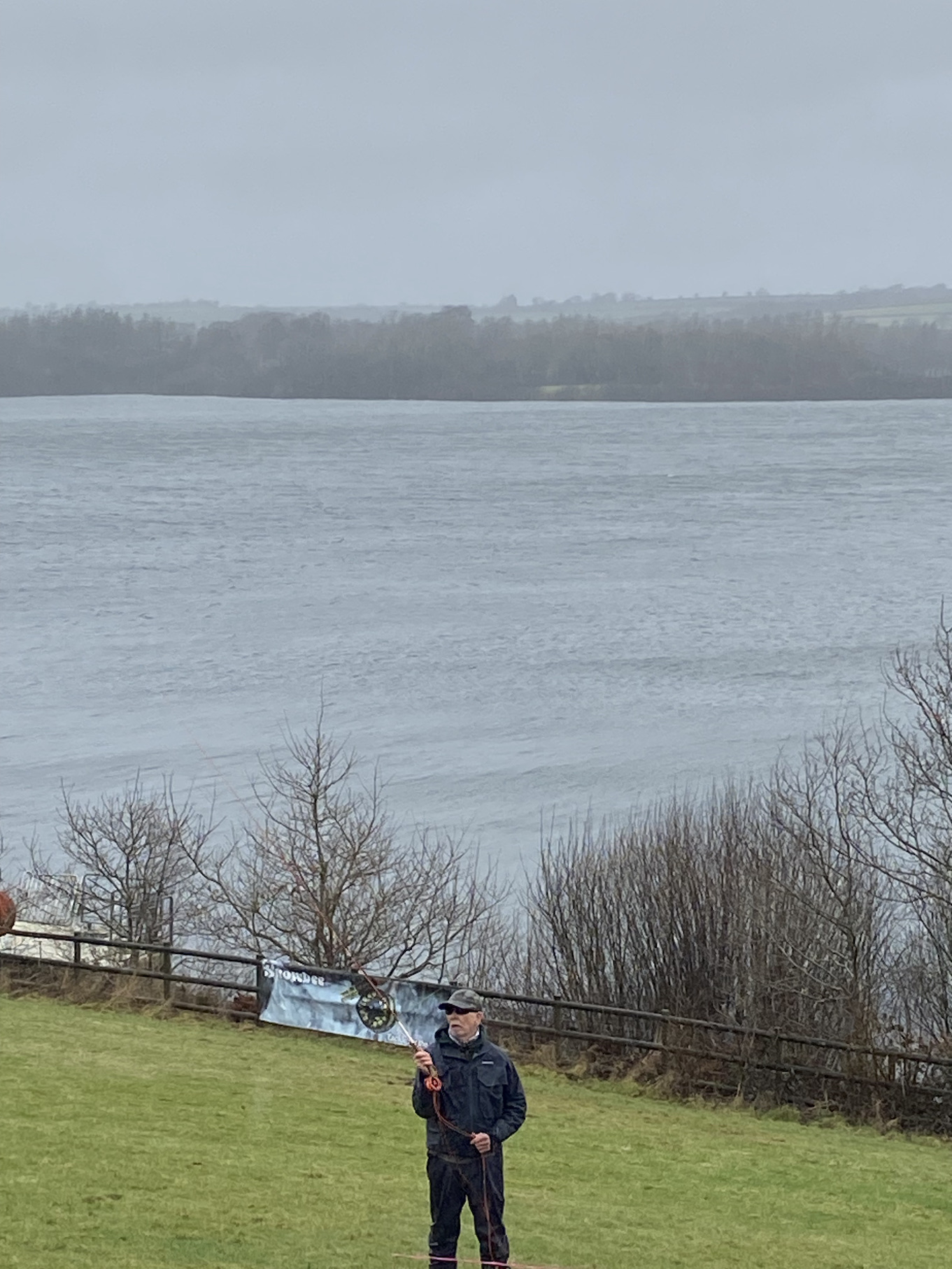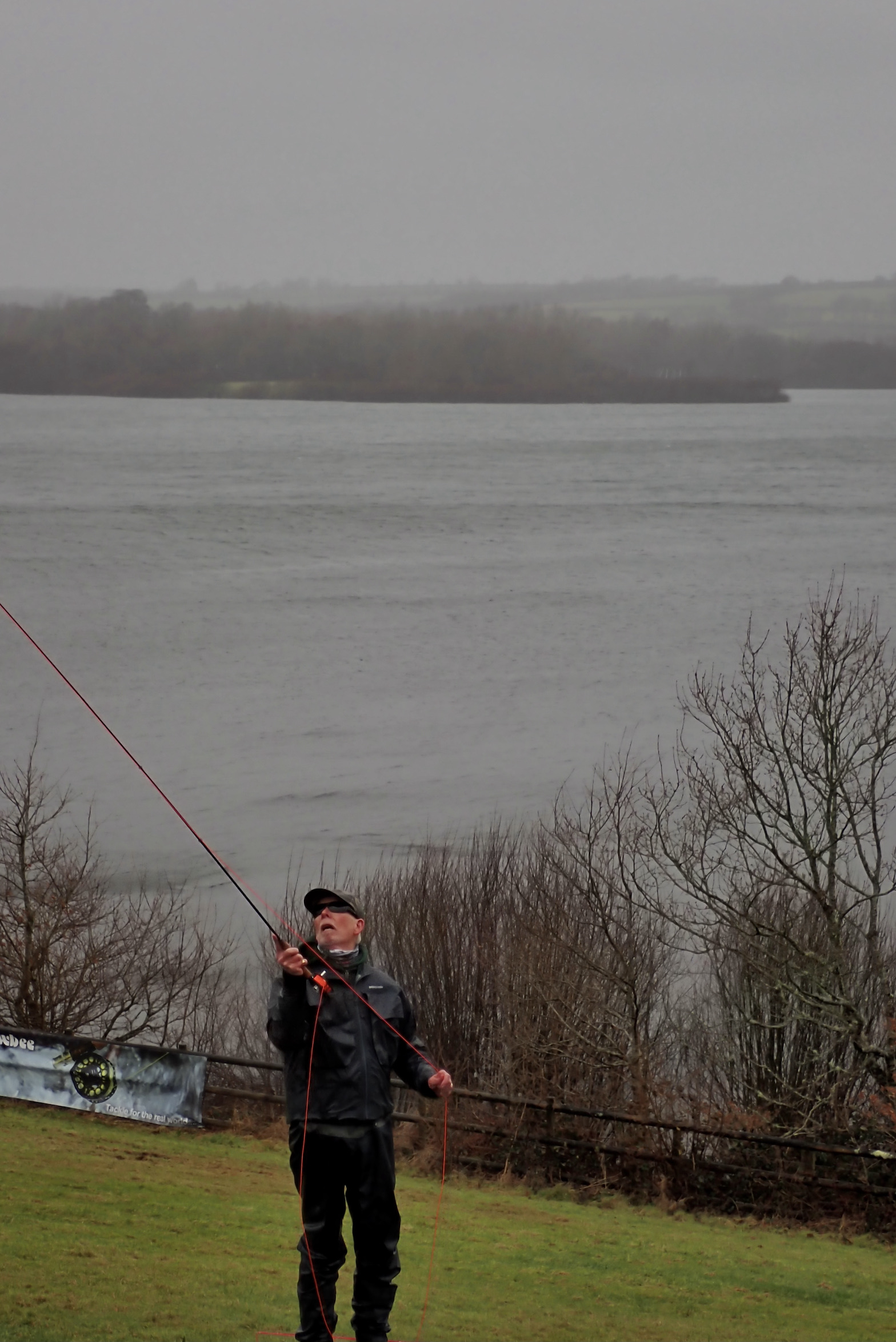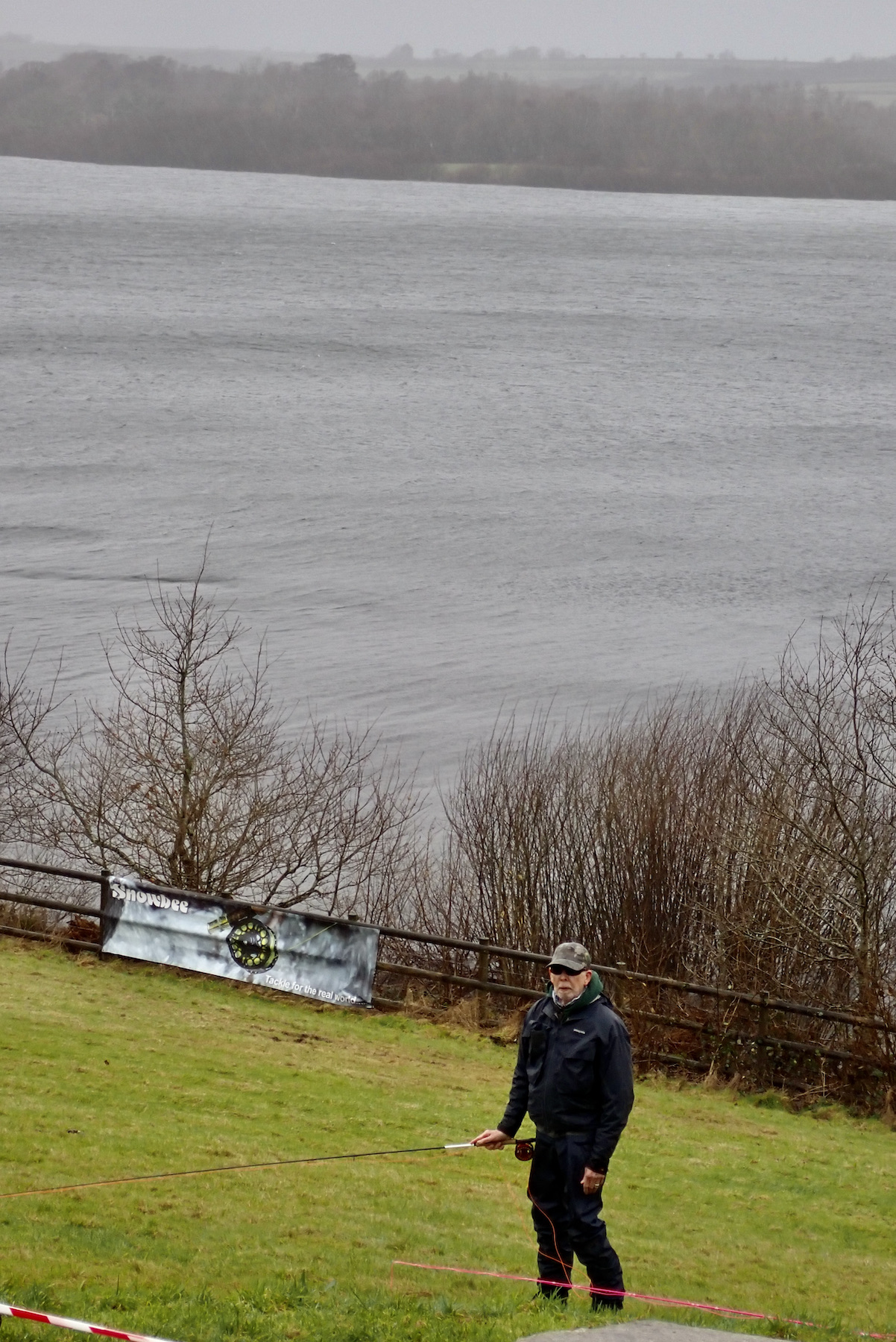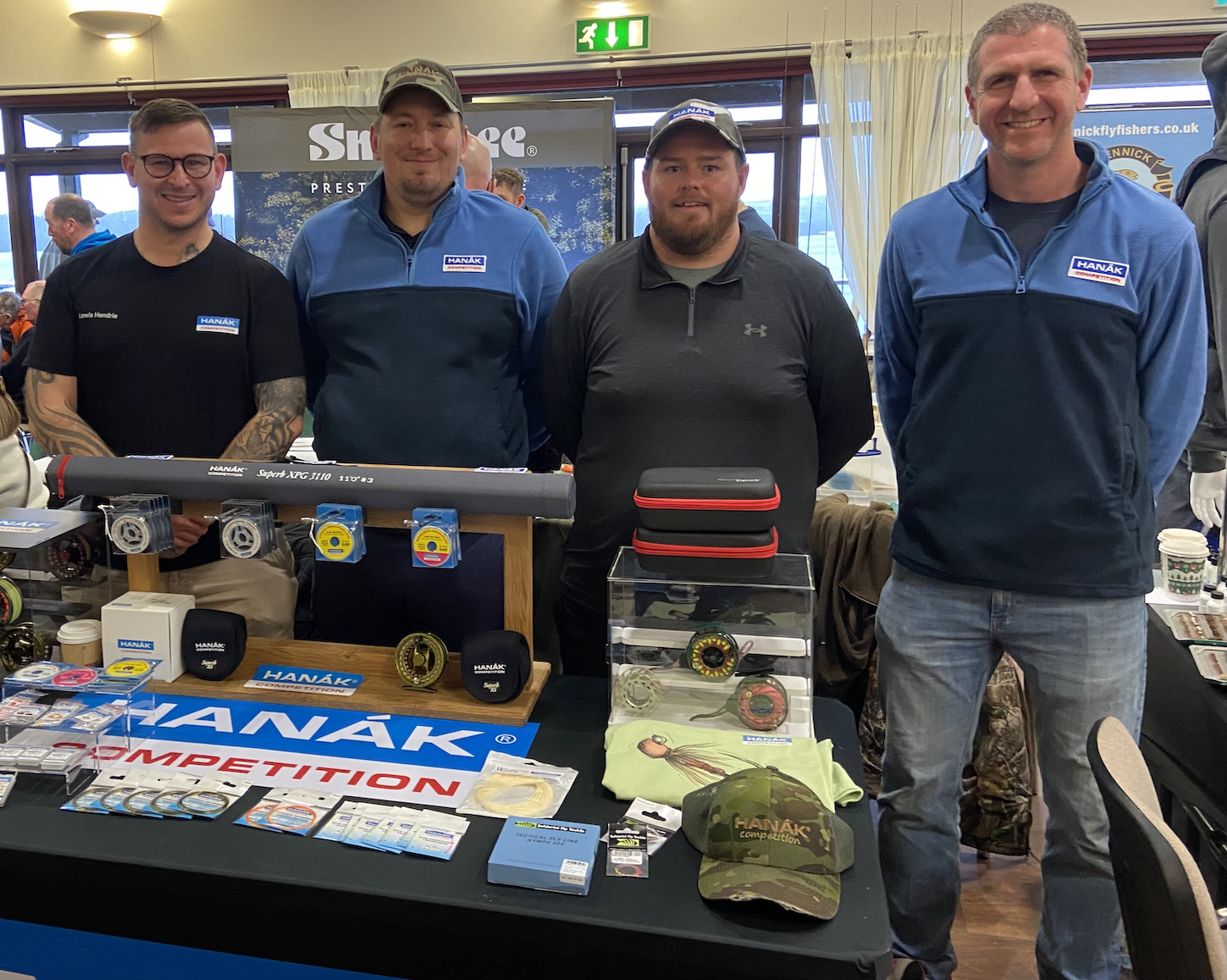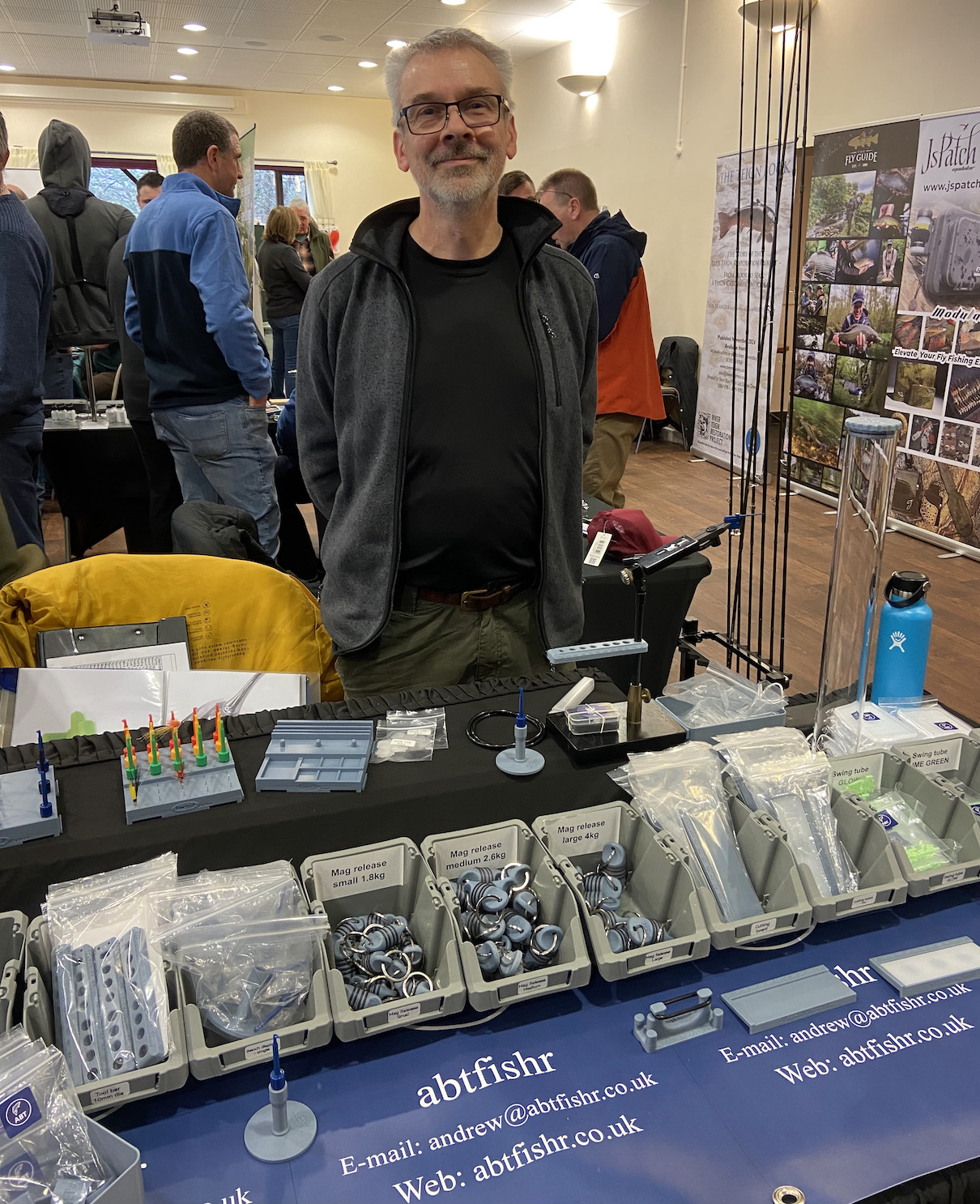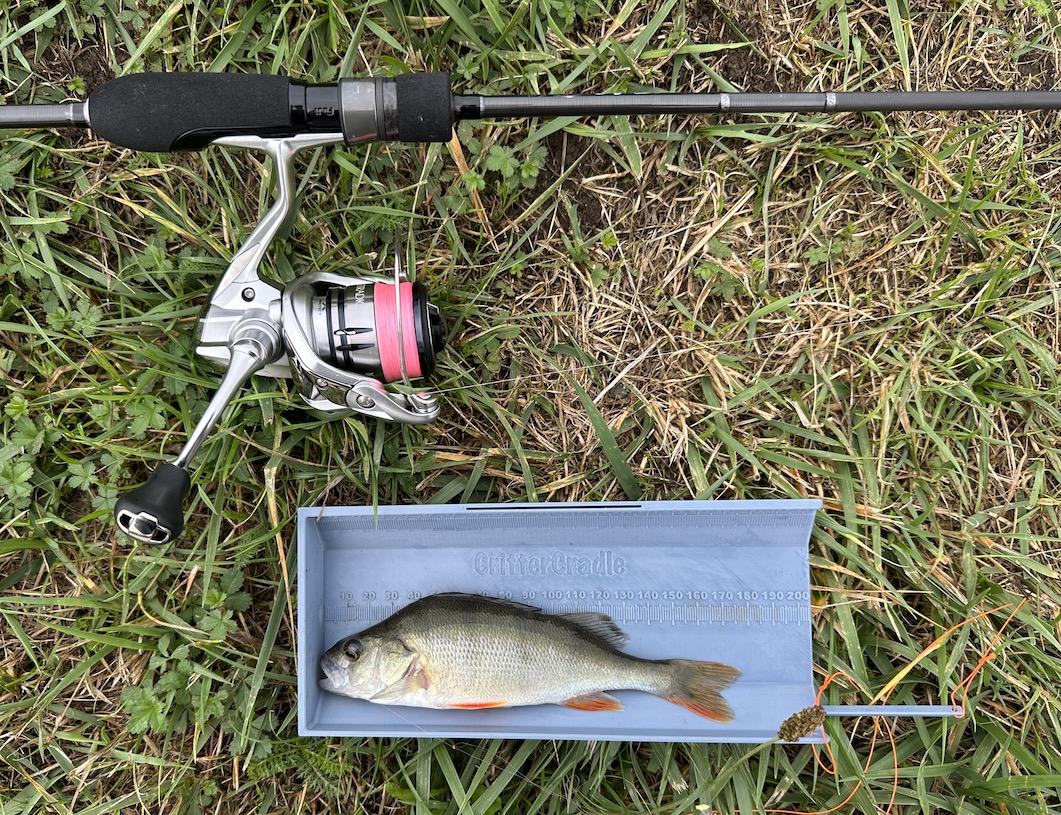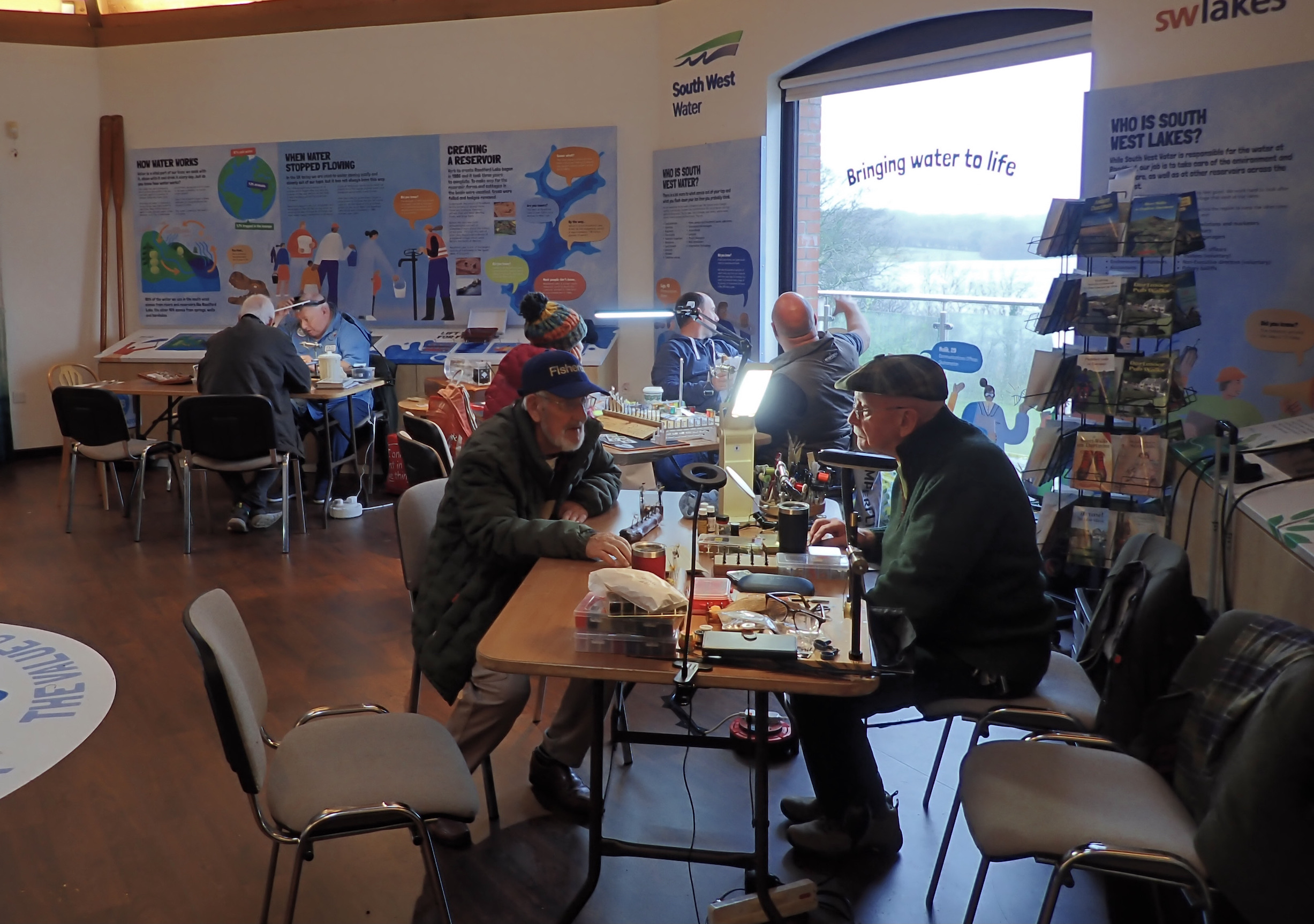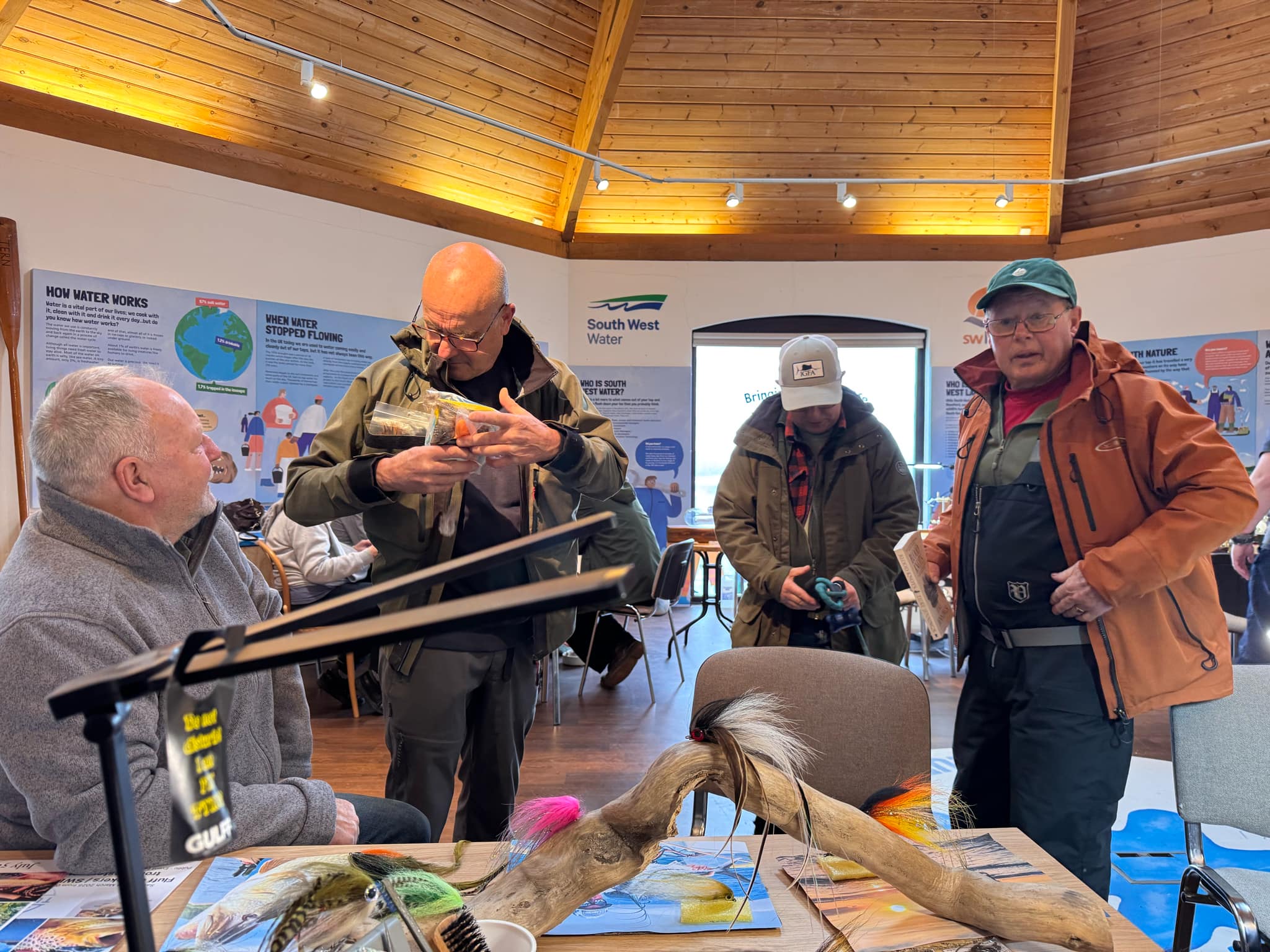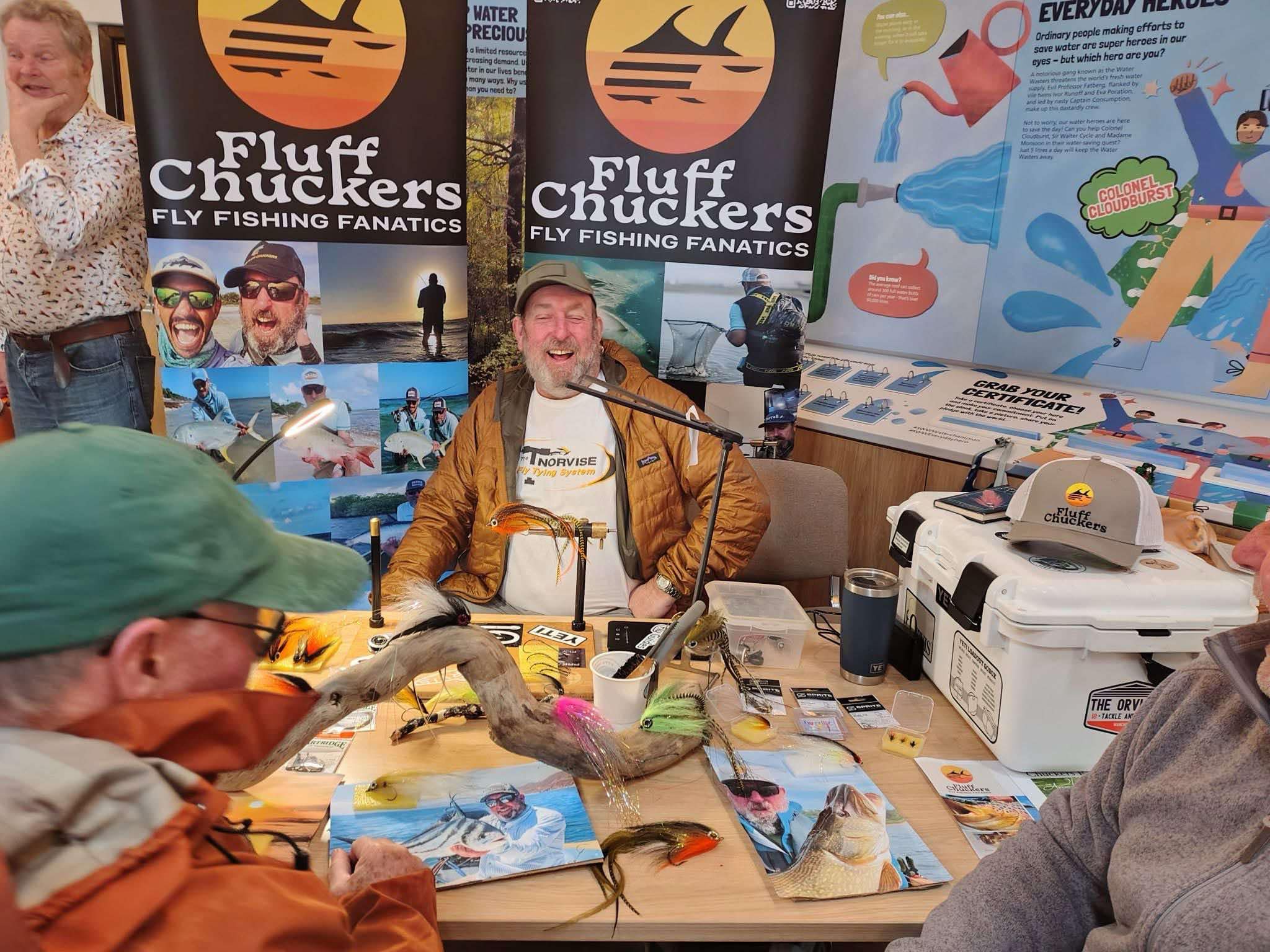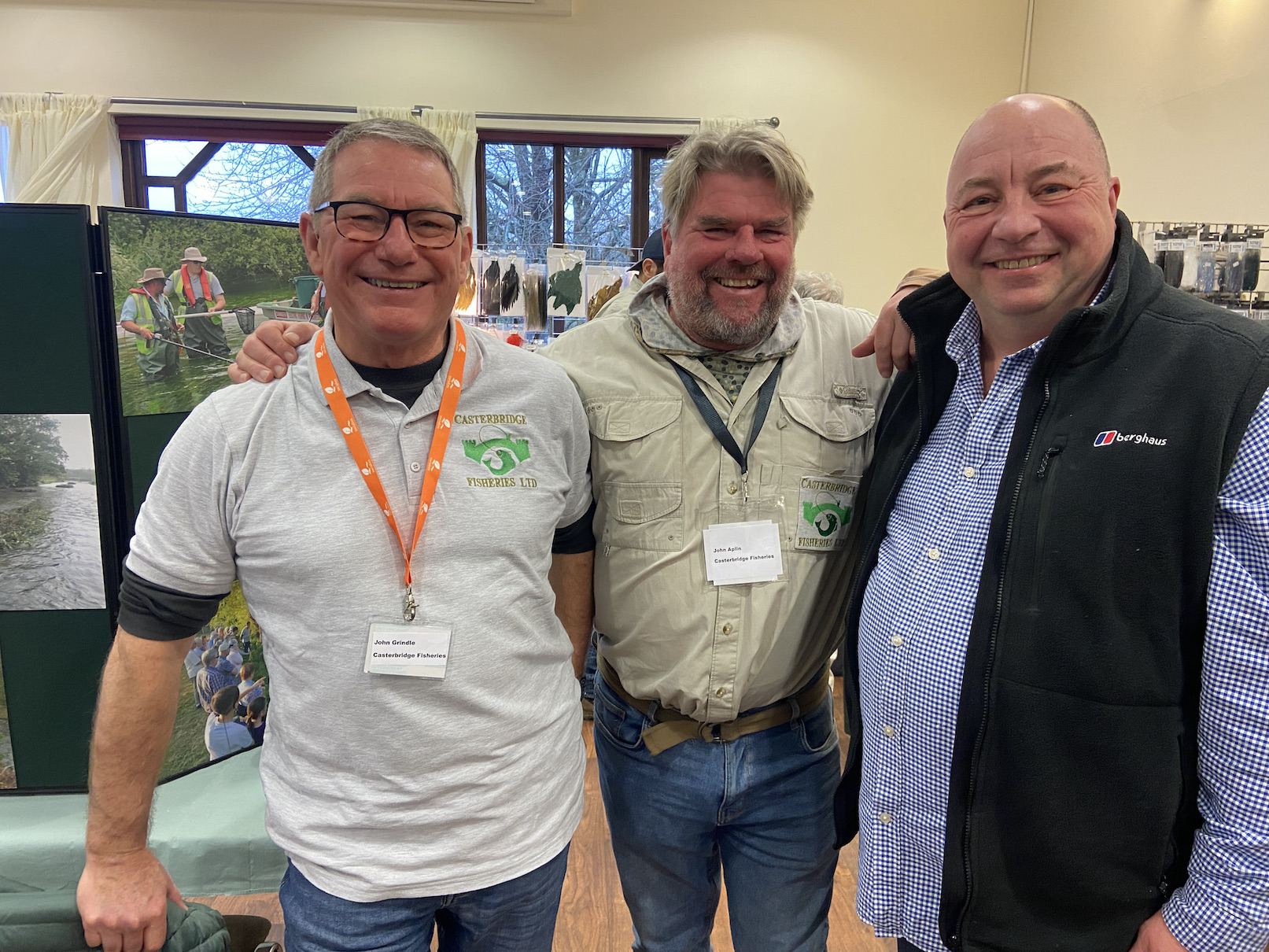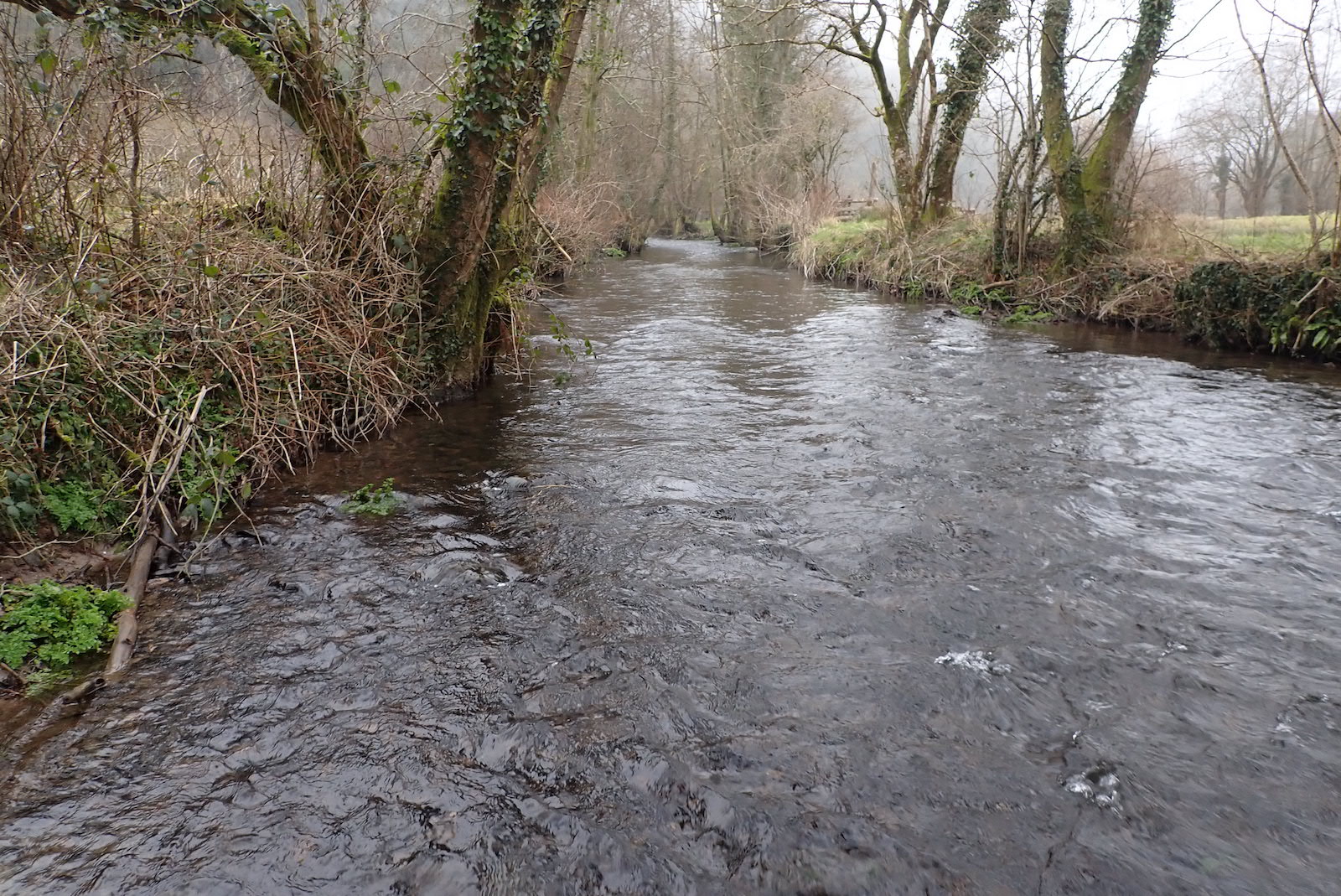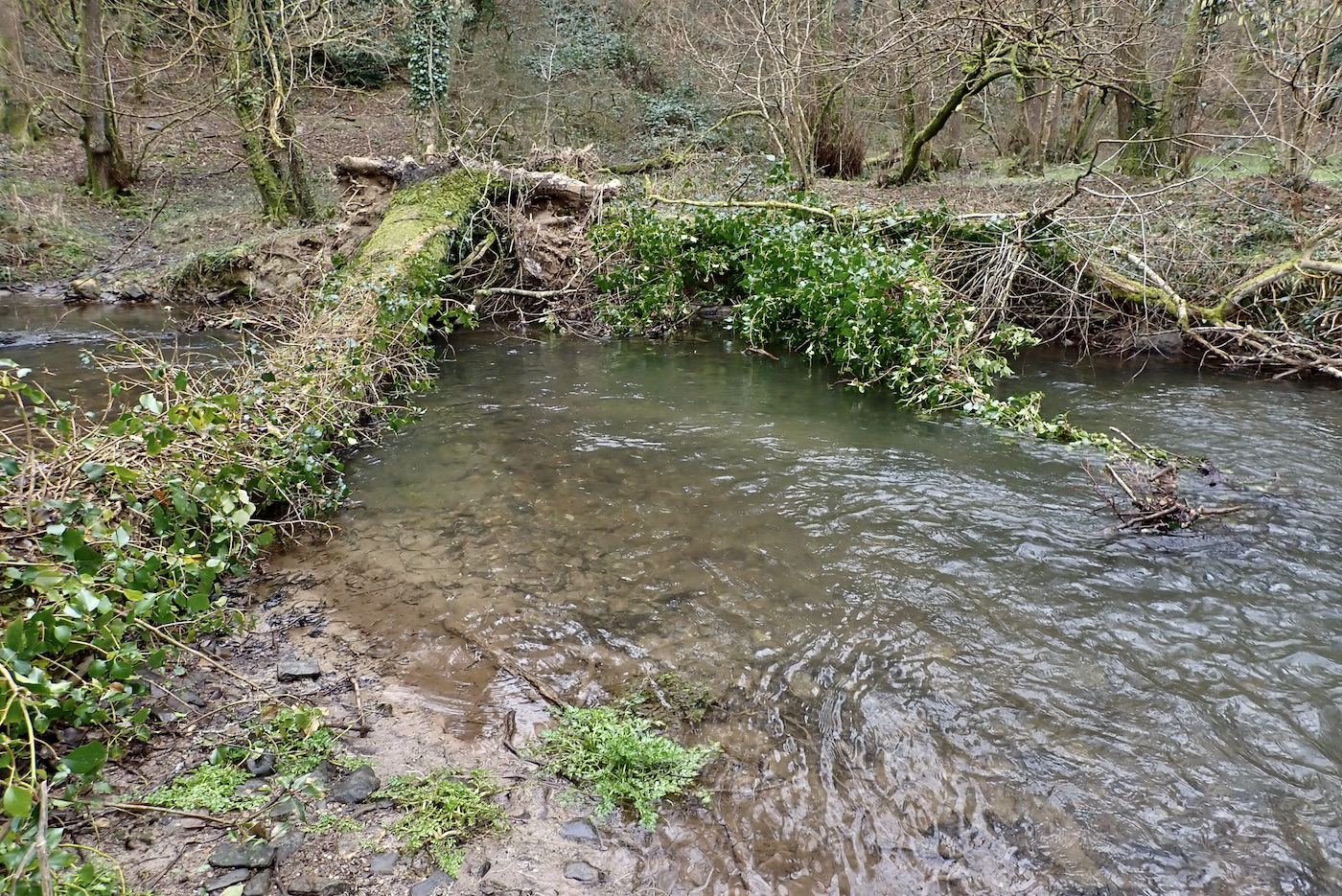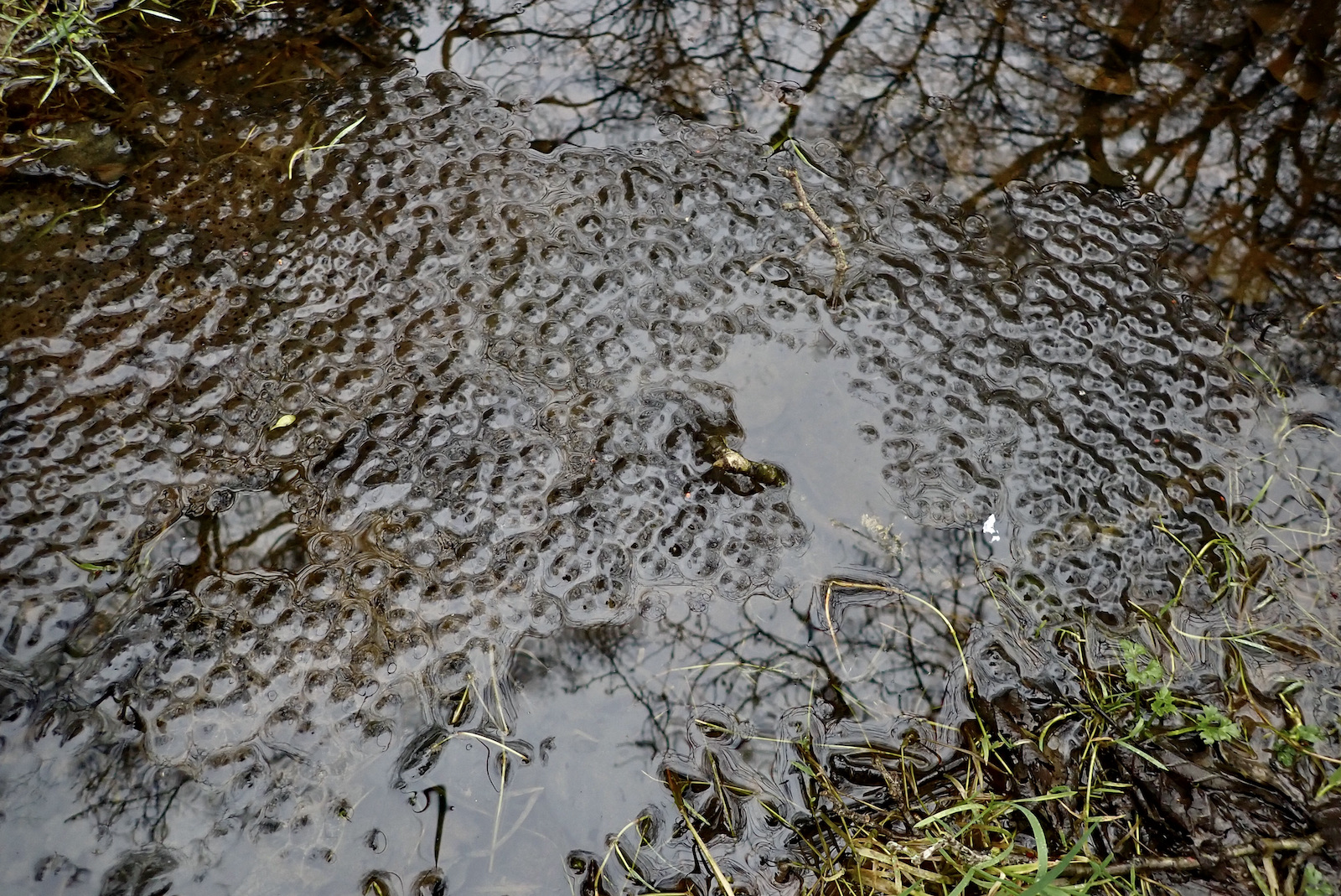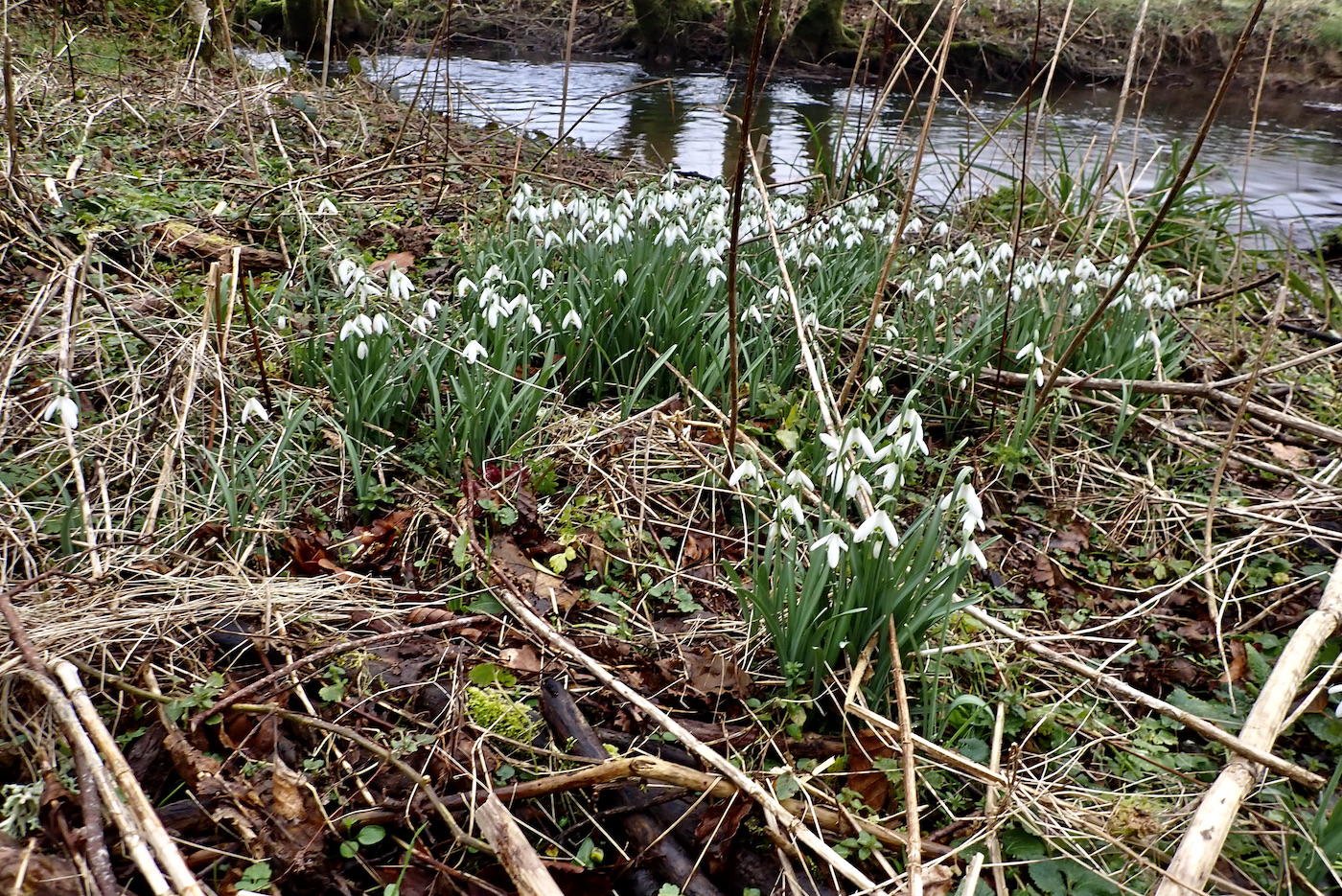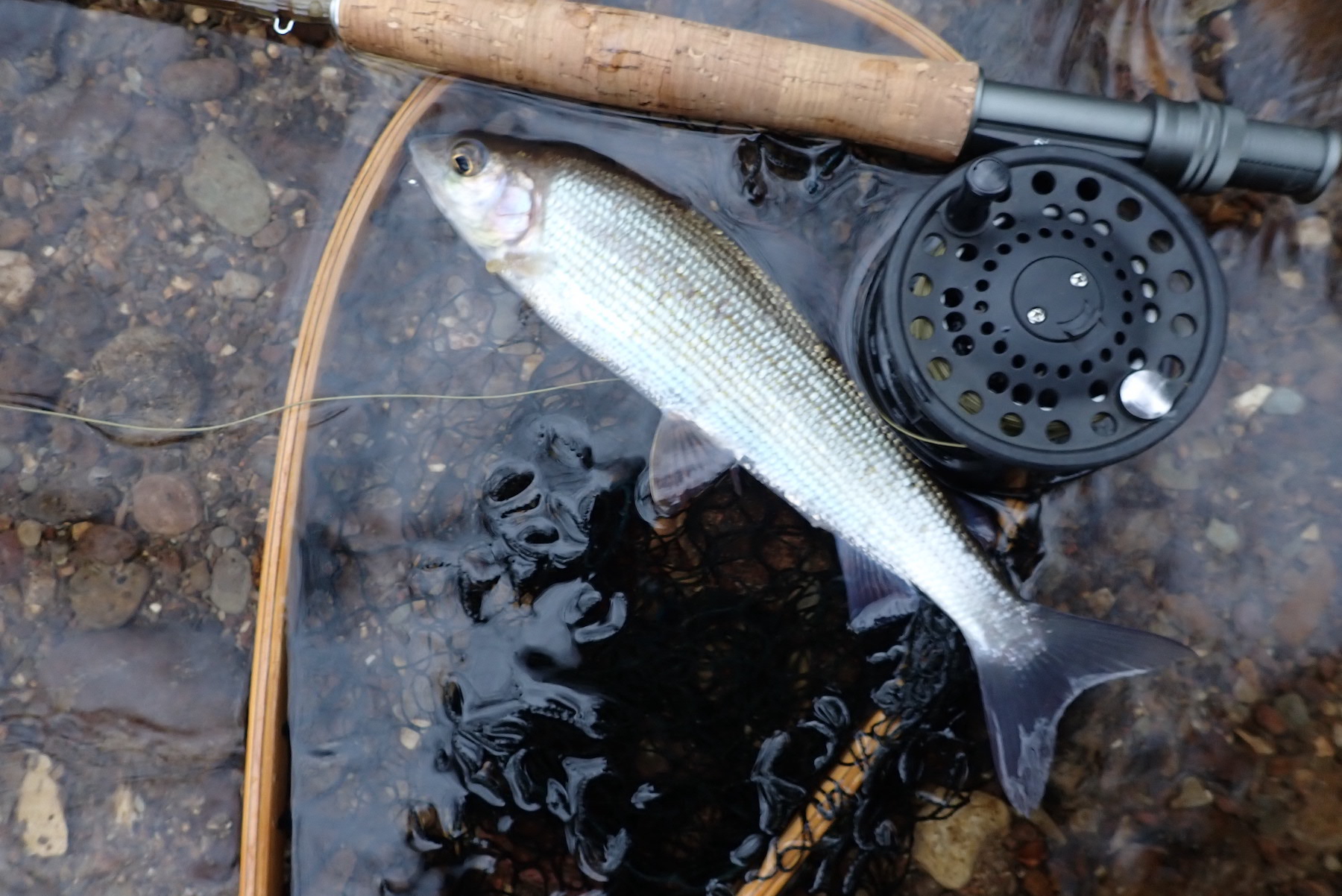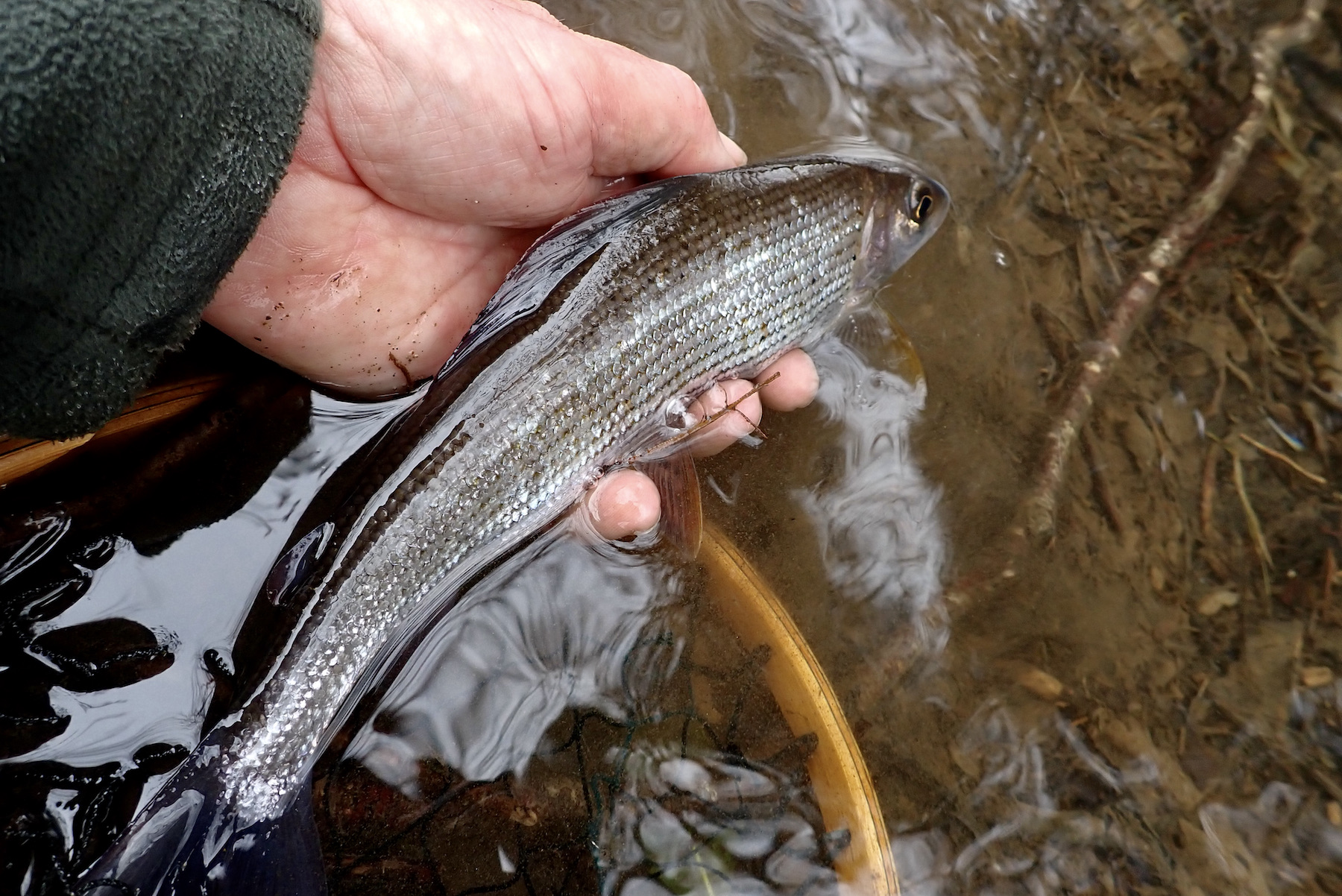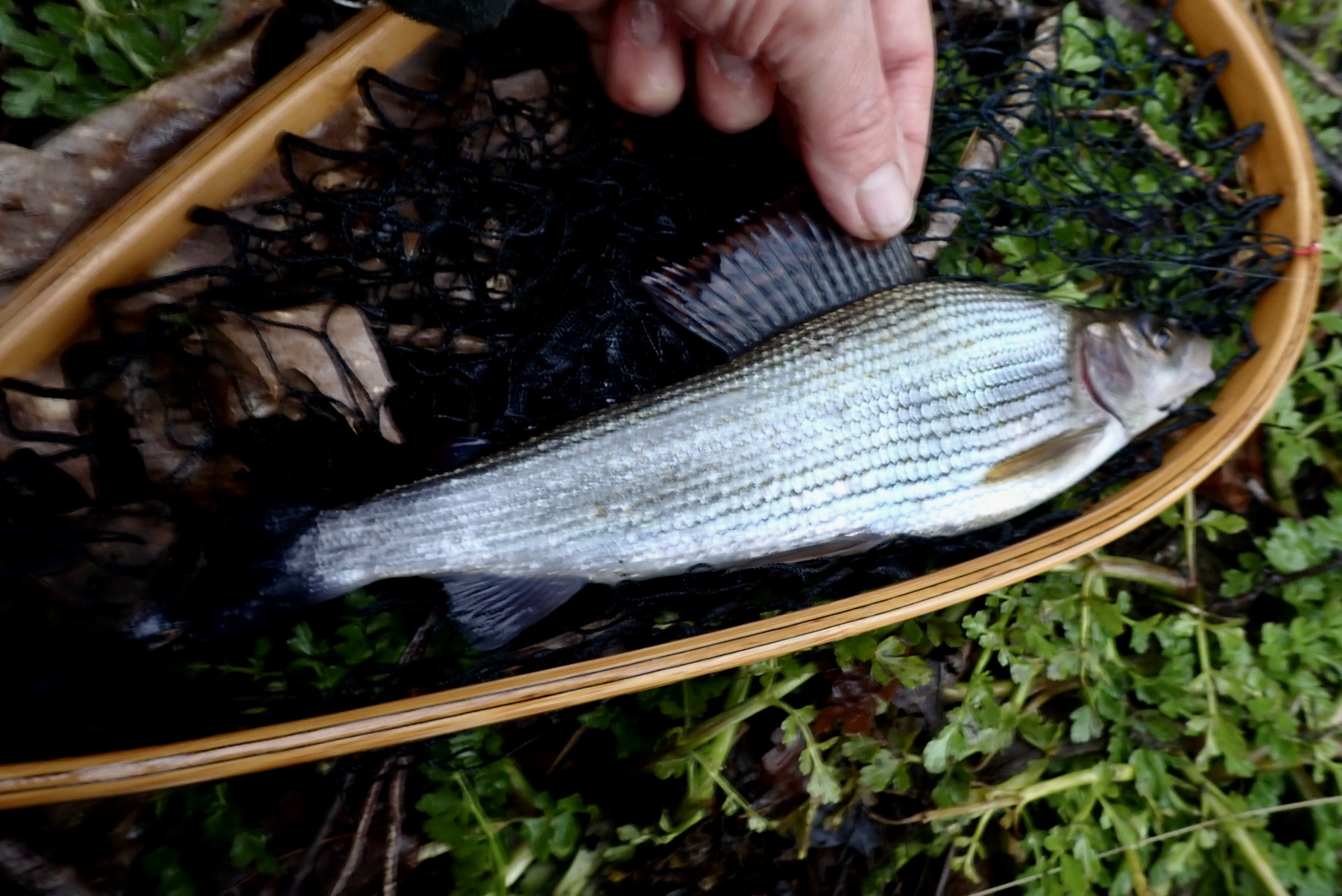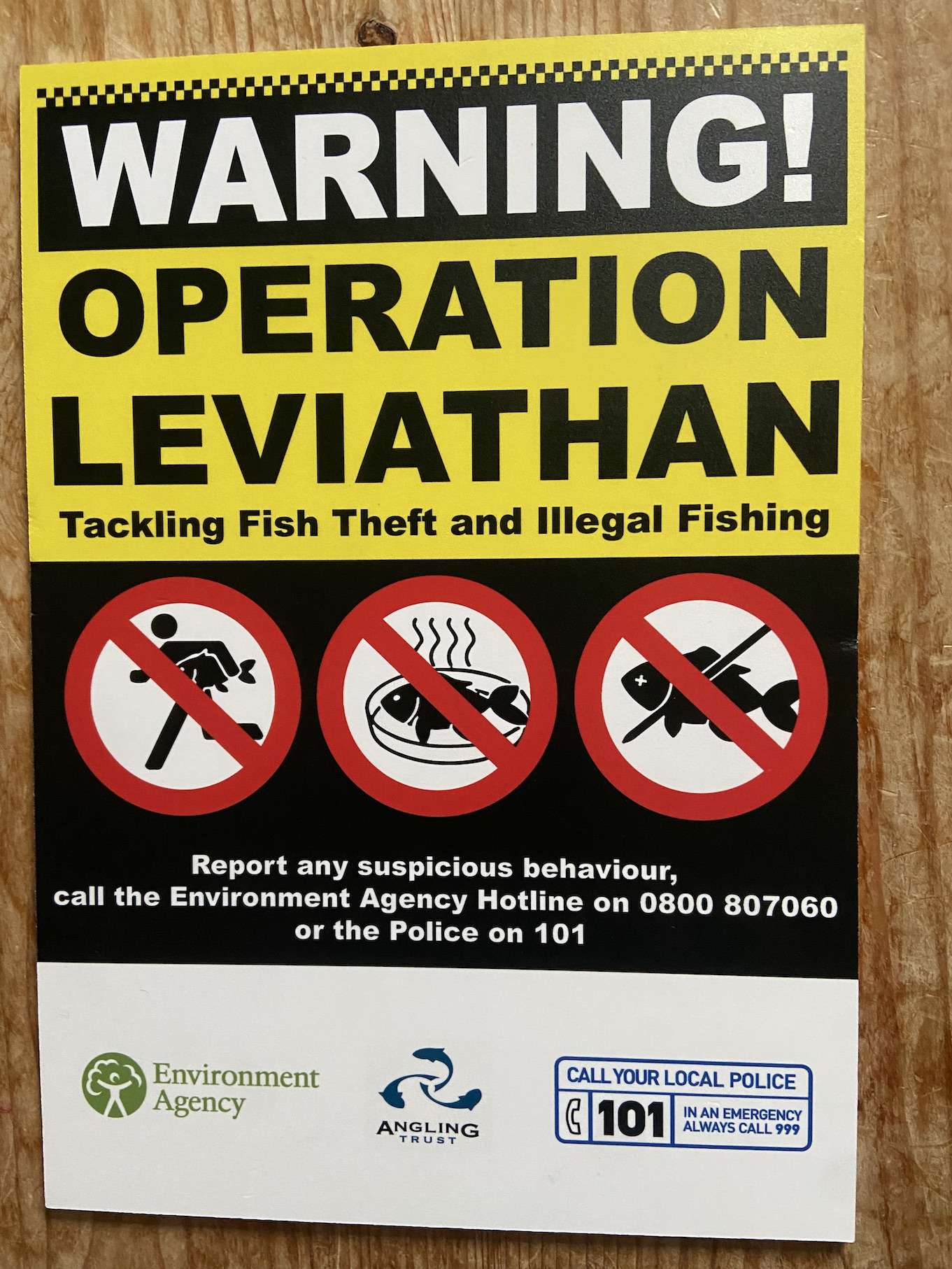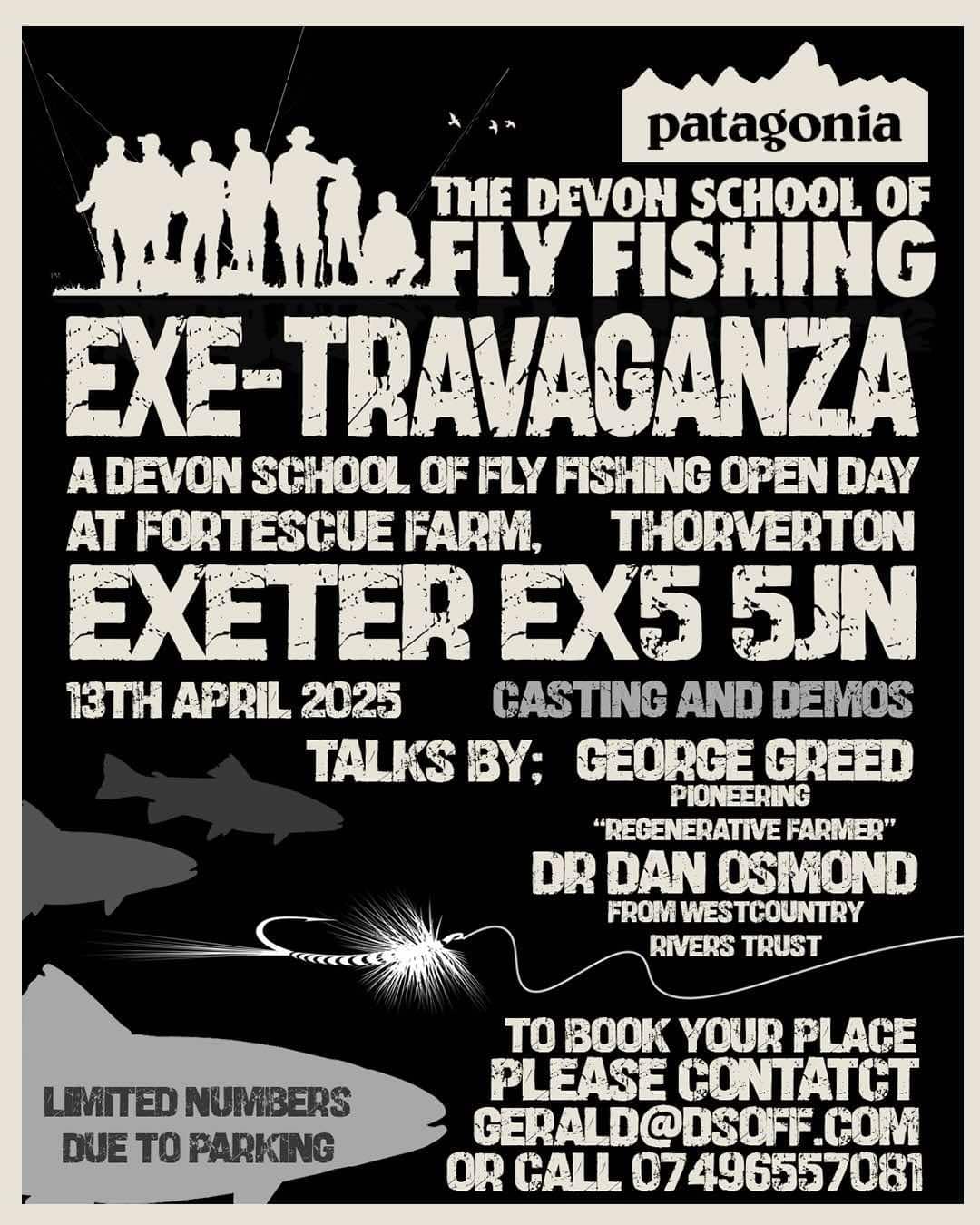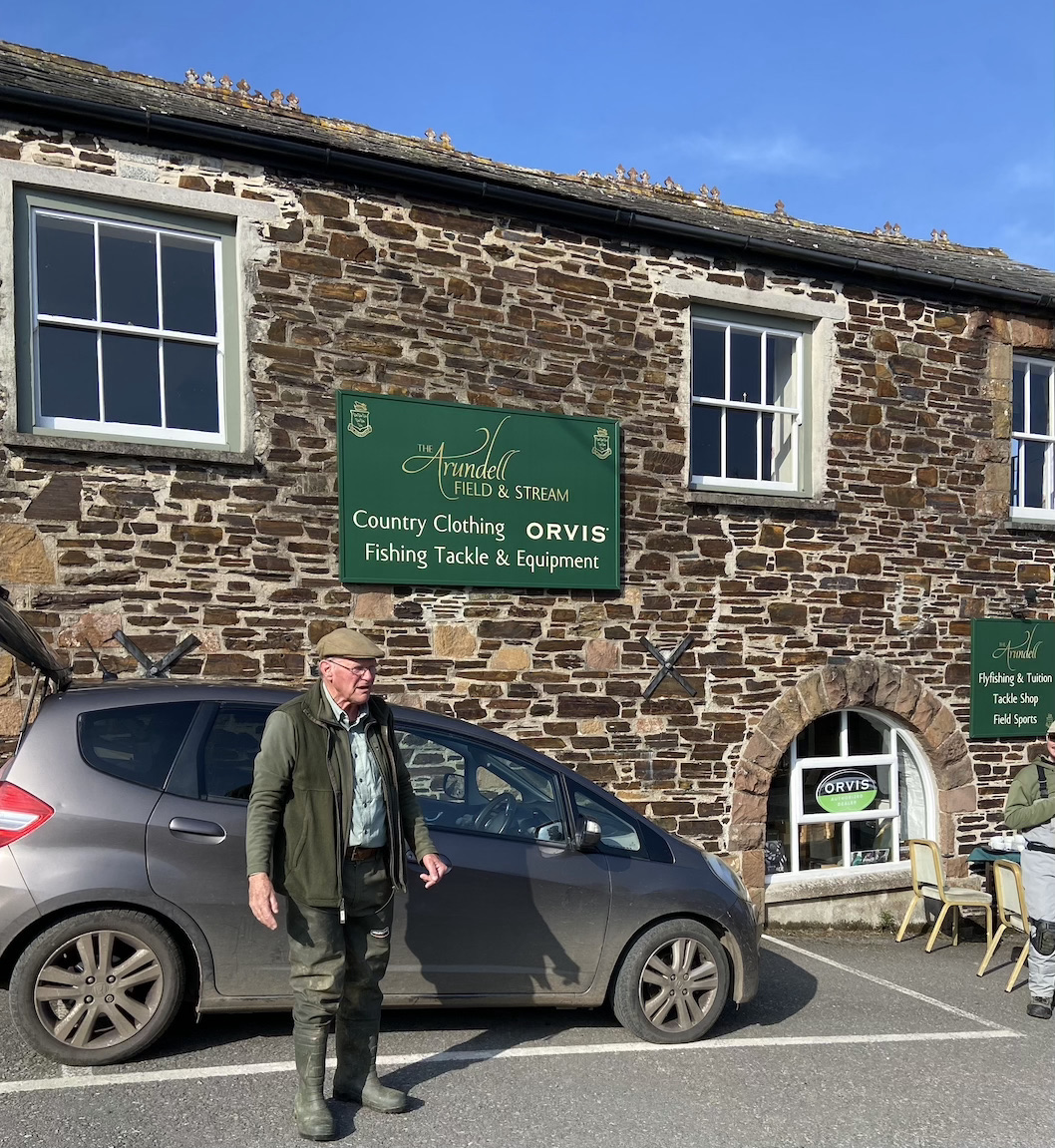
Meet in the tackle shop for complimentary tea, Coffees and a bacon roll followed by a day learning about fishing, fishing and then a film on the fish. All at one of the West Country’s most revered Country Hotels THE ARUNDELL located on the Devon Cornish Border. A great agenda for a day for sure, what’s not to like?.
Early March and grayling and nymph fishing tactics were top of the agenda. Though an early salmon from the River Torridge headed the early discussion as anglers from far and wide chatted over warm drinks. The tackle shop provided plenty of quality products for the fly angler and I took the opportunity to buy a few heavy nymphs as recommended by James Christoforou and Lewis Hendry. Our expert tutors for the morning session.
Spring sunshine soon cleared the early frost and mist from the rolling hills and valleys revealing a bright blue sky and roadsides brightened with yellow daffodils and primroses.
Close to twenty anglers were booked into the mornings tutorial on Euro Nymphing tactics and after a lengthy time of chatting and mingling we head for the river some of us enjoying a pleasant stroll the river situated half a mile from the hotel whilst others jumped into cars and Landrover’s.
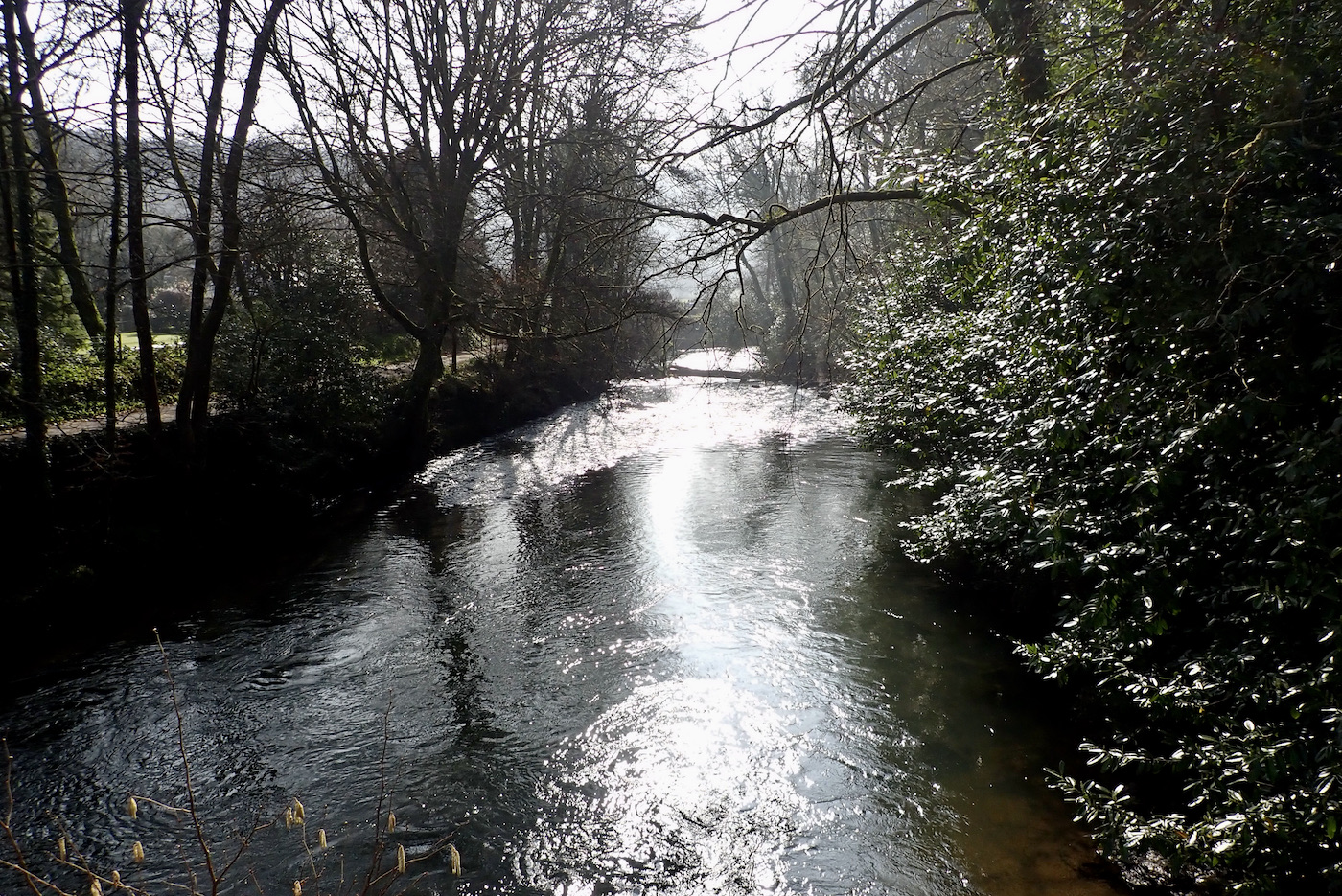
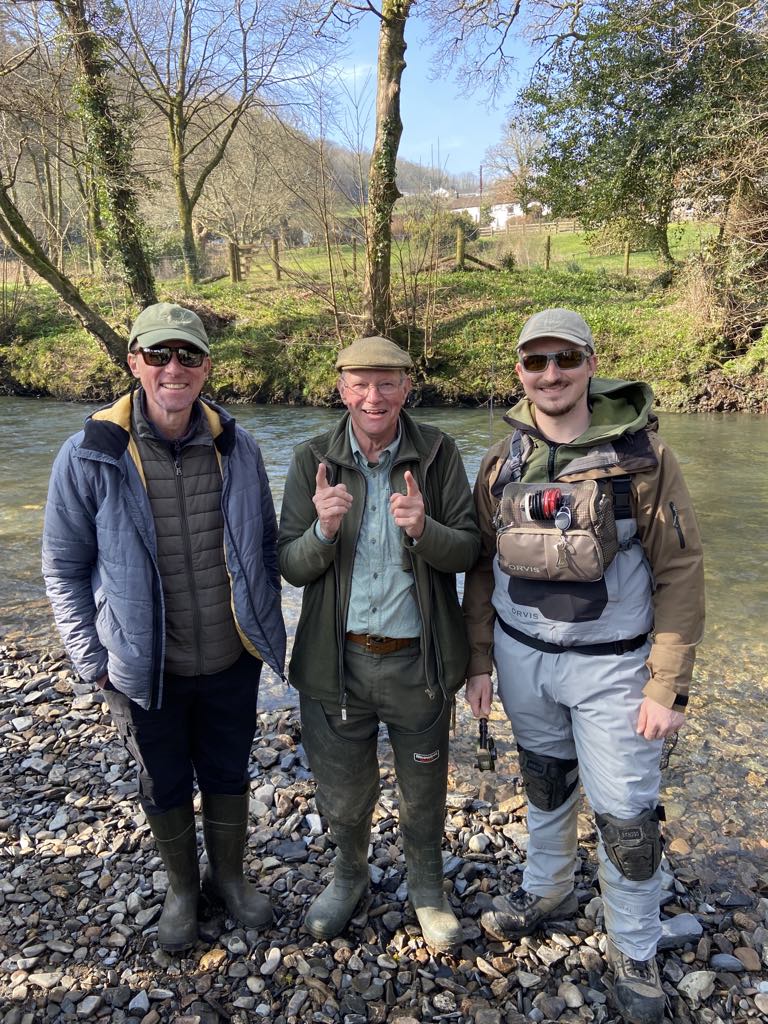
We all gathered beside the River Lyd that was looking in fine trim; its clear water glistening in the bright morning light. The Arundell team was headed by James Christoforou accompanied by fly fishing guru Lewis Hendrie and long-time Arundell stalwart and much respected David Pilkington.
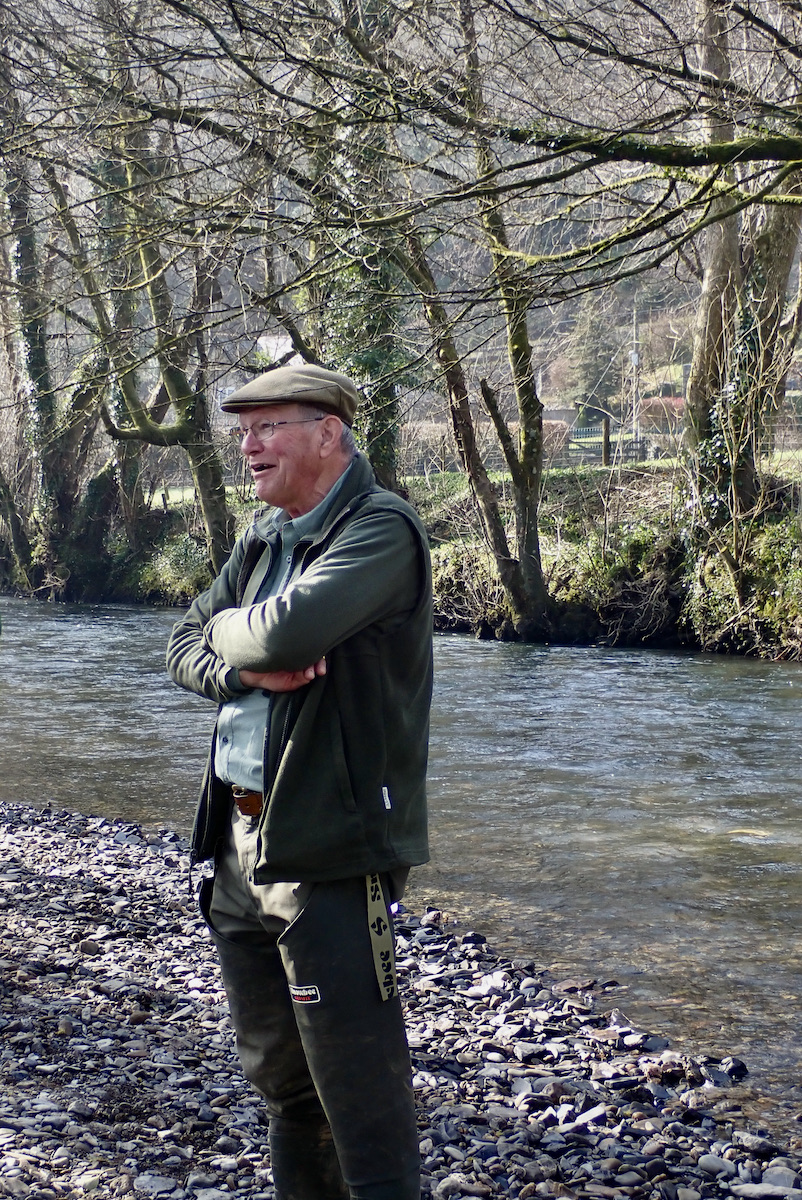
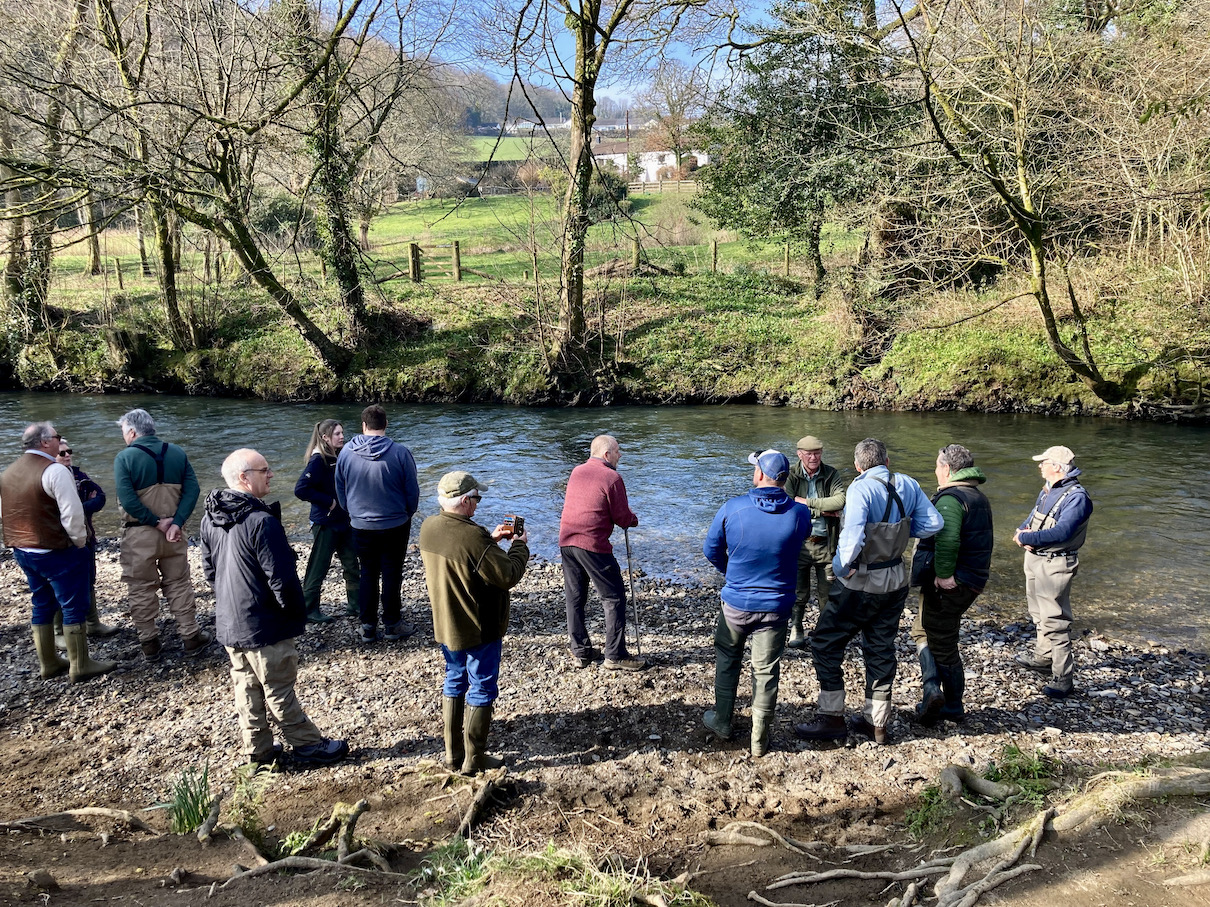
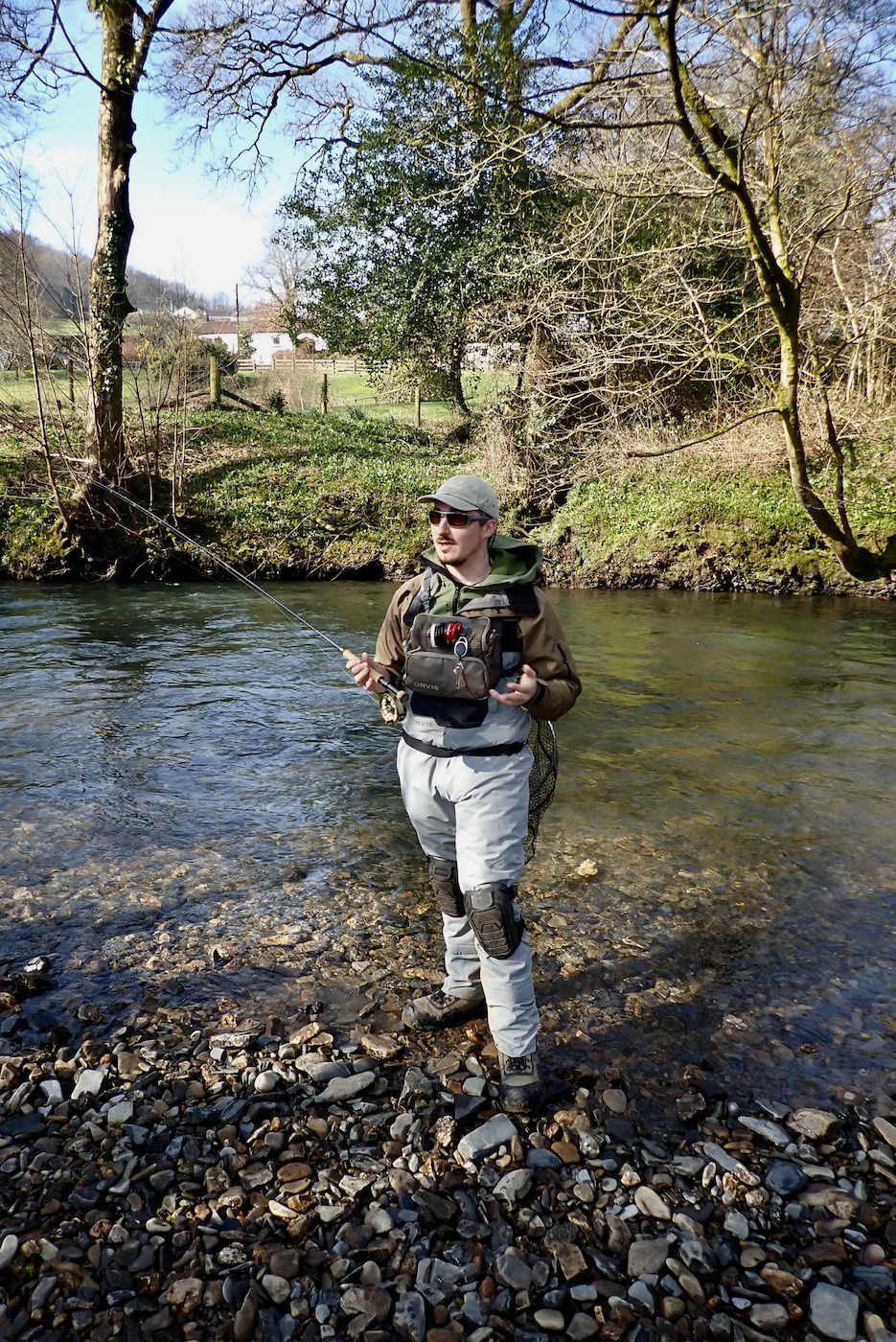
James waded out into the clear waters and started to explain the basics of modern Euro Nymphing. It was explained that Euro Nymphing is a phrase coined to describe a range of nymphing tactics created primarily by anglers from Poland, Czechoslovakia and France. The technique basically embraces the use of long light rods paired with a very light line and heavy nymphs that are propelled into the river using their weight instead of the line as is the case with traditional fly fishing.
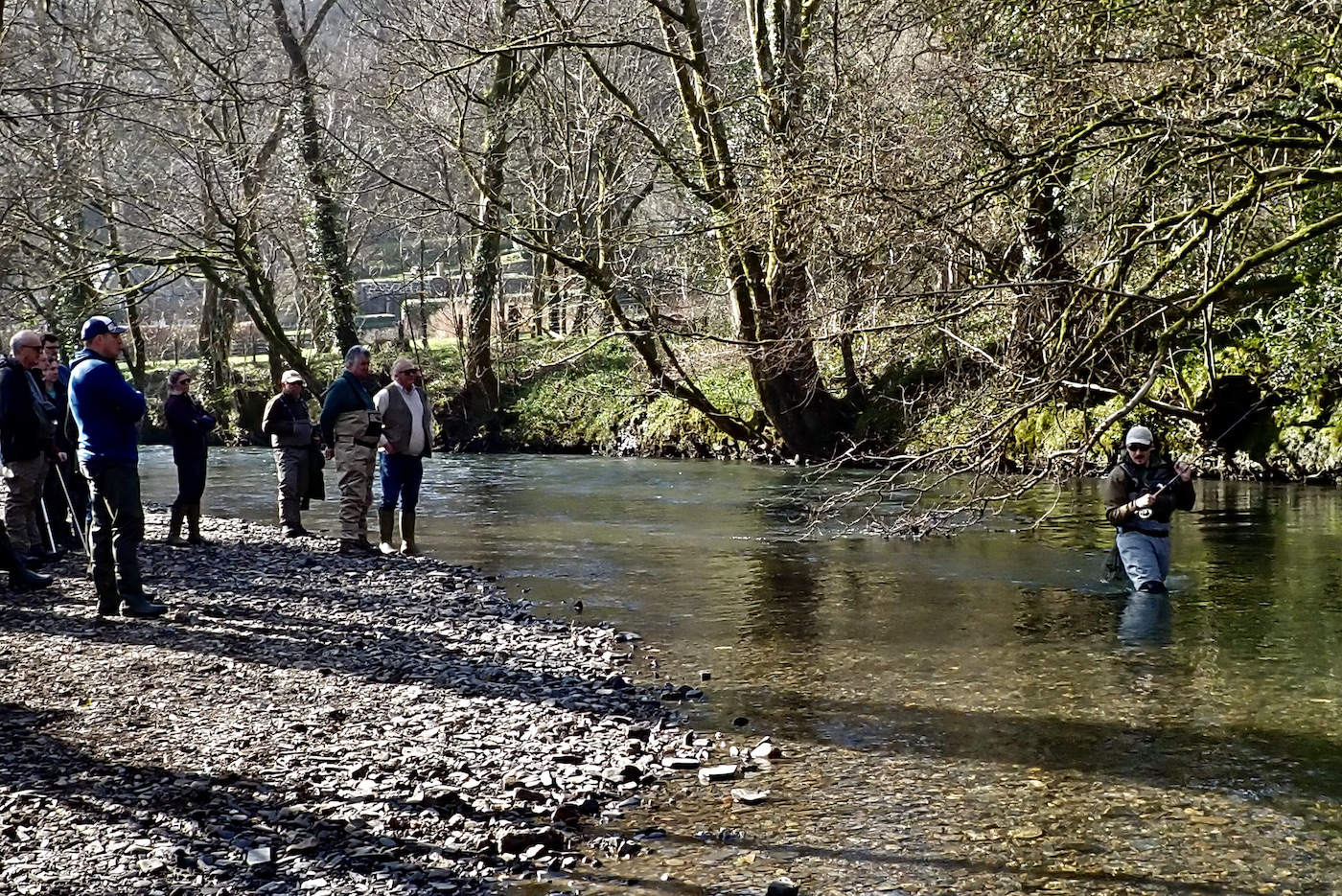
The approach to the river is vital if success is to be enjoyed the first objective being to get close to the fish without alerting them. Slow and low was the motto; a useful tip being to use knee protectors available from builders merchants to protect those knees and expensive waders from wear tear, brambles and barbed wire.
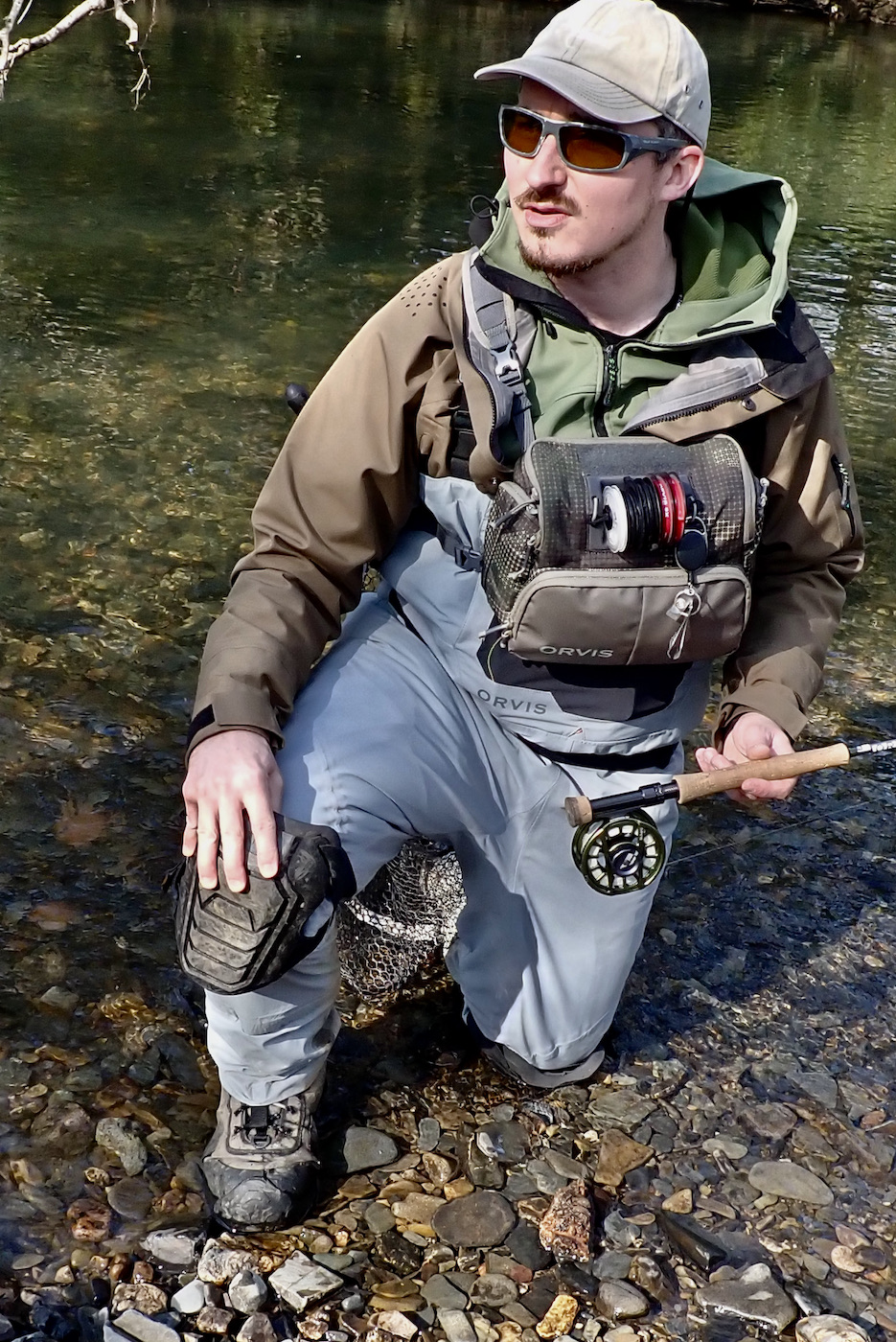
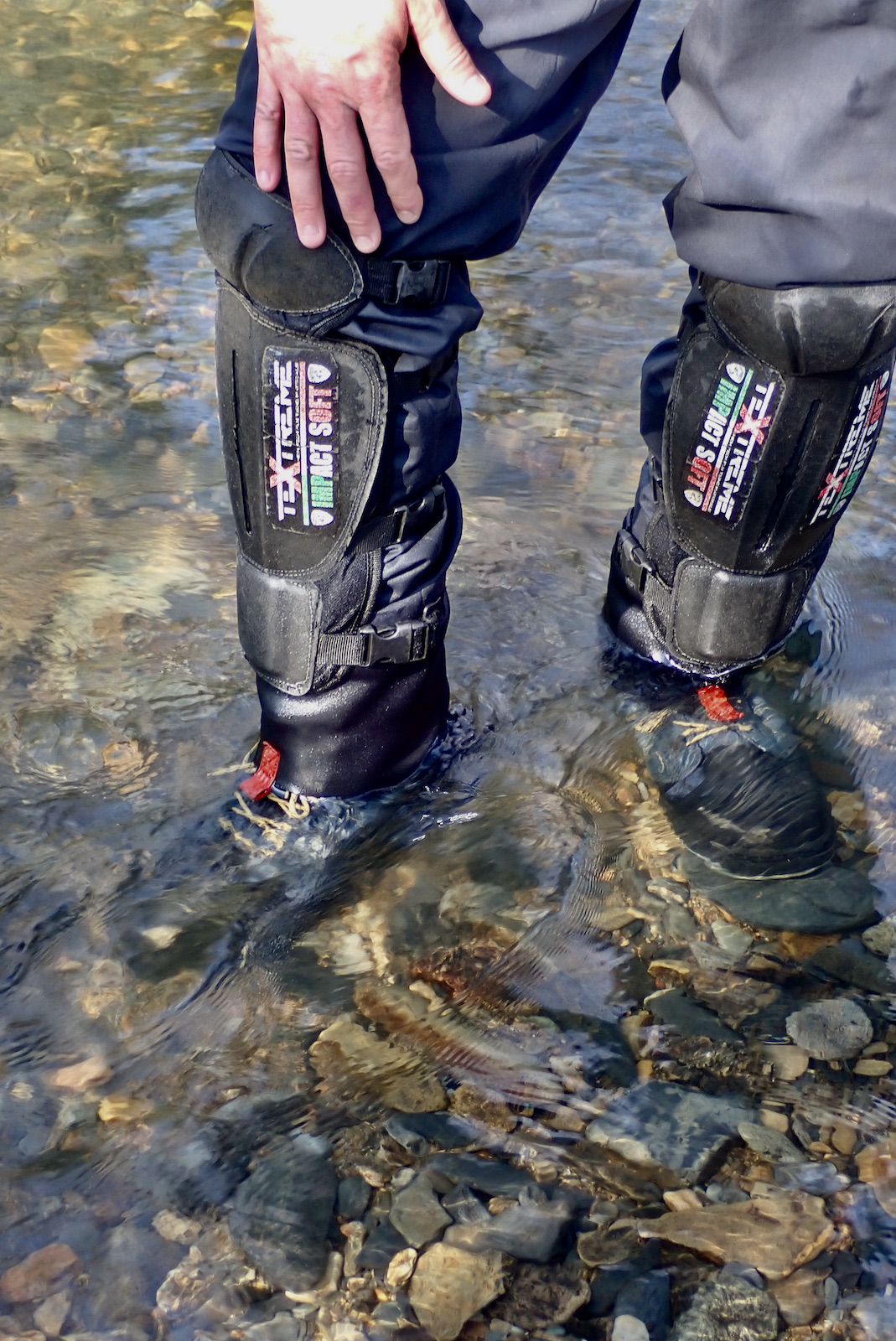
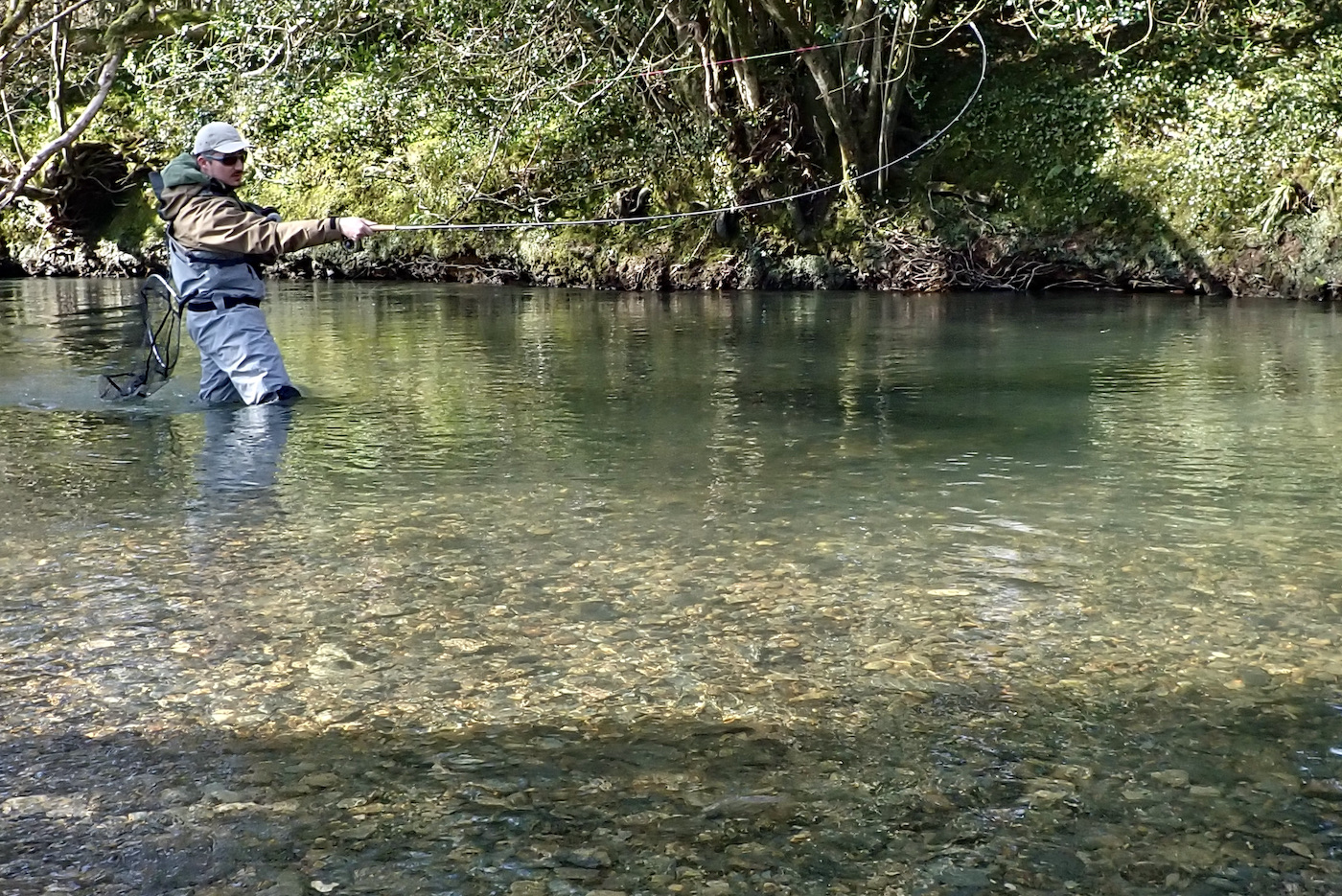
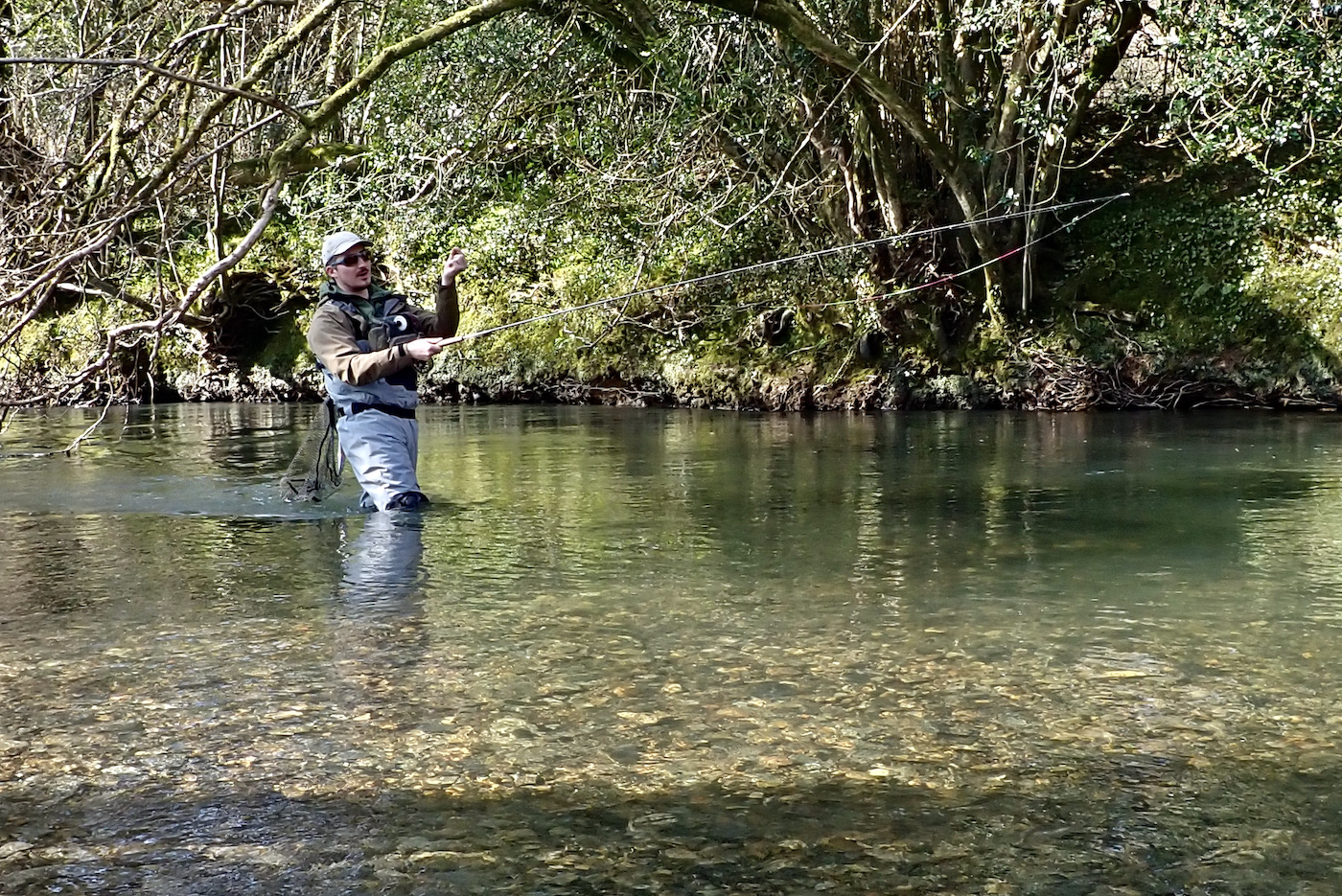
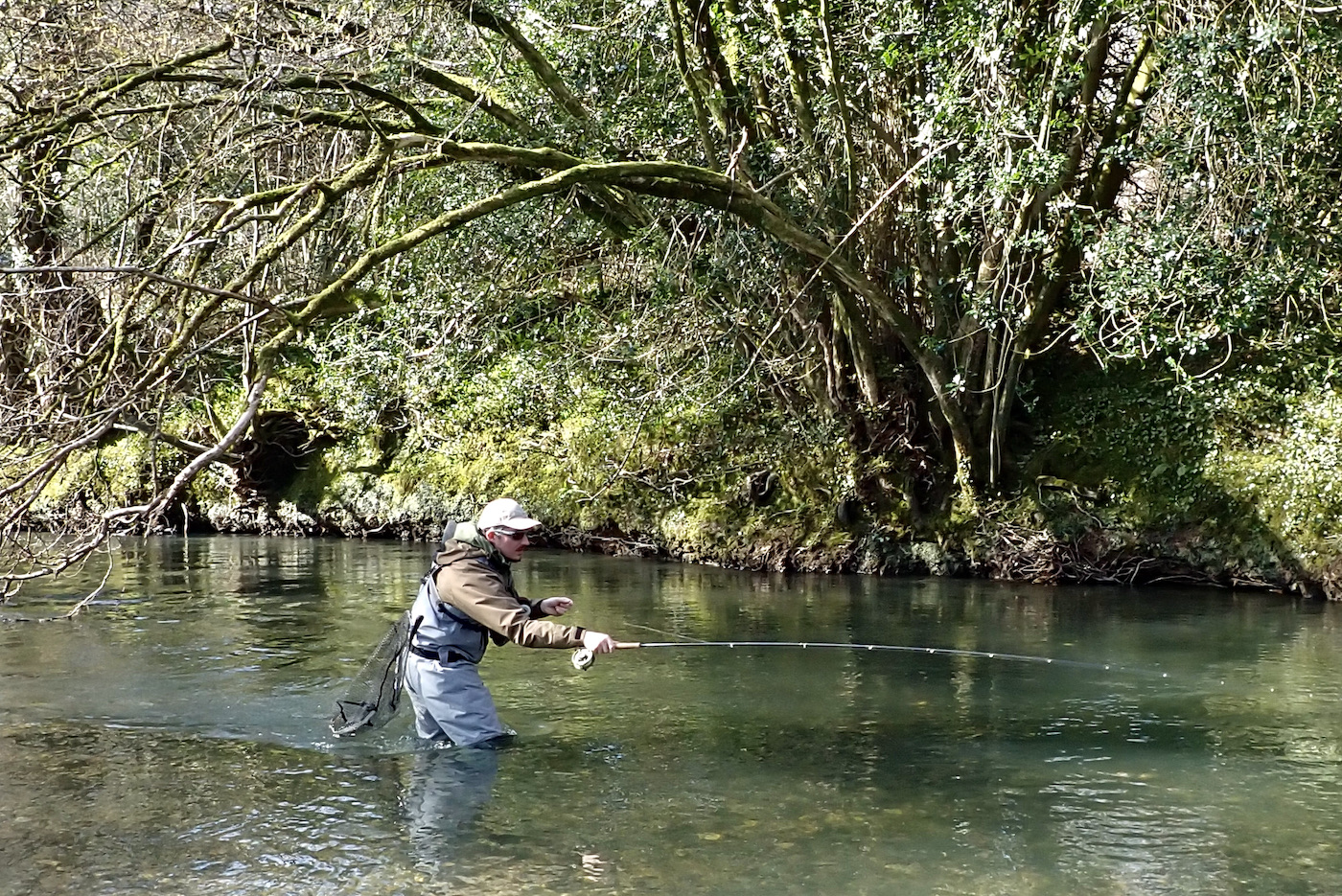
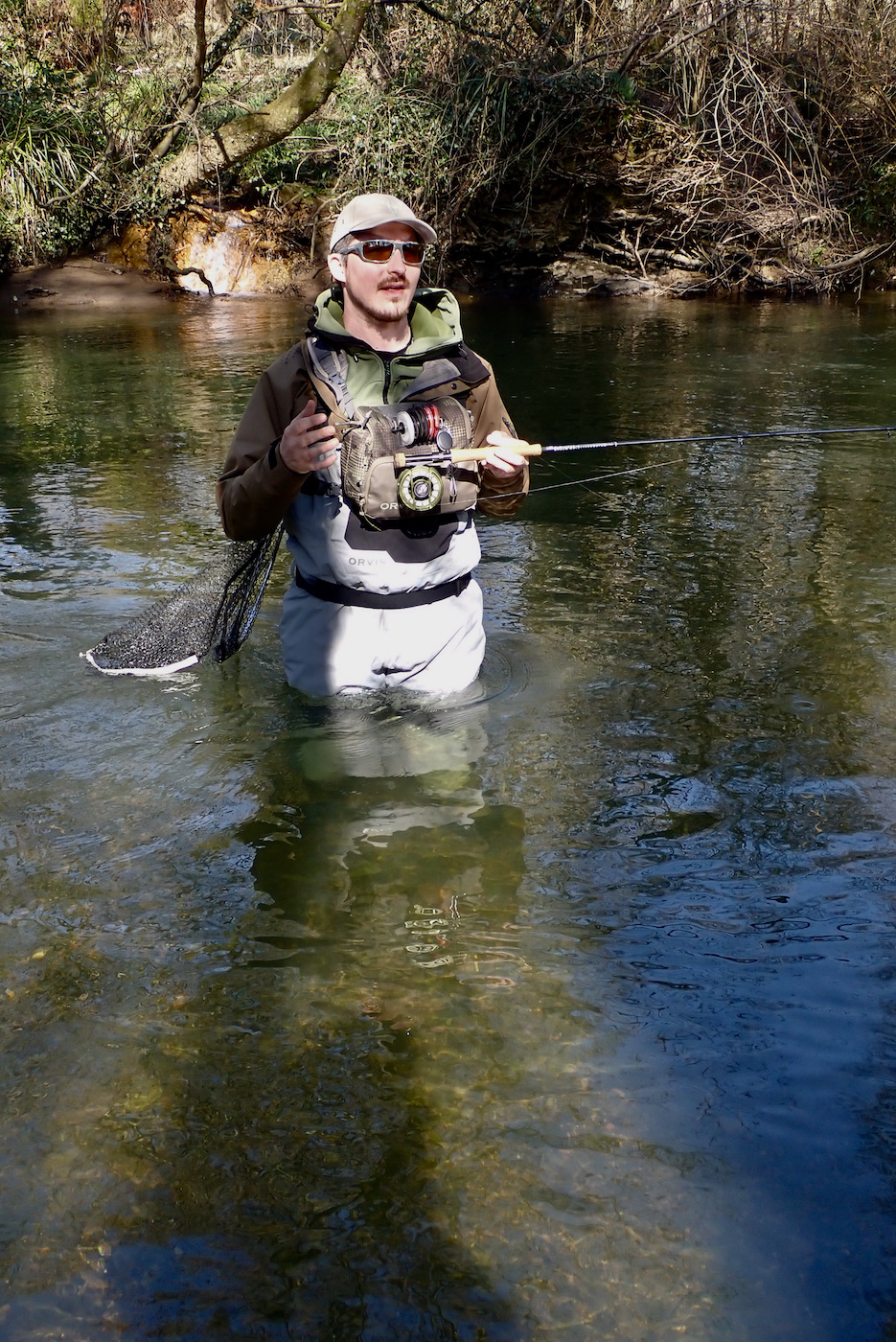
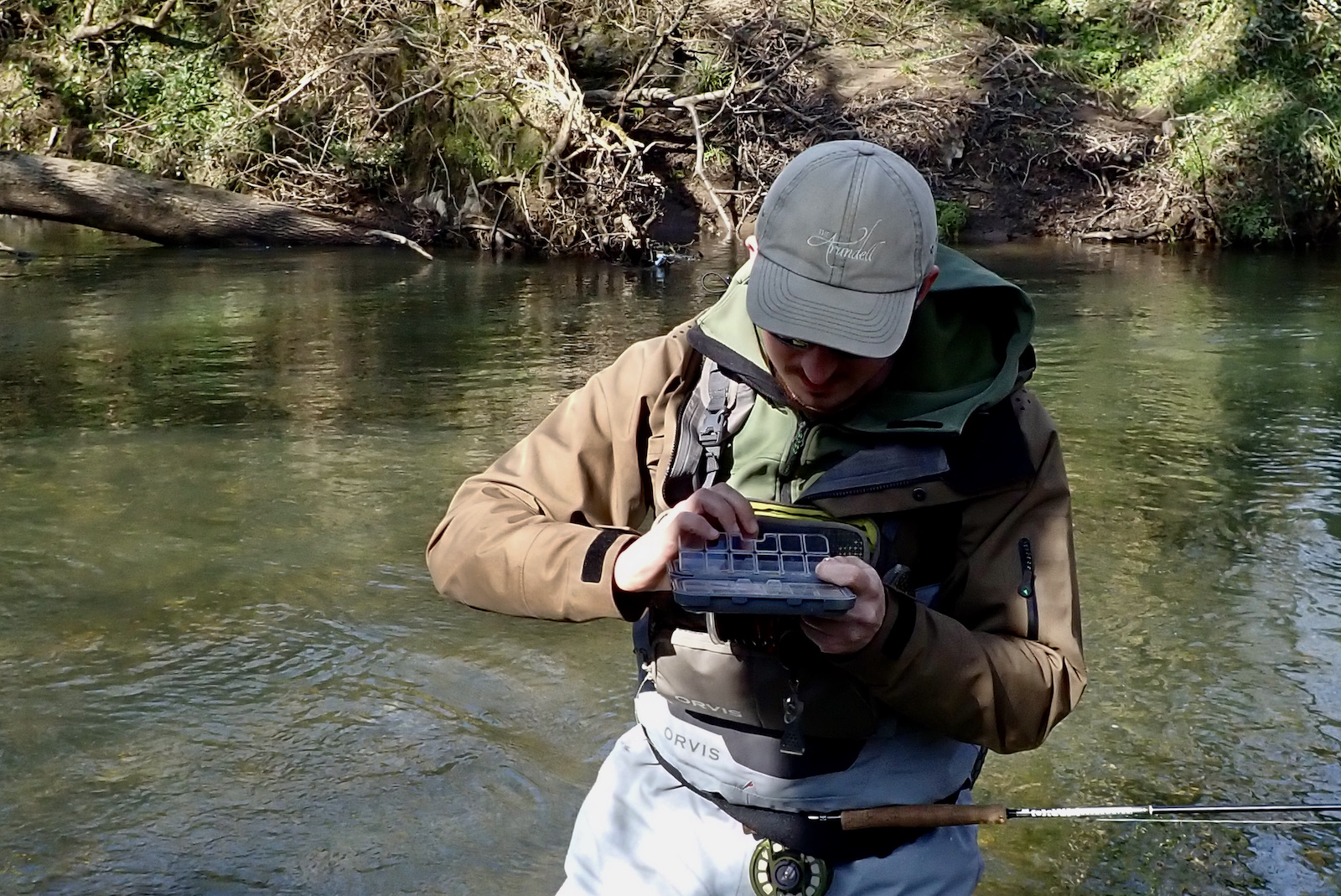
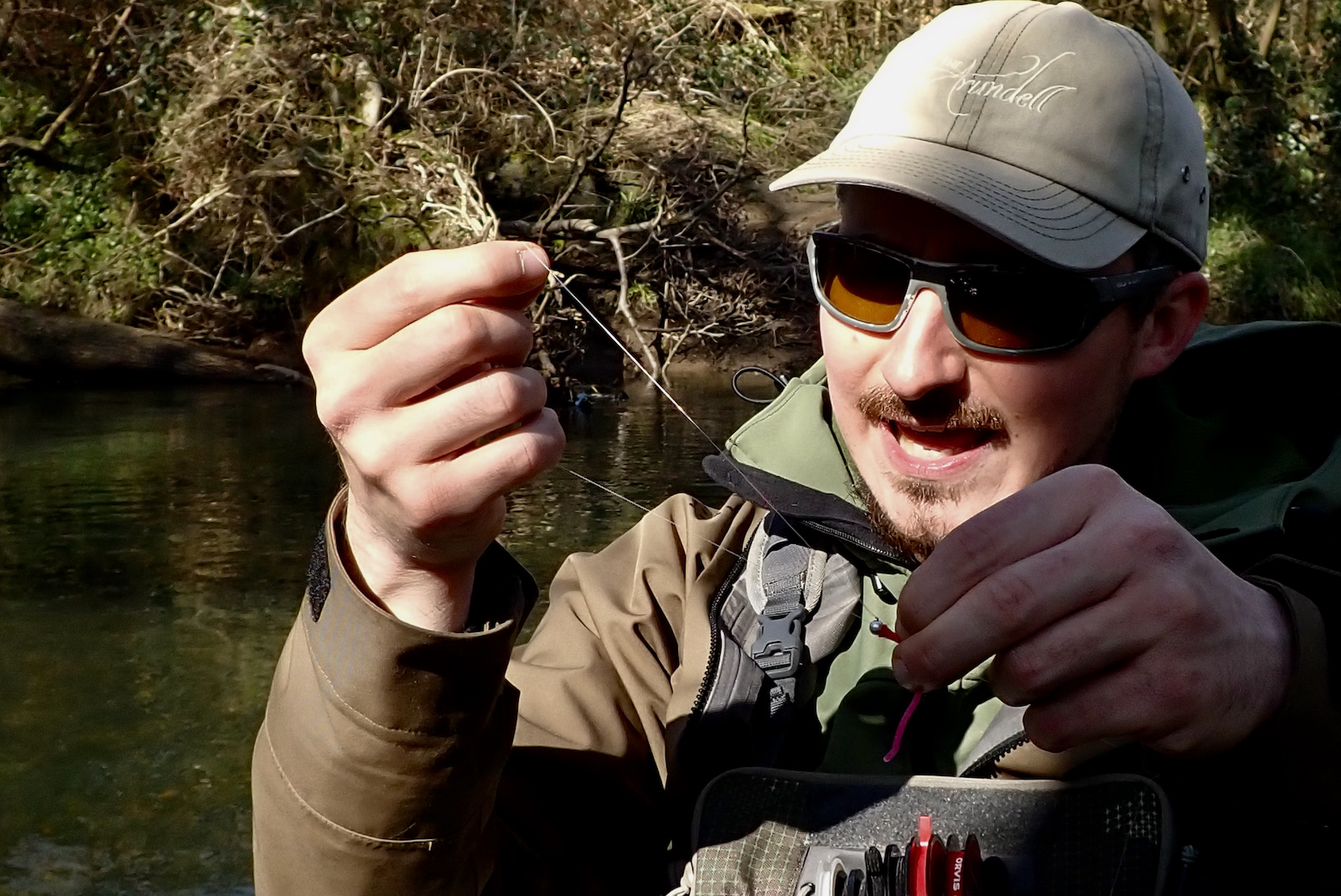
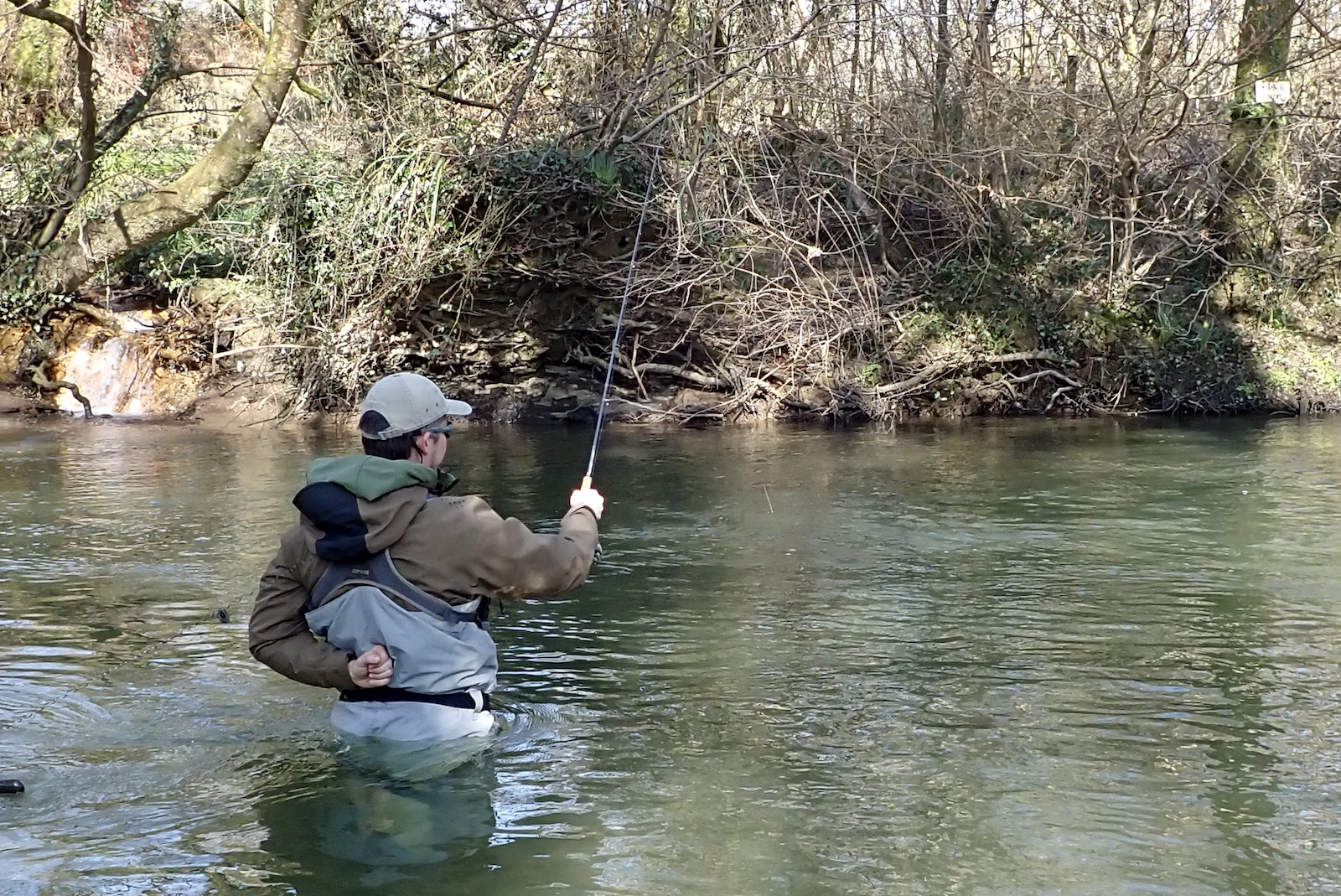
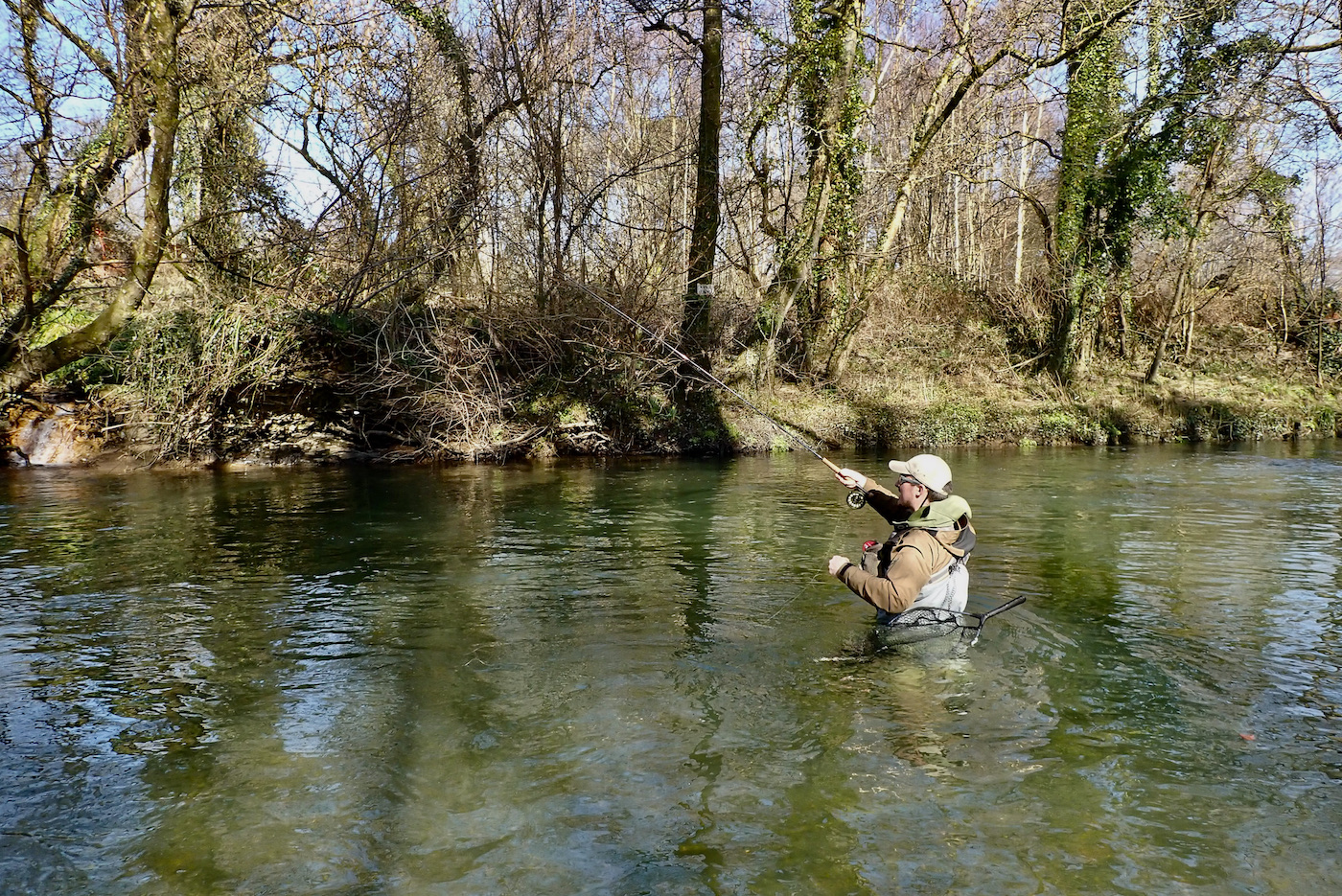
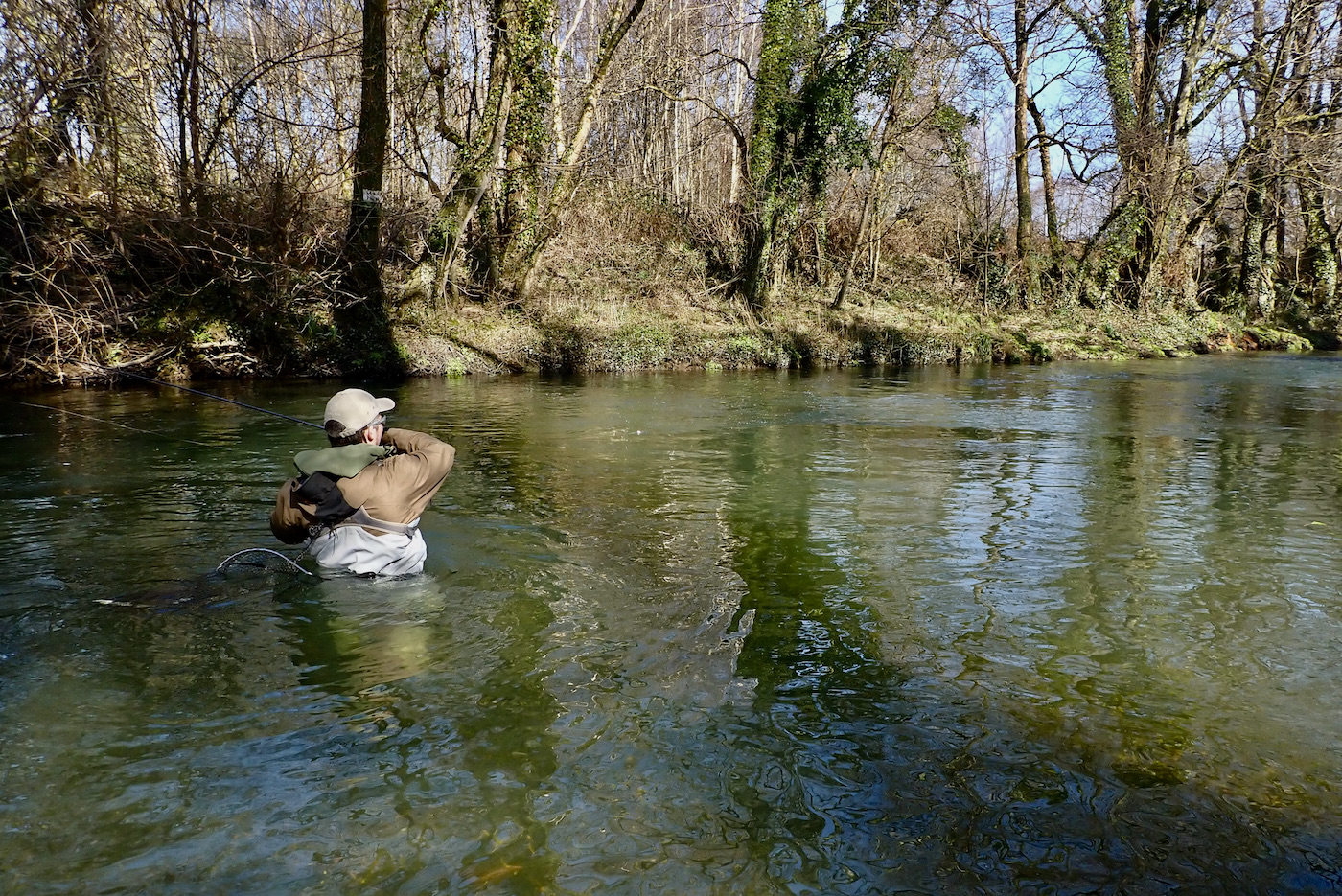
Lewis Hendry followed on bringing even more in depth advice on tactics frequently driving home points already made earlier by James in his own enthusiastic and unique style.
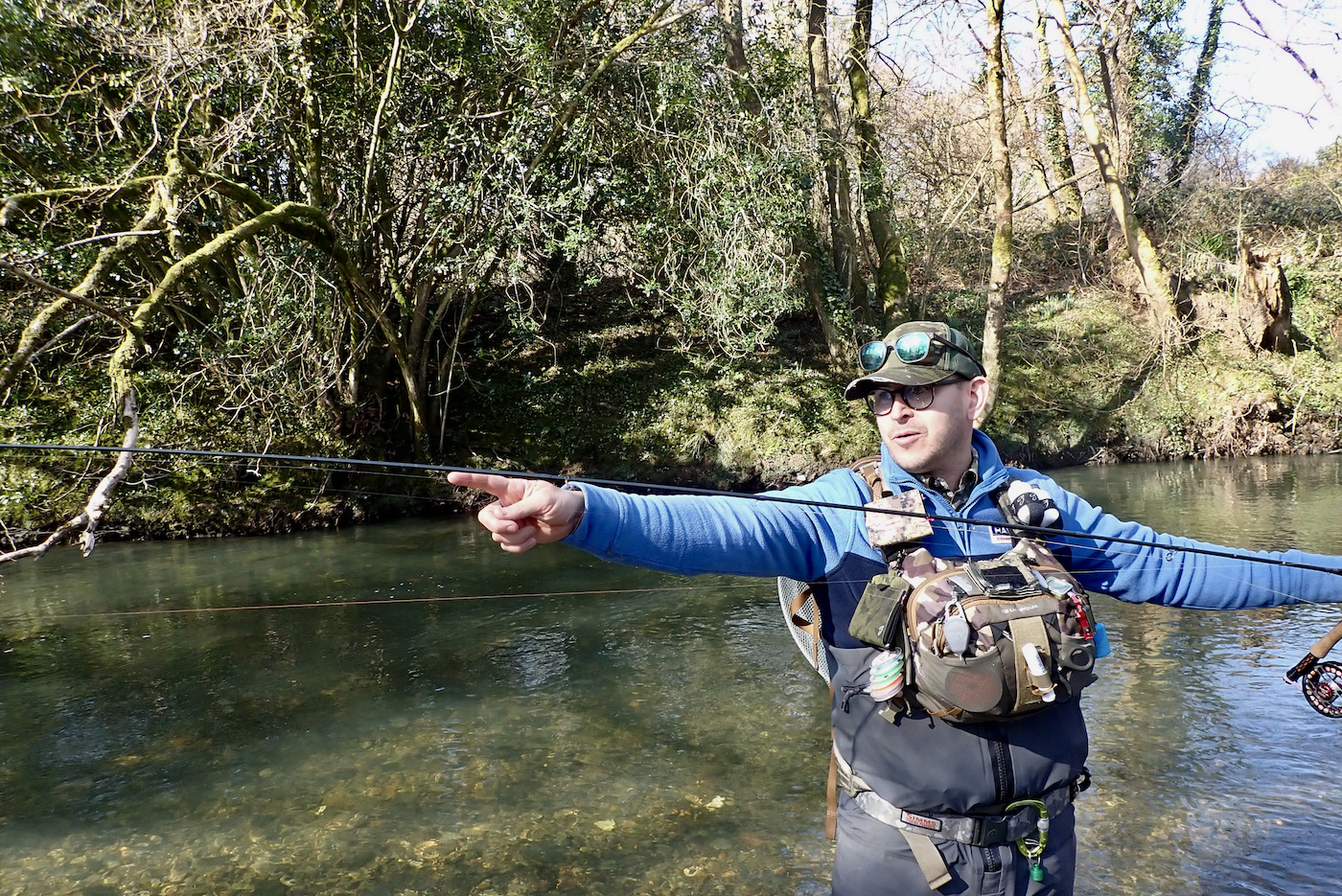
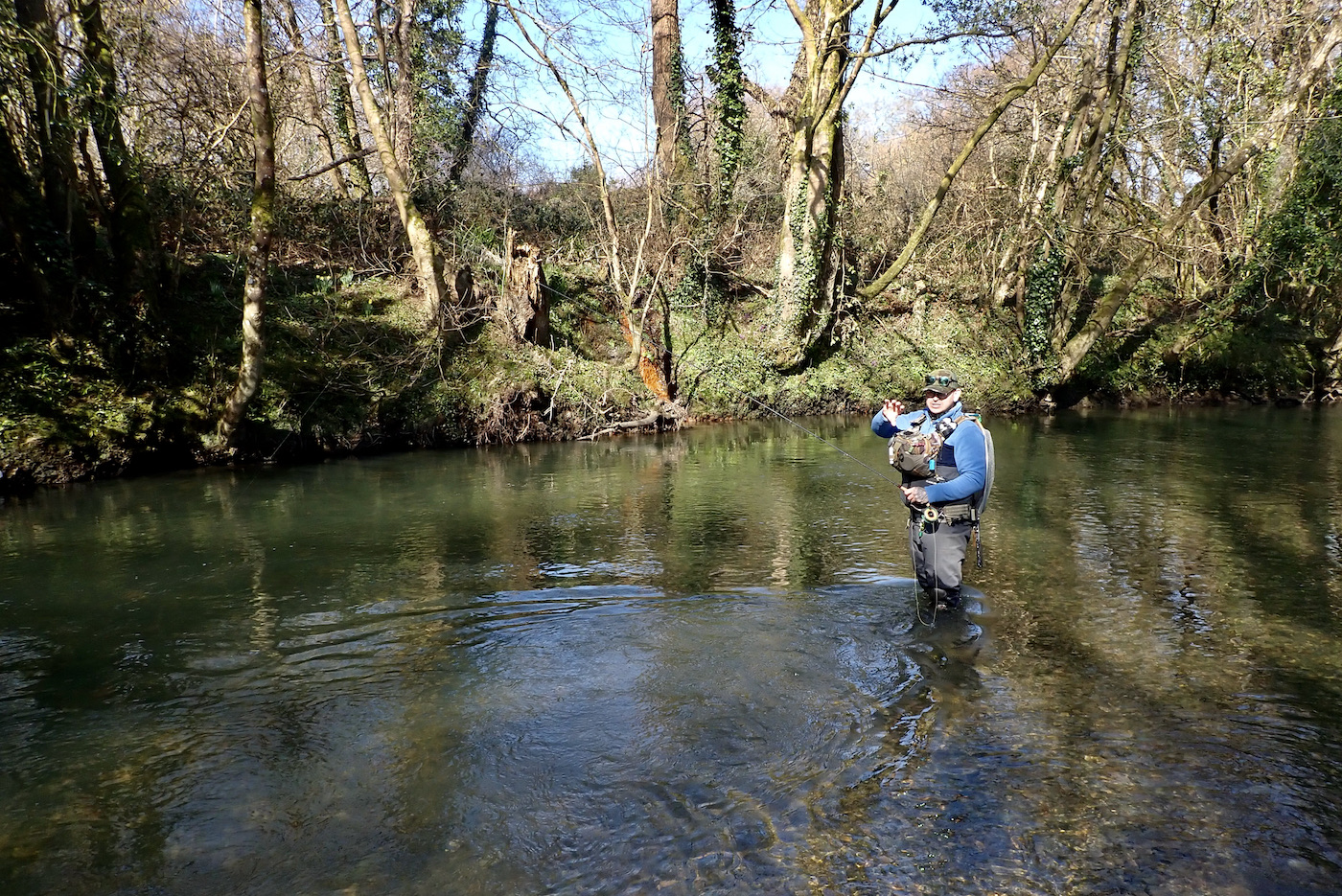
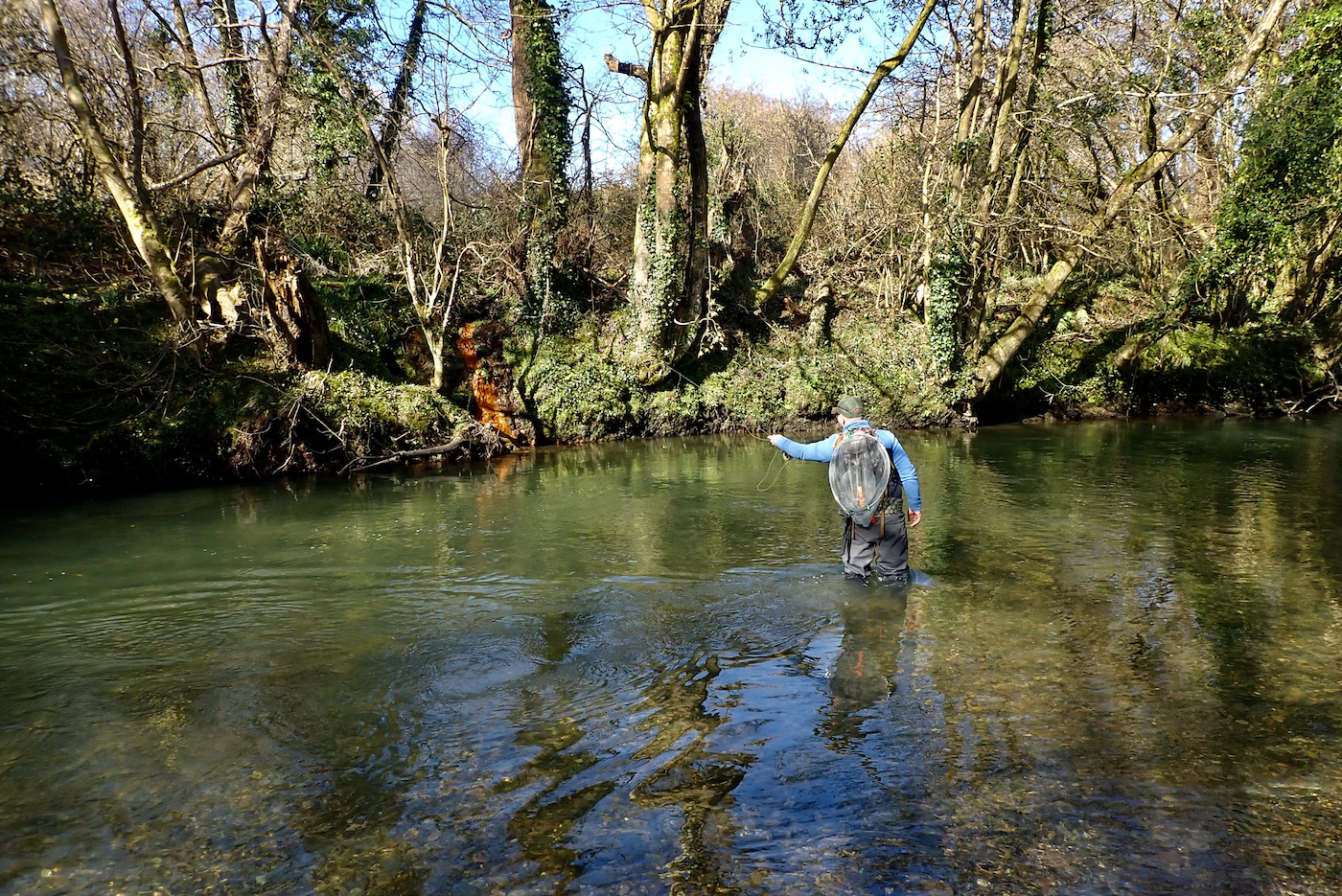
Take a note of where the light is shining from, read the water to guess where the fish lie and pause to look around for those fly hungry trees.
The intricacies of sight leaders, nymphs and how to present them were explained with passion, humour and clarity. The main thrust is that tradition is largely forgotten in this refreshing and enlightening approach to catching trout, grayling and even salmon and sea trout.
The key is to present the nymph to where the fish are lying, into the taking zone, offering an easy meal a tactic that can very often tempt a big wily fish lurking in the deep waters of the river when traditional dry or downstream wet fly tactics pass over the fish.
I personally found the whole tutorial enlightening picking up various tips as is always the case when hanging around with highly experienced anglers. It was also very reassuring to learn that my own tactics were pretty sound even if my delivery sometimes goes astray. Though we were assured that even they get hung up in the odd branch and that losing the occasional nymph to a snag on the riverbed is par for the course if you are searching for the feeding zone correctly.
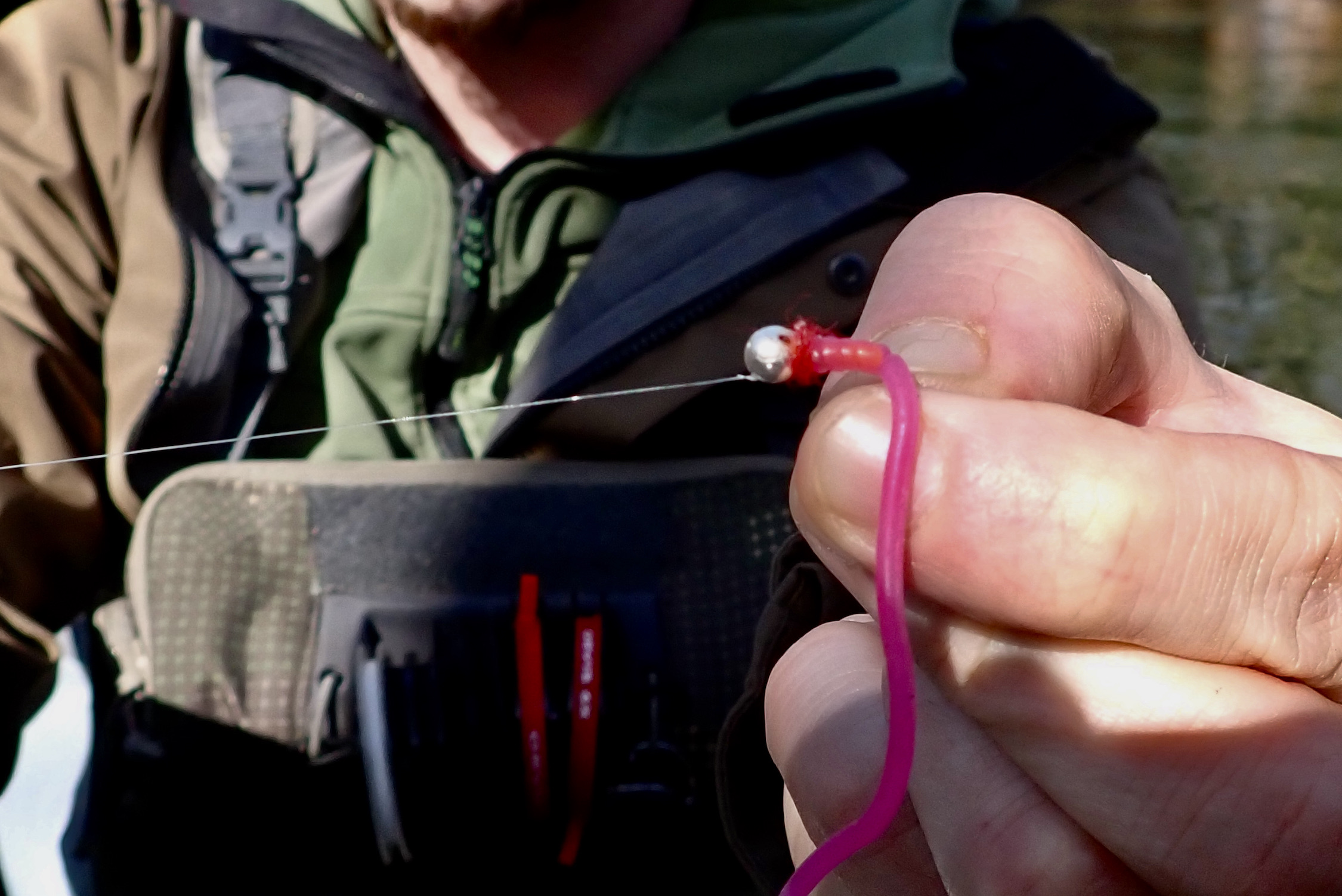
Wiggly worm nymphs jigged deep are far from traditional tactics and those from an older generation would undoubtedly frown upon these tactics that I felt had much in common with LRF fishing tactics. There are undoubtedly those who would say it’s not cricket but if we want young anglers to come into the sport perhaps we need to adapt and learn fun new tactics.
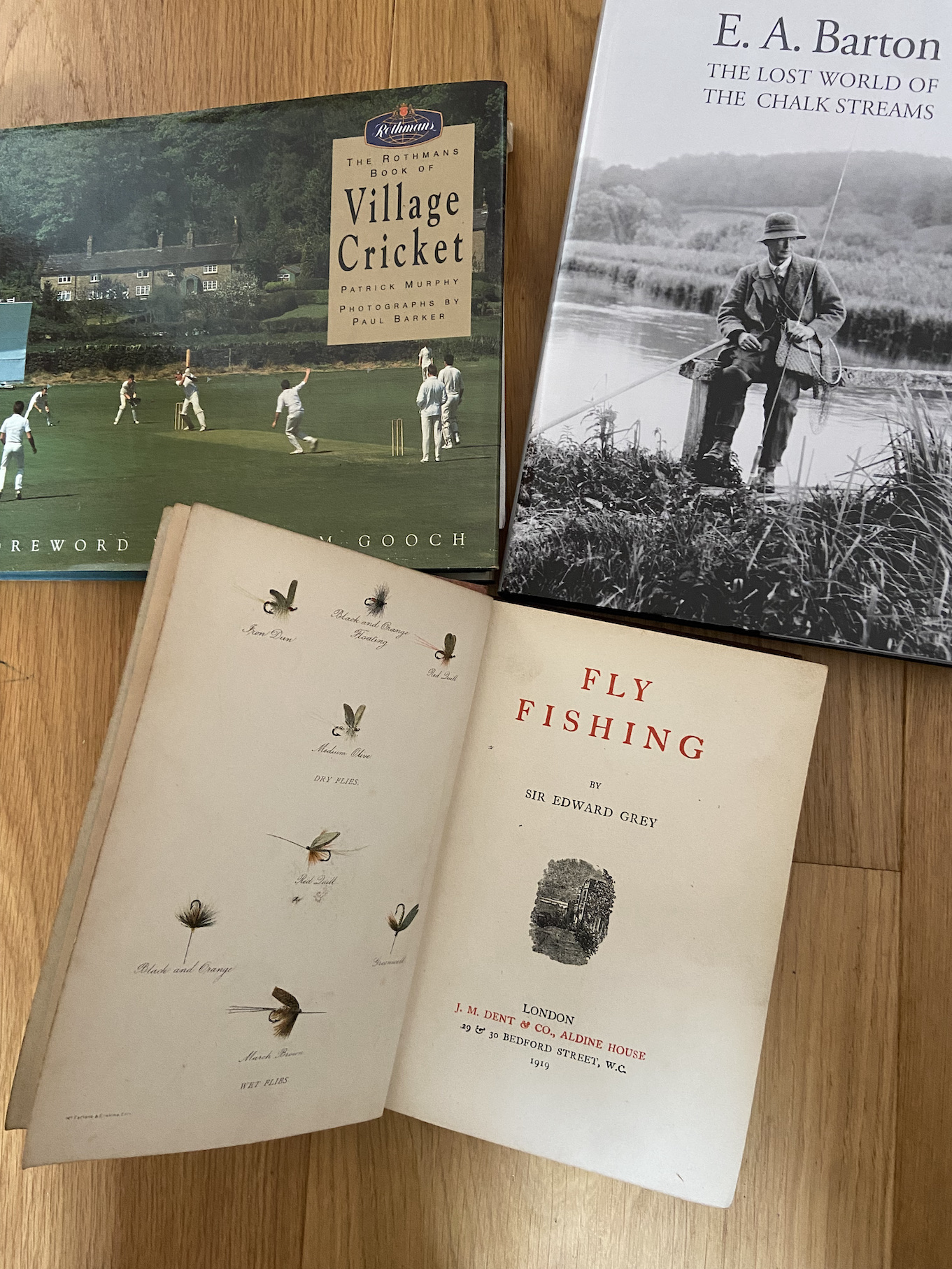
Lunch time and my friend Jeff Pearce and I headed back to the Arundell to enjoy a coffee and cake from the deli before heading off to beat 3 on the River Lyd for a couple of hours late afternoon fishing.
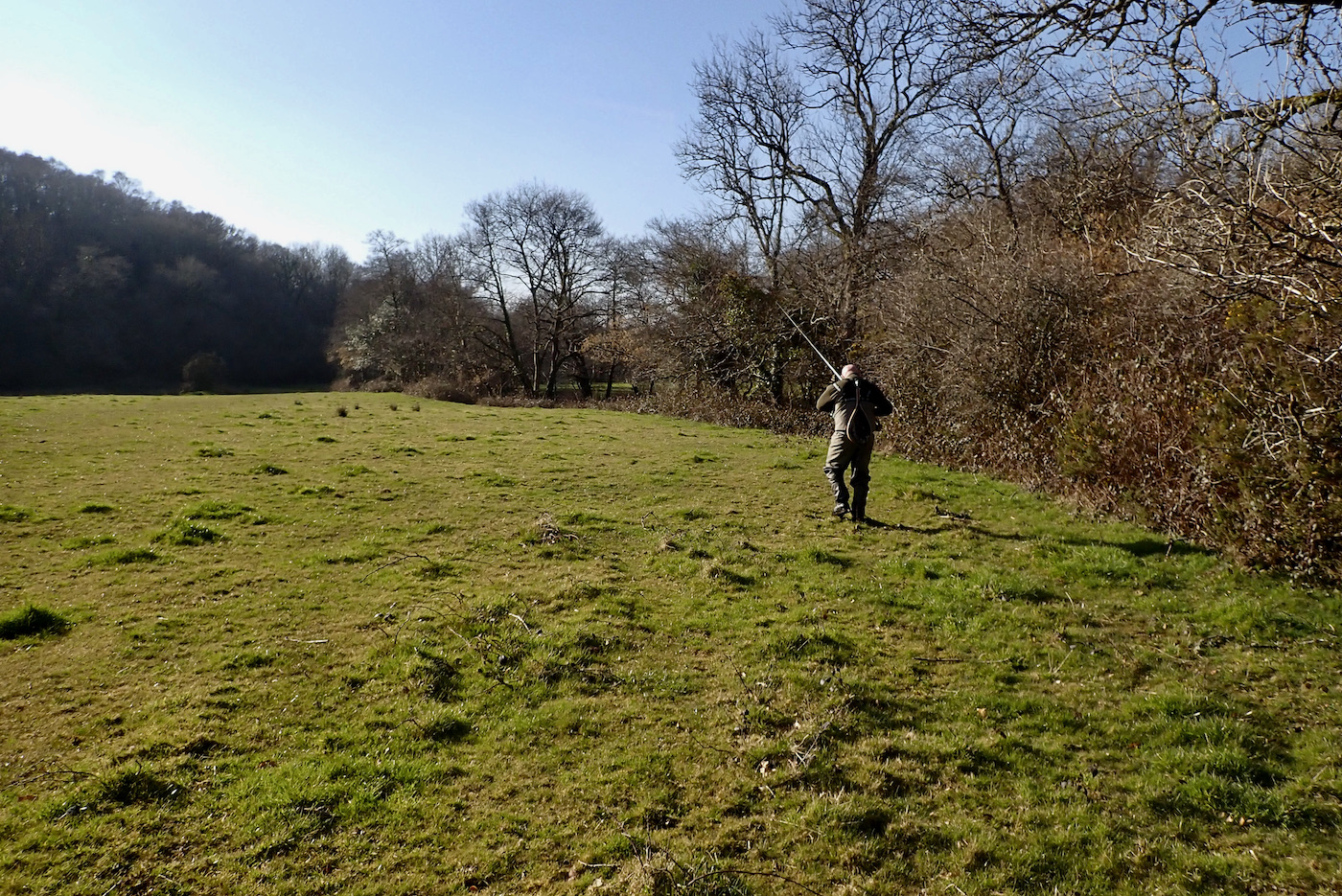
It was a joy to walk across the fields to explore the River and try to locate those hot spots where the grayling dwell. Inspired following the mornings tuition we sent our nymphs plopping into deep pools and promising runs.
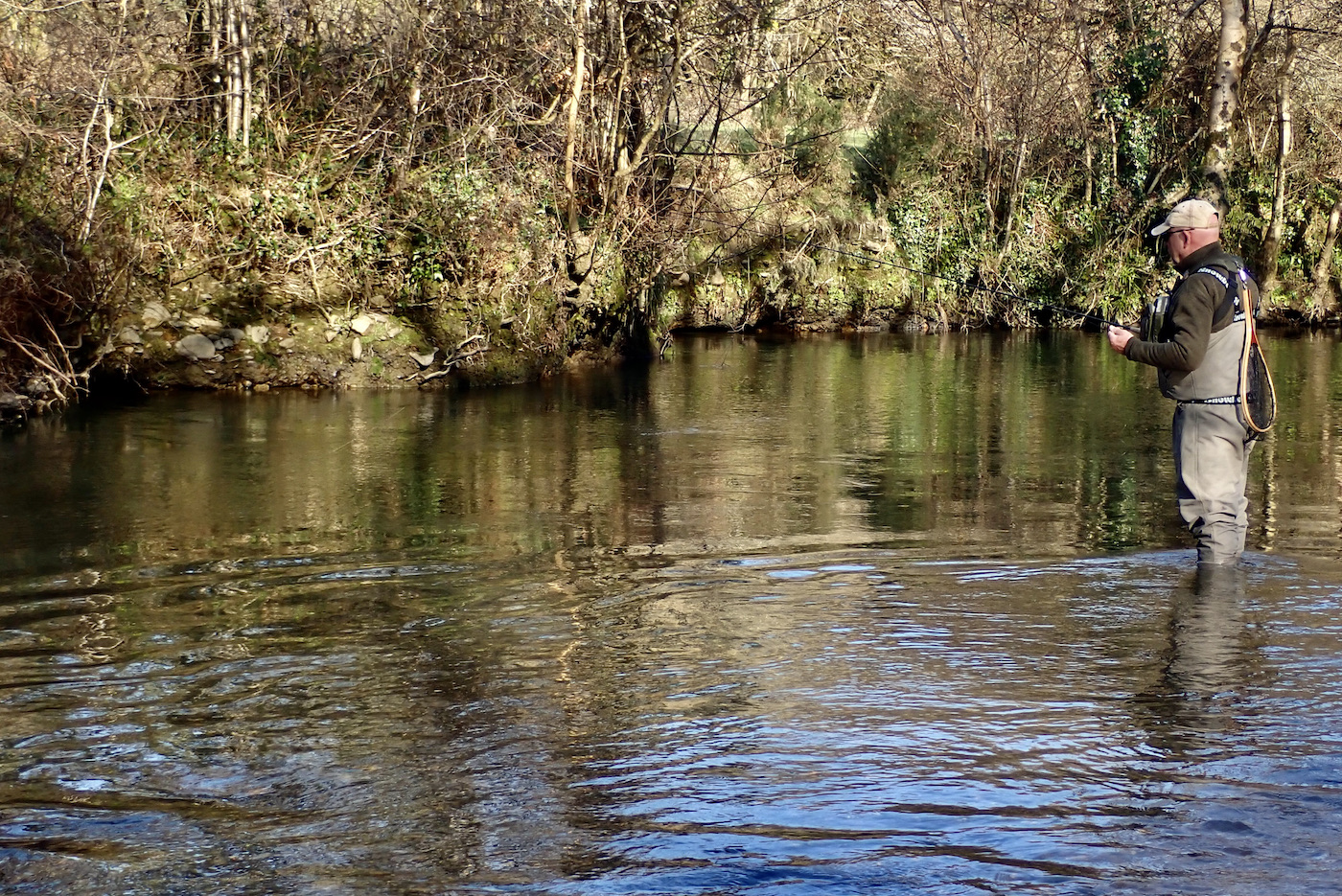
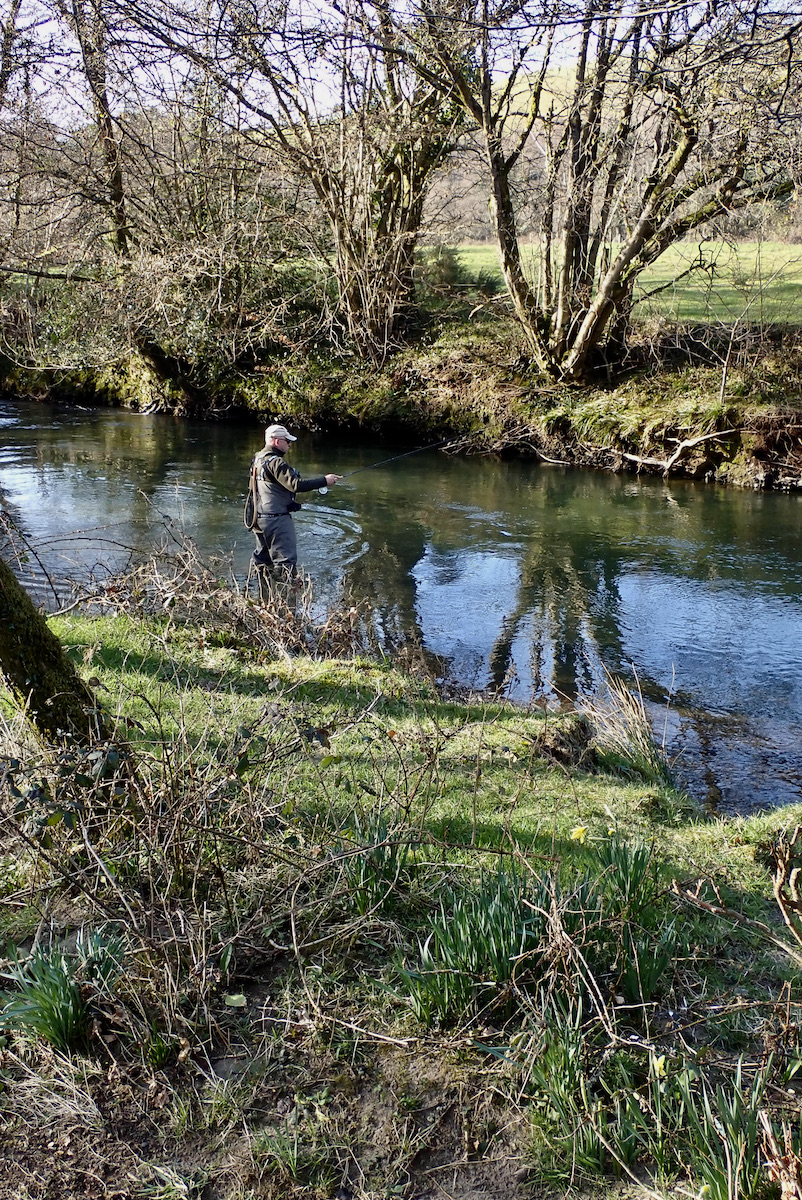
The afternoon sun illuminated the bankside trees, spring flowers and the bright clear sparkling waters are a perfect tonic to this increasingly troubled world.
I watched my bright orange leader, it stabbed down, I lifted the rod and a good sized grayling splashed and twisted in the strong current. Sadly it came off after a few seconds but at least I knew I was doing something right.
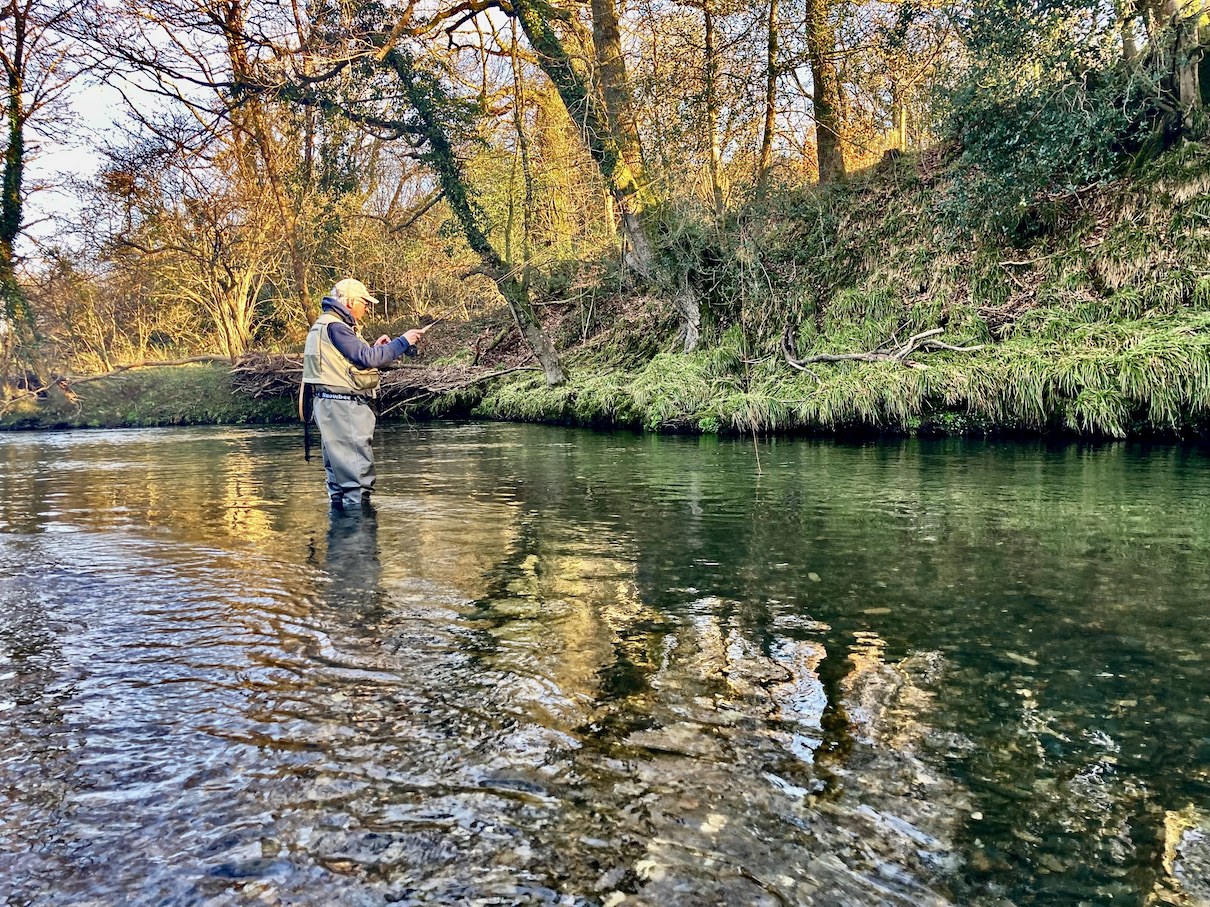
We left the river as the sun slowly sank and returned to enjoy a delicious meal in the bar before heading to the Tamar room to watch the film.
The angling world is undoubtedly a very connected community I observed as we chatted with fellow angling guests. Plotting future excursions and debating various aspects of this fascinating piscatorial world.
Close to forty assembled for the showing of Jack Perks acclaimed film Britain’s Hidden Fishes.
“Britain’s Hidden Fishes” is a not-for-profit documentary by Jack Perks, a renowned British Wildlife videographer. This captivating film explores the fascinating underwater world of the UK. From chalk streams to the open sea, the documentary shines a spotlight on some of the UK’s most overlooked and underrated wildlife, fish.
Narrated by Jeremy Wade ( Of River Monsters), Britain’s Hidden Fishes was filmed over two years to capture never-before- seen stories, behaviours, and footage of British fish.
The film is undoubtedly an outstanding insight into the precious and spectacular world of UK fish. It is hoped that the film will eventually be shown on mainstream television where it deserves to be aired to a far wider audience.

The talk was followed by an enlightening question and answer session with Jack Perks whose passion for fish and fishing was plain to see.

